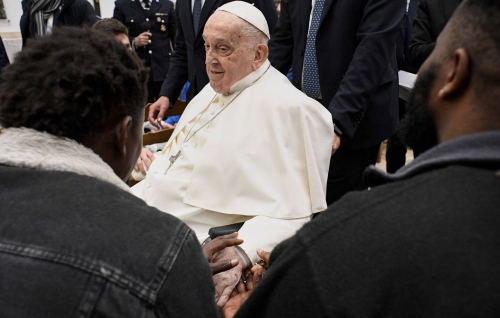mardi, 10 février 2026
Le paganisme de Tolkien
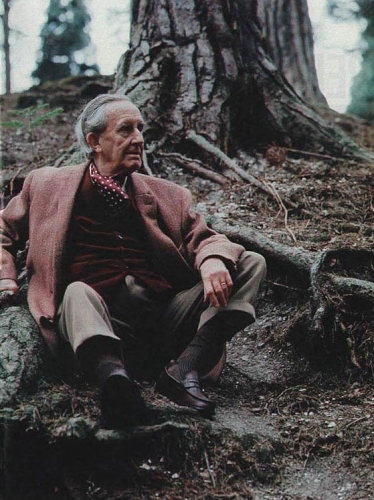
Le paganisme de Tolkien
Sergio Valero Ruiz
L'œuvre de Tolkien est catholique, aussi catholique que l'âme elle-même. C'est-à-dire qu'il s'agit d'un paganisme réinterprété et recouvert de christianisme. Dans ses propres lettres, l'auteur affirme que Le Seigneur des Anneaux est une œuvre religieuse et catholique, mais qu'il n'en a pris conscience qu'après l'avoir écrite et révisée.
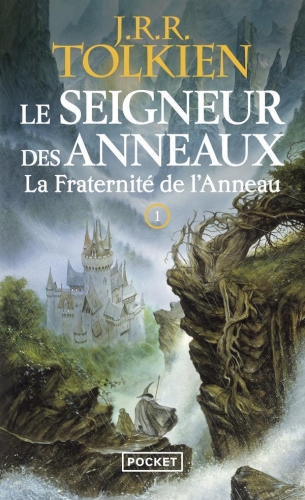 « Le Seigneur des Anneaux est bien sûr une œuvre fondamentalement religieuse et catholique; d'abord inconsciemment, mais consciemment lors de la révision. C'est pourquoi je n'ai pas inclus, ou ai pratiquement supprimé, toutes les références à quelque chose comme la 'religion', aux cultes ou aux pratiques, dans le monde imaginaire. Car l'élément religieux est absorbé dans l'histoire et la symbolique. »
« Le Seigneur des Anneaux est bien sûr une œuvre fondamentalement religieuse et catholique; d'abord inconsciemment, mais consciemment lors de la révision. C'est pourquoi je n'ai pas inclus, ou ai pratiquement supprimé, toutes les références à quelque chose comme la 'religion', aux cultes ou aux pratiques, dans le monde imaginaire. Car l'élément religieux est absorbé dans l'histoire et la symbolique. »
Et en effet, son œuvre est catholique. Juste qu'il faut rappeler ce qu'est le catholicisme: un paganisme revêtu a posteriori de christianisme. Un paganisme qui transparaît à travers l'histoire, l'art et le symbolisme. Le religieux est implicite, comme il le souligne lui-même, car cet héritage païen est inconscient. Il y a une spiritualité, une religiosité fusionnée dans l'intrigue et la symbolique — mais ce n’est pas celle du récit hébraïque, mais celle d'une épopée européenne et d'une métaphysique propre à l'Antiquité pré-chrétienne. Seulement, cette dernière est reformulée dans le contexte chrétien, comme l'ont fait les premiers chrétiens de leur temps.
Tolkien croyait, tout comme certains des premiers chrétiens qui se nourrissaient de sources païennes, que le paganisme était une moitié de vérité, où pouvait se deviner la véritable vérité chrétienne ultérieure. Et ainsi, ils percevaient le paganisme comme un antécédent, une préparation au message du Christ. À l’image de Nicolás Gómez Dávila, qui disait que le christianisme possédait deux anciens testaments: la Bible juive et l’Antiquité classique. De cette façon, son christianisme conscient et son paganisme inconscient s'harmonisaient, tout en justifiant la consommation de la coupe des démons (comme on disait boire aux sources classiques). Cependant, la réalité nous montre qu’au sein de la vision du monde spirituelle européenne, le paganisme a été nécessaire, tandis que le christianisme est contingent.

Le débat ne porte pas sur le fait que l'œuvre de Tolkien soit catholique ou non, ni même si Tolkien lui-même était très religieux. La réponse à ces deux questions est un oui profond et catégorique. La véritable question est bien plus ancienne et a été discutée dès l'époque de Celse, Porphyre et Julien l’Apostat: que le christianisme puise dans le paganisme sa théologie, son anthropologie et sa métaphysique. Le paganisme existe par lui-même, mais le christianisme, en particulier dans sa forme catholique, ne peut exister que grâce au paganisme. Car sans le paganisme, celui que les Pères de l’Église méprisaient tout en en buvant le nectar, le christianisme ne serait qu’une des nombreuses sectes juives. Et ce que l'œuvre de Tolkien expose a peu de choses à voir avec une secte juive du Moyen-Orient, et beaucoup avec une vision du monde européenne archaïque.
Tout catholique a, qu'il le sache ou non, une âme païenne (littéralement, car le concept d'âme immortelle provient du platonisme). Et que, par conséquent, l'âme de Tolkien, ainsi que son œuvre, parce qu’elle est imprégnée de catholicisme, est essentiellement païenne. Tolkien, comme tout catholique, est un païen inconscient.
21:48 Publié dans Littérature, Traditions | Lien permanent | Commentaires (0) | Tags : religion, catholicisme, paganisme, j. r. r. tolkien, lettres, lettres anglaises, littérature, littérature anglaise |  |
|  del.icio.us |
del.icio.us |  |
|  Digg |
Digg | ![]() Facebook
Facebook
lundi, 09 février 2026
Calvinisme, américanisme, christianisme oriental
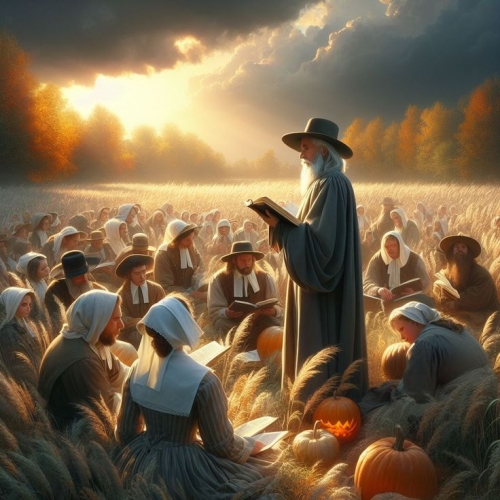
Calvinisme, américanisme, christianisme oriental
Cristi Pantelimon
Source: https://www.facebook.com/profile.php?id=100005135564621
Un phénomène mimétique majeur se produit sous nos yeux, à savoir la réimportation du christianisme américain en terre roumaine. Un fait qui doit nous rappeler les racines protestantes du christianisme américain, qui n'ont pas vraiment de lien avec les significations communautaires de notre propre christianisme orthodoxe.
Pour s'imposer, le christianisme protestant a dû lutter contre le «totalitarisme» universaliste de l’Église catholique, qu’il a vaincu en utilisant une force opposée, à savoir l’individualisme, qui ne correspond pas non plus vraiment à notre espace oriental. Un christianisme parfaitement individualisé est celui qui exige une soumission aveugle à la lettre de la Loi, qui devient un commandement divin.
Du point de vue du calvinisme, par exemple, la Loi est divisée en trois aspects: la loi morale, la loi judiciaire et la loi cérémonielle. Les deux dernières sont dispensables, c’est-à-dire qu’elles peuvent être modifiées sans affecter l’essence de la Loi, qui est la volonté de Dieu, l’honorer par la piété, etc. La loi morale domine de loin les autres aspects de la loi. Un Dieu qui a gravé dans la conscience de tous les hommes ces sentiments qui forment la loi morale et qui, par conséquent, sont considérés comme étant équivalents à la loi naturelle. Une première étape vers le déisme est ainsi franchie par le concept de loi naturelle, en tant que loi morale. Dieu, qui a gravé dans toutes les consciences une loi qui devient «naturelle», n’a plus besoin de participer aux affaires du monde. En revanche, nous devons adorer la Loi, mais... nous ne savons pas pourquoi !
La source d’inspiration de cette structure tripartite de la Loi est la loi mosaïque.
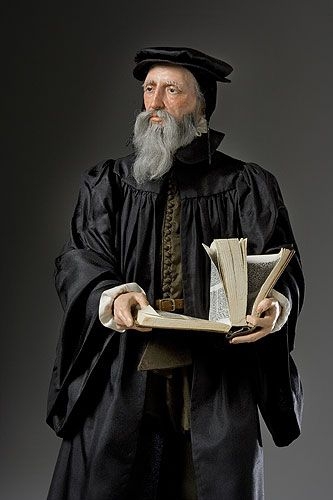
Calvin explique alors pourquoi il étudie les lois de la cité: «Car aucuns nient qu'une République soit bien ordonnée, si en délaissant la police de Moyse, elle est gouvernée des communes loix des autres nations » («Car certains nient qu’une République puisse être bien gouvernée si l’on délaisse les lois de Moïse, et qu’elle est gouvernée par les lois communes des autres nations»).
En latin, dans l’édition originale: «Sunt enim qui recte compositam esse rempublicam negant, quae neglectis Mose politicis communibus Gentium legibus regitur».
Même si cette source d’inspiration s'est quelque peu relativisée plus tard, Calvin et ses successeurs puisent surtout leur inspiration dans l’Ancien Testament. Ce n’est pas un hasard si «la loi morale» est la loi suprême — ici, ceux qui soutiennent aujourd’hui la politique du mondialisme moral sont soit des protestants américains, soit leurs cousins primaires qui revendiquent également des sources tirées de l’Ancien Testament.
Le christianisme oriental n’a aucun lien avec cette posture individualiste de la religion occidentale. C’est à la fois une religion fervente, moraliste et piétiste, qui suscite notre méfiance. La justice chez nous n’a rien à voir avec la «clarté morale». Au contraire, la déviance la plus perverse de l’acte de justice est de demander une conformité stricte à une règle extérieure déclarée "Loi morale".
Étant donné que la communauté est la première et la dernière sphère de notre foi, nous n’avons pas besoin d’un commandement transmis par quelqu’un en particulier. Nous n’avons pas non plus besoin d’une Loi morale comme « essence » et comme « raison » de la loi, car, comme Calvin le dit en manifestant son insatisfaction, nous nous nourrissons de nos lois communautaires, lesquelles sont en pleine harmonie (Kosmos – grec) avec les lois de l’univers.
19:13 Publié dans Actualité | Lien permanent | Commentaires (0) | Tags : actualité, religion, orthodoxie, christianisme oriental, calvinisme, américanisme |  |
|  del.icio.us |
del.icio.us |  |
|  Digg |
Digg | ![]() Facebook
Facebook
mardi, 30 septembre 2025
Les Foules de Lourdes, le testament antimoderne de Huysmans
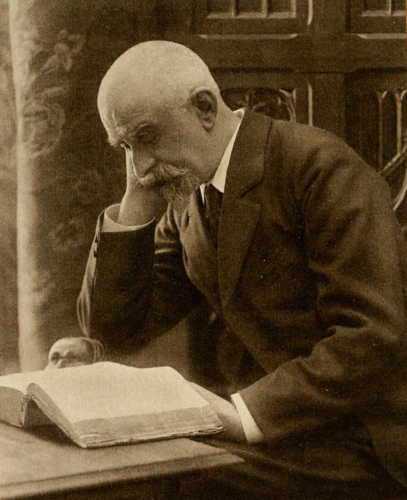
Les Foules de Lourdes, le testament antimoderne de Huysmans
Claude Bourrinet
Je veux qu’on y vienne en procession.
La Vierge
L’homme est un animal adorateur. Adorer, c’est se sacrifier et se prostituer.
Baudelaire ; Mon cœur mis à nu.
De la vaporisation et de la centralisation du moi. Tout est là.
Baudelaire ; Mon cœur mis à nu.
Une mystique naturaliste
Il restera toujours un fond naturaliste, chez Huysmans, qui, jusqu'à sa dernière heure où, vêtu de la robe noire et du capuchon des moines de Saint Benoît, il rendit l'âme, éprouvera, comme la présence lancinante d'une basse continue, le souci angoissé de trouver les signes tangible, matériels, du surnaturel, dans un monde livré à la banalité de la décadence, et encore davantage de sa propre existence d'homme souffrant en quête de salut (1).
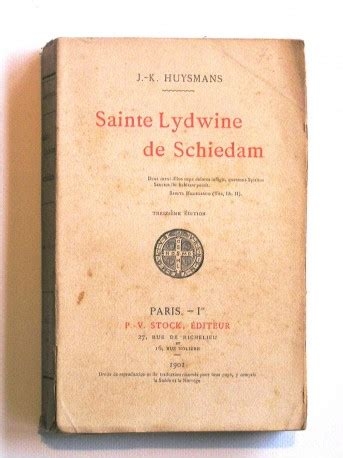 Il appela cette approche épistémique « naturalisme spiritualiste », ou « naturalisme mystique », qui trouvera son acmé atroce et sublime dans son hagiographie, publiée en 1901, de Sainte Lydwine de Schiedam, dont le corps pourri, gangrené, broyé par le pilon de Dieu, à l’image du Christ peint par le « primitif » Grünewald, tableau qui l'a tant impressionné à Cassel, assure la substitution mystique destinée, par la souffrance, à sauver l'humanité (2). Il s'agit alors de restaurer un symbole (l’âme unie au corps), à l'opposé du scientisme de la Salpêtrière, qui réduit l'âme au corps.
Il appela cette approche épistémique « naturalisme spiritualiste », ou « naturalisme mystique », qui trouvera son acmé atroce et sublime dans son hagiographie, publiée en 1901, de Sainte Lydwine de Schiedam, dont le corps pourri, gangrené, broyé par le pilon de Dieu, à l’image du Christ peint par le « primitif » Grünewald, tableau qui l'a tant impressionné à Cassel, assure la substitution mystique destinée, par la souffrance, à sauver l'humanité (2). Il s'agit alors de restaurer un symbole (l’âme unie au corps), à l'opposé du scientisme de la Salpêtrière, qui réduit l'âme au corps.
Une comparaison avec Les Confessions de Saint-Augustin suffit à mesurer l'écart qui sépare ces deux convertis sur le tard. Chez l'évêque d'Hippone, on se laisse emporter par des élans lyriques de mysticité, par des considérations théologiques et philosophiques de grande portée, qui irrigueront la pensée médiévale, et au-delà. En revanche, chez Huysmans, on suit pas à pas un itinéraire quasi clinique, déroulant les méandres, les avancées et les retours en arrière d'une âme qui est loin de déboucher rapidement sur la voie royale, si tant est qu'elle y soit un jour parvenue, la foi n'étant jamais vraiment acquise. Huysmans était trop écrivain pour s'abandonner, trop écrivain moderne, c'est-à-dire héritier de la littérature qui débuta avec le romantisme, et transféra le souci du monde, la sociabilité innée des écrivains dits « classiques », oublieux de soi et refoulant l' « amour-propre », dans l'univers narcissique et obscur du poète créant sa propre centralité de prophète et Prêtre du moi, sinon du monde, et toujours en quête de vérité.
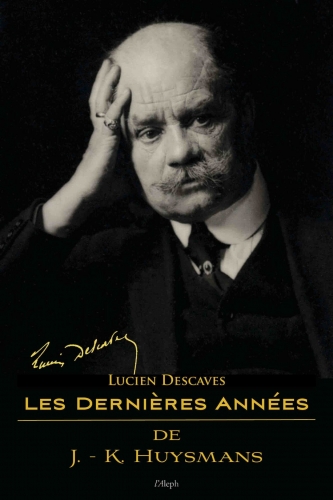 « Car il n’avait pas changé au fond, confirme Lucien Descaves dans ses souvenirs Des dernières années de J-K. Huysmans, parus en 1941. Il disait bien, un jour, à René Dumesnil : « La conversion, c’est un aiguillage ; l’homme est toujours le même. » Il demeurait fidèle à une vie casanière de célibataire et de bureaucrate, mais plus rétif encore à tout empiétement sur son indépendance d’écrivain, aussi bien dans l’esprit que dans la forme. Il était incapable de transiger là-dessus ; autrement dit, de soumettre un de ses manuscrits à l’agrément d’un directeur spirituel investi du droit de regard et de censure. L’écrivain ne l’eût pas toléré. »
« Car il n’avait pas changé au fond, confirme Lucien Descaves dans ses souvenirs Des dernières années de J-K. Huysmans, parus en 1941. Il disait bien, un jour, à René Dumesnil : « La conversion, c’est un aiguillage ; l’homme est toujours le même. » Il demeurait fidèle à une vie casanière de célibataire et de bureaucrate, mais plus rétif encore à tout empiétement sur son indépendance d’écrivain, aussi bien dans l’esprit que dans la forme. Il était incapable de transiger là-dessus ; autrement dit, de soumettre un de ses manuscrits à l’agrément d’un directeur spirituel investi du droit de regard et de censure. L’écrivain ne l’eût pas toléré. »
Il est vrai néanmoins que son écriture, sa création littéraire, passent nécessairement par la révolution existentielle, violente et profonde, qu'il a vécue. (3) Les deux dimensions sont liées, et, contrairement à beaucoup de symbolistes, qui contrecarrent le pessimisme et la décadence par le culte de l'esthétisme, de l'art, du rêve, il unit intimement la douleur angoissée de la recherche religieuse à sa traduction sur la page blanche. La lecture de ses œuvres, à partir de Là-bas, pour ne pas parler d'En Route, impose à n'importe quel lecteur le sentiment d'être confronté à une expérience vécue.
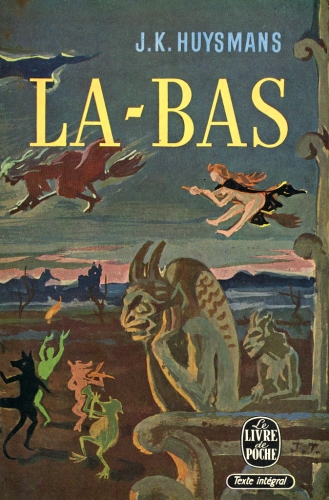
Les étapes douloureuses (doloristes?) de sa conversion, il les a annotées, comme un carnet de route, dans son œuvre: partant du satanisme dans son « Livre noir », Là-Bas (1891) (qui montre, somme toute, un monde surnaturel, un christianisme à rebours, opposé au naturalisme avec lequel il vient de rompre avec fracas avec A rebours (1884)), il saute le pas métaphysique, se convertit.
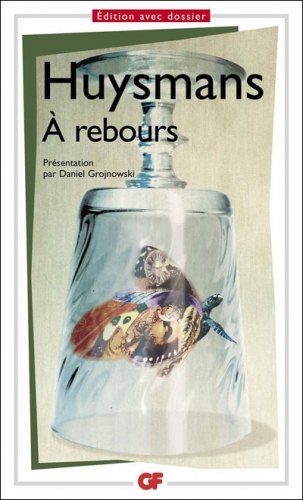
Barbey d'Aurevilly avait eu, dès la parution d'A rebours, la prémonition de ce plongeon religieux: il avait prédit, dans un article du Constitutionnel du 28 juillet 1884, que Huysmans aurait un jour à choisir entre « la bouche d’un pistolet ou les pieds de la croix ». Ce chemin de croix (le Cycle de Durtal) est jalonné d’œuvres comme En route (1895) – il mit quand même trois ans avant de traduire littérairement sa conversion de 1892, à la Trappe d’Igny, où il reçoit les sacrements -, La Cathédrale (1898), L'Oblat (1903).
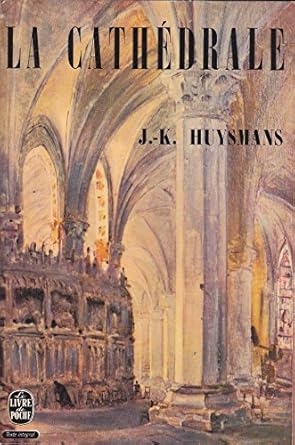
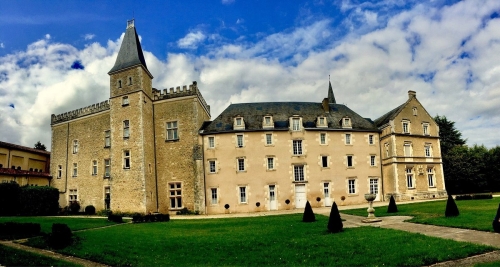
Le dernier livre est la relation de sa tentative de se lier, en 1901, à l'abbaye de Ligugé (photo), dans le Poitou, aventure spirituelle interrompue par l'expulsion de la communauté monastique de Saint Martin, à la suite des lois anti-religieuses de la République franc-maçonne du Petit Père Combe, déclinaison locale – avec le Portugal, en 1911, d'une persécution plus vaste (ou de tentatives, comme en Belgique et en Allemagne), dont font l'objet, sous les pontificats de Léon XIII (1878 – 1903), et Pie X (1903 – 1914), les catholiques européens, y compris en Italie ou en Espagne.
Paradoxalement, cette époque fut aussi, contre un nihilisme de plus en plus rongeur et dissolvant, celle du grand mouvement de conversions littéraires que vont connaître les Lettres françaises au début du XXe siècle avec des auteurs comme Paul Bourget, Péguy, Brunetière, Claudel, Maritain, Jacques Rivière, Psichari, Massignon, Massis, Léon Bloy – qui fut très proche de Huysmans, et se brouilla violemment avec lui -, et d'autres, notamment à la faveur de l'influence d'un abbé très intégré dans les cercles mondains et artistique, l'abbé Mugnier (protrait, ci-dessous), lequel apparaît dans En route, sous les traits de l'abbé Gévresin, mais surtout de celle de l’abbé Gabriel Ferret, mort en 1897, à quarante-cinq ans, à qui Huysmans dédia La Cathédrale (1898).
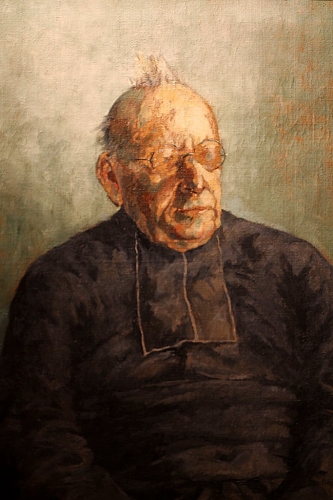
Le fil conducteur des livres de Huysmans, y compris les premiers, qui étaient naturalistes, sont marqués par une hostilité constante à la modernité, à l'américanisme, à la médiocrité contemporaine, à la bêtise triomphante et à la laideur qui l'accompagne, et fortement imprégnés de pessimisme schopenhauerien, considéré en cette fin de siècle décadente comme si « français » (« Nietzsche déclarait préférer lire Schopenhauer dans sa traduction française plutôt que dans sa version originale », rappelle Clément Rosset). Cette philosophie, à tonalité antimoderne, si tardivement connue, était assez répandue et partagée, explicitement ou implicitement, dans les milieux intellectuels d'alors, et le fut encore davantage au XXe siècle, par exemple par Proust, Céline, Beckett etc., pour n'évoquer que des écrivains français – ou de langue française. Tendance intellectuelle, voire existentielle, violemment contraire à la Weltanschauung chrétienne, mue par l'espérance. Encore faudrait-il tempérer cette opposition, si l'on prend en compte le dogme du péché originel, et un jansénisme qui a beaucoup imprégné la mentalité française, sans oublier un Baudelaire, l'un des maîtres à penser de Huysmans, qui se réclamait de Joseph de Maistre.
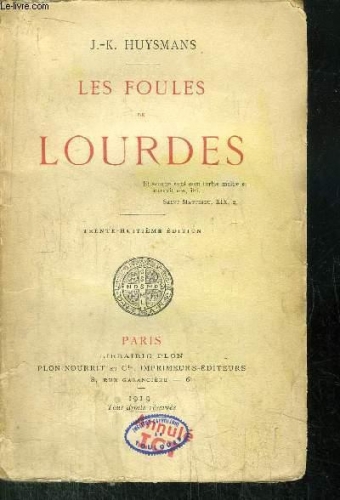
Les foules de Lourdes
Les Foules de Lourdes est le dernier ouvrage de Huysmans, une sorte d'enquête à portée autobiographique, parue un an avant sa mort, le 1er octobre 1906, et relatant un pèlerinage dans la cité mariale, qui dura cinq jours, durant l'été 1904, dont l'écriture est si dense qu'on a l'impression d'un mois de séjour. Il y fut hébergé à la Villa Saint-Antoine par un couple, les Leclaire, qu'il connaissait bien, puisqu'il avait fait construire avec eux une grande demeure, la villa Notre-dame, destinée à accueillir un cercle chrétien d'artistes, non loin de l'abbaye de Ligugé, avant qu'il ne fît profession d'oblat, et quittât les lieux, désertés à la suite de l'expulsion de France des ordres religieux.
Voilà comment Lucien Descaves présente la naissance du projet d'écrire cet opera ultimate: « Vers la fin du mois d’août [1900], il avait été voir passer, en gare de Poitiers, les trains remplis de malheureux qui allaient chercher à Lourdes une guérison miraculeuse. Songeait-il déjà, ayant terminé enfin Sainte-Lydwine, qu’il était en train de raboter, songeait-il à une vision plus directe des souffrances humaines? Je le crois; mais il était sans doute momentanément refroidi par la lecture du roman de Zola. Il revint allégé de cette appréhension. Certes, les descriptions de Zola étaient « justes et admirables »; mais cette revue affreuse des suppliciés conduits vers une guérison hasardeuse par des gens du monde en gants frais et culottes de cyclistes, cela laissait tout de même à l’observateur quelque chose à dire. »
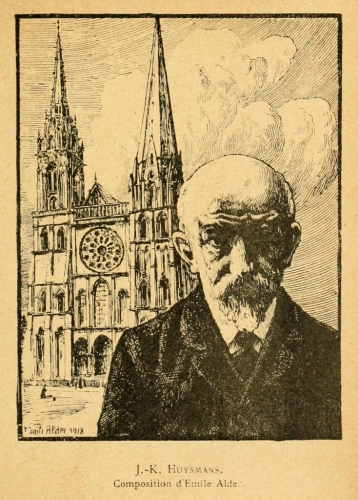
Ce fut du reste à Poitiers que le mal, qui devait l'emporter, commença à être virulent. Lors de son séjour à Lourdes, le cancer à la mâchoire était bien avancé, mais il n'en touche pas un mot. La fin de l’année 1903 et le début de 1904 n’apportèrent à ses maux aucun soulagement.
J'espère montrer que ce récit, qui pourrait tout aussi bien être un roman qu'un reportage, est, selon moi, le chef-d’œuvre de Huysmans. Il mêle en effet, à la manière du romancier, une « intrigue », qui n'est pas rectiligne, mais circulaire, puisqu'il déambule sinueusement entre des points « stratégiques », comme la grotte, le cabinet des médecins qui constatent les miracles, la basilique, oscille de manière itérative, entre la foule et des réduits plus ou moins protégés, entre des personnes bien caractérisées, et l'anonymat des fidèles...
Dans le même temps, il se livre, s'insérant entre des descriptions d'une intensité pathétique et parfois grotesque, à de profondes réflexions religieuses, théologiques, tout en ressassant des griefs (la laideur de l'architecture, la médiocrité des spécimens d'humanité qui arrivent par wagons, les comportements grégaires). Il confronte son écœurement à des justifications, des objections spirituels, toujours hanté par la crainte d'être enferré dans le rets perfides du Malin à l'affût, dont on sent la présence pérenne, même en ces lieux inspirés par la Vierge, et surtout en ces montagnes mélancoliques des Pyrénées, si chargées de mémoire païenne.

Nous verrons que ce que vit alors Huysmans ne concerne pas uniquement le chrétien, le catholique, mais aussi tout homme libre à l'ère des foules. De même, la filiation du monde lourdesque que Huysmans nous livre avec tout le talent de prosateur poétique qui est le sien n'est pas sans une parenté évidente avec l'univers dantesque. La filiation s'incarne par exemple au fil des cercles de souffrances, qui semblent s'aggraver à mesure que le regard aigu du narrateur inscrit dans notre imagination les symptômes monstrueux, à peine supportables, des maux qui tordent ou abattent, transforment en chair palpitante de douleur, en matière souffrante, des âmes qui ont parcouru des centaines de kilomètres dans des wagons cahotants.
Cette tératologie que Huysmans dévide comme une fresque infernale avec des mots puissants, des vocables parfois recherchés dont les sonorités et les couleurs nous font voir et sentir, au point que, tout en étant fascinés, nous sommes terrifiés, saisis de répugnance, sont, comme chez le poète florentin évoluant de bolgia en bolgia, évidemment des symboles: manifestation du péché, même parmi les innocents, les enfants – mais pour l'auteur de Là-bas, il n'y a pas d’innocence, nous sommes tous coupables, et la purulence de la chair est l'image, en vérité, d'une condition frappée par un mal profond, indéracinable. En même temps, comme dans la Divine comédie, nous sommes souvent émus, pris de compassion, d'une pitié irrépressible pour ces êtres touchés par la maladie, non seulement parce que ce sont des humains, comme nous, mais aussi, comme dit Homère, et toute l'Antiquité avec lui, parce que ce sont des mortels. Huysmans nous renvoie à ce que nous sommes, des créatures pathétiques, vaines, chétives, faites pour peiner, et c'est le sceau d'Adam et d'Eve.
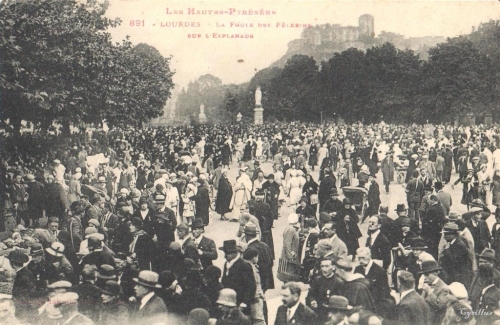
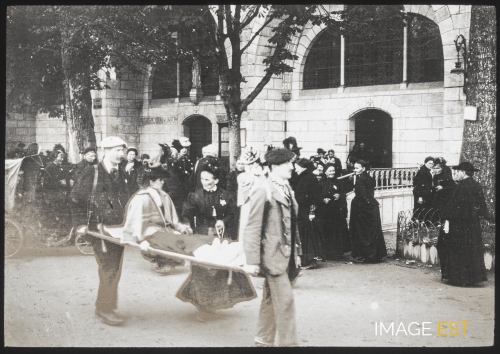
Il ne se livre d'ailleurs pas à une taxinomie des pèlerins en fonction de leurs talents. Le savoir, le génie même, n'apparaissent pas dans les critères qui président à ses descriptions. Malgré tout, il établit une hiérarchie: plus on est riche, plus on se livre à la représentation, à la commedia, au théâtre narcissique, et plus on cache sa misère dans les plis compliqués de sa vêture sociale, qui doit se voir; en revanche, quelques êtres simples, naïfs, aussi primitifs que la peinture médiévale qu'il prise tant, qu'ils soient âgés ou enfants, accompagnateurs ou patients, nonnes ou prêtres, trouvent grâce à ses yeux. Mais ils sont peu nombreux. Ils se singularisent par une présence sans arrière-pensée d'amour-propre, comme la rose qui est parce qu'elle est, ou par un sens du devoir plein, total, par cette noblesse de l'action qui, lorsqu'elle est orientée vers le bien, l'amour du prochain, élève jusqu'à la sérénité, et parfois l'extase. Combien d'infirmières, de soignantes, de brancardiers admirables se donnent ainsi à corps perdu ? Ils sont la prémonition du Paradis, que l'on n'entrevoit guère, et auquel on n'a pas accès, hormis dans ces espèces de songes ritualisés et concentrés que sont les prières vécues (toutefois, la majeure partie des malades les débitent à la chaîne, comme des formules magiques).
Et il y a l'espoir. Il fait vivre, en tout cas survivre, et, du moins le croit-on, guérit. Peu. Car à Lourdes, on s'arrête surtout à l'Enfer. Le purgatoire, la santé, qui est le salut sécularisé, pour ainsi dire, ne touche qu'une minorité. Des élus, en somme. Et gratuitement. Pourquoi celle-ci, et pas celui-là, qui aurait mérité autant qu'elle d'être sauvé ?
Il est, dans cette immense circonférence où le centre est dans chaque souffrance incommensurable, un petit cercle avec lequel Huysmans sympathise, dont les membres sont tacitement des complices, ou des happy few maîtrisant les afflux brutaux de vagues sensorielles qui renverseraient celui qui n'a aucun intérêt vital à se retrouver en ces lieux. Le petit groupe avec lequel il lui est possible d'entretenir sereinement des propos abstraits, en tout cas d'ordre rationnel, ou anecdotique, qui comprend, comme on l'a vu, des âmes simples, d'élite, si l'on veut, authentiques, proches sans doute de l’Évangile de Jésus, est constitué de quelques personnages importants dont la tâche à Lourdes implique une mise à distance. Ce retrait se traduit par une capacité à examiner, à penser la situation. Il y a quelques prêtres cultivés, mais qui ont leurs limites (notamment dans leur rapport avec la beauté), et des scientifiques, des hommes de métier, des médecins, dont le réflexe premier, professionnel, est de se montrer sceptique face aux présupposés « miracles ».
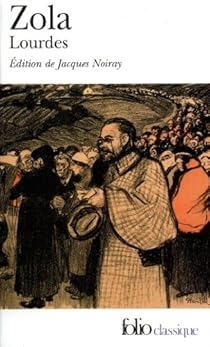 L'une des raisons sous-jacentes de l'écriture des Foules de Lourdes a été de répondre au meilleur ennemi de Huysmans, Zola, qui a mené, lui aussi, deux ans auparavant, son enquête. A vrai dire, tout n'est pas mauvais dans ce qu'il rapporte, et il avait semblé même, aux yeux de Huysmans, que l'hostilité du maître du naturalisme en fût ébranlée, car il est difficile, face à la souffrance, et face à l'espérance désespérée, de rester impassible. Toutefois, la prudence de ces praticiens renforçant leur argumentation, et des cas de guérisons inexpliquées étant mis à la question sous tous leurs aspects, la contestation de la thèse de l'illusion, de l'auto-suggestion, de l'effet psychosomatique, qu'avance le milieu de la psychologie incarné par Charcot, et partagé par Zola, est pesamment déployée, et, il faut l'avouer, assez convaincante.
L'une des raisons sous-jacentes de l'écriture des Foules de Lourdes a été de répondre au meilleur ennemi de Huysmans, Zola, qui a mené, lui aussi, deux ans auparavant, son enquête. A vrai dire, tout n'est pas mauvais dans ce qu'il rapporte, et il avait semblé même, aux yeux de Huysmans, que l'hostilité du maître du naturalisme en fût ébranlée, car il est difficile, face à la souffrance, et face à l'espérance désespérée, de rester impassible. Toutefois, la prudence de ces praticiens renforçant leur argumentation, et des cas de guérisons inexpliquées étant mis à la question sous tous leurs aspects, la contestation de la thèse de l'illusion, de l'auto-suggestion, de l'effet psychosomatique, qu'avance le milieu de la psychologie incarné par Charcot, et partagé par Zola, est pesamment déployée, et, il faut l'avouer, assez convaincante.
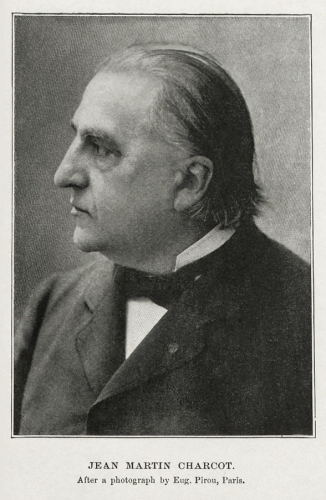 Jean-Martin Charcot (portrait) en effet, soutenait que les saints, les martyrs et les miraculés relevaient de mécanismes psychopathologiques et que les guérisons « miraculeuses » s'expliquaient par l'hystérie. Ces débats ont perdu de leur acuité, en ce premier quart du XXIe siècle, le christianisme ayant presque disparu de l'horizon médiatique, philosophique, ou scientifique, pour se retrancher dans les alcôves de la délinquance sexuelle.
Jean-Martin Charcot (portrait) en effet, soutenait que les saints, les martyrs et les miraculés relevaient de mécanismes psychopathologiques et que les guérisons « miraculeuses » s'expliquaient par l'hystérie. Ces débats ont perdu de leur acuité, en ce premier quart du XXIe siècle, le christianisme ayant presque disparu de l'horizon médiatique, philosophique, ou scientifique, pour se retrancher dans les alcôves de la délinquance sexuelle.
Il n'est pas sûr non plus que de nombreux prêtres d'aujourd'hui ne partagent les analyses du neurologue. Nonobstant, l'impression que ce petit cercle échappe à la pression environnante demeure, et le cabinet où les « miraculés » viennent se faire estampiller, ressemble à une redoute au milieu d'un champ de bataille. Pour autant que Huysmans soit un homme sanguin, violent, emporté, submergé par la répulsion (souvent) ou soulevé par l'admiration (rarement), il demeure un être de raison. La meilleure des morales est de savoir penser, dit Pascal.
L'une des questions vitales pour lui, à tel point qu'on se demande si ce n'est pas là le cœur même de sa conversion, est celle de la beauté, de l'esthétique. Il constate amèrement le vandalisme auquel a été soumis la petite cité de Lourdes, la destruction de l'ancienne petite église romane, et l'incroyable vulgarité, grossièreté, des ouvrages édifiés, qu'ils fussent des bâtiments religieux, ou des statues. Huysmans s'attarde beaucoup à ce sujet, et a toujours à l'esprit le phénomène saint sulpicien et son esthétique pompière, inauthentique, plébéienne et démagogique, réplique fidèle, dans le contexte artistique du XIXe siècle, d'un siècle industriel de parvenus, siècle bourgeois, béotien, où les créateurs véritables, écrivains, peintres, sculpteurs, ont eu toutes les peines à se faire entendre, voire à survivre.
L'architecture fut sans doute l’un des point névralgiques de cette maladie de la laideur. Huysmans aurait pu utiliser le vocable kitsch, s'il n'était entré dans la langue française qu'en 1962. La basilique du sacré-cœur de Montmartre en est exemple parfait, un beau furoncle sur une colline, triomphant, qui se voit de loin, et qui domine de sa superbe un Paris livré au diable. Huysmans est sans doute l'écrivain de fin de siècle le plus baudelairien qui fût. Rimbaud le fut aussi à sa manière, mais contrairement à son idole, il aimait la nature, transfigurée, il est vrai. Baudelaire comme Huysmans la détestent. Ils s'y ennuient. En revanche, l'esprit, l'âme, se lisent fidèlement dans la création humaine, dans l'artifice, au sens littéral du terme, c'est-à-dire produit de l'artifex.
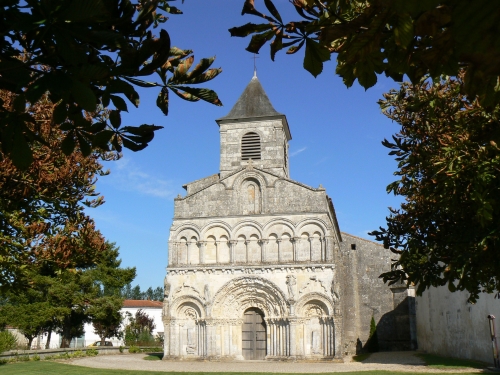
Pour Huysmans, une petite église romane, une statue gracile, gothique, par exemple (et non néogothique!) de la Vierge, sont des signes de la présence divine (il s'en est expliqué dans son beau livre, qui a achevé de le rendre célèbre, et lui a octroyé une coquette somme, La Cathédrale). Or, l’Église de son temps partage les goûts de la bourgeoisie décadente de l'époque. Elle s'est empressée de détruire, de vendre, ou d'achever de ruiner des héritages sublimes d'un moyen âge qui, malgré le romantisme, n'était pas encore reconnu comme l'un des sommets de la civilisation européenne (et ce déni durera).
Huysmans est stupéfait de s'apercevoir que le clergé, celui d'en bas comme celui d'en haut, est complètement indifférent à ces questions. L'essentiel, pour la hiérarchie sacerdotale, relève de la mission. Il s'agit de répandre la Bonne parole, d'amener à soi le troupeau, et de l'encadrer. En cela, il est fidèle à ce que l’Église a toujours fait depuis les temps premiers de sa naissance, et surtout de sa prise de pouvoir, au IVe siècle. Que ses œuvres matérielles aient été, de surcroît, souvent belles, appartient à un autre ordre que celui de la simple propagation de la foi.
Or, dès la Contre-Réforme, on entre dans l'ère de l'efficacité et des foules urbanisées. Il est nécessaire de promouvoir une esthétique qui relève du fonctionnement social, et qui touche affectivement. Les prêtres rétorquent à Huysmans qu'il s'agit de se mettre à portée du peuple. A cela, il répond que, de tout temps, les choix artistiques et esthétiques ont été imposés, et la foule des fidèles s'est pliée volontiers à ce geste impératif, d'assigner à des cerveaux souvent incultes l'éclat transcendant d'une beauté, qui est le signe du divin. C'est cela, cette ambition que l'on veut bien croire démesurée, qui est rompue, avec la modernité. En revanche, parallèlement au sentimentalisme de loge du concierge, on mise sur le gigantesque, l'Hénaurme, comme aurait écrit Flaubert. Ce qui est grand, gros, puissant et écrasant, impressionne immanquablement le béotien, avec, il est vrai, un autre patron: il faut que ce soit comme dans la réalité.

Tout est cyclopéen, éléphantesque, à Lourdes, et on peut y voir une prémonition de l'esthétique totalitaire, communiste, mussolinienne, nazie, américaine, sous sa forme new-yorkaise, ou disneyienne. Lourdes, c'est le prototype, dans le style néogothique ou néobyzantin, de Disneyland, et les mêmes questions d'encadrement du « tourisme » se pose.
La procession, allégorie de la modernité en marche
On peut s'interroger sur les raisons véritables de la « conversion » de Huysmans. Il ne s'est rendu à Lourdes qu'en traînant avec réticence son carnet de notes dans ses bagages. Du reste, il nous prévient : « […] je n’aime pas les foules qui processionnent, en bramant des cantiques. »
Pourtant, le récit qu'il fait de son pèlerinage, même si le champ dans lequel il évolue paraît clos, et sent l'enfermé, suit tout de même une ligne, du moins jusqu'à l'approche de la fin, la queue s'éteignant peu à peu, comme un cierge mélancolique et fatigué à bout de flamme. Se dessine en effet, au fil de la narration, un crescendo, dont l'achèvement paroxystique est une « formidable procession » composée de « tout un corps d’armée, trente mille hommes », « un cierge à la main, de la grotte au Rosaire, en passant par les lacets en forme d’M couché qui grimpent sur la colline, derrière la basilique, et, après avoir descendu et remonté les rampes, […] sur l’esplanade pour finalement se fondre, en un seul groupe, dans le cirque immense du Rosaire».
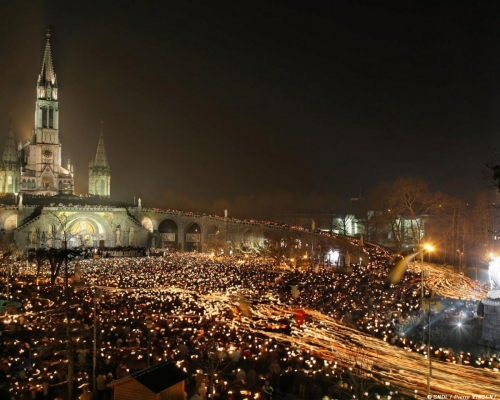
Pour jouir de ce spectacle exceptionnel, Huysmans s'assied « auprès de quelques prêtres, sur les marches de la chapelle. De là, [il] domine, au-dessus du Gave, la basilique, la rampe, l’esplanade, le Rosaire, vus de profil; c’est l’endroit le mieux situé pour assister au gala de la féerie du feu».
Cette procession est en effet placé sous le signe de la lumière. Or, la lumière est le symbole du Divin, son éclat, le signe de sa présence, et c'est pourquoi les églises dites « gothiques », avec leurs vitraux, ont, à partir de l’Évêque de Saint-Denis Suger, pris le pas sur les sombres églises dites « romanes ». Mais la lumière est aussi très présente, en enfer, par la vertu des flammes.
Le choix de l'incendie comme métaphore filée s'est imposé pour décrire cette coulée humaine où tout semble se fondre. « Dans la nuit, la grotte, creusée sous la basilique, flamboie comme une fournaise; c’est de là que part l’incendie propagé par les cierges des pèlerins que l’on ne voit pas ; il semble que des étincelles sautées du fond d’un four ouvert et portées par le vent voltigent dans les lacets de la colline, qui, lentement, s’embrasent ; et les bluettes gagnent du terrain, pétillent déjà dans les arbres derrière l’abside de la basilique et atteignent, peu à peu, en tournant, le parvis, avant de descendre sur la rampe de droite, dans une indescriptible cacophonie de Laudate Mariam, de «Au ciel, au ciel! », mêlés à des cantiques de langues étrangères, tous écrasés, pourtant, par la masse pesante des Ave.
Et voici la basilique qui s’illumine du haut en bas, qui se découpe en des lignes tricolores dans l’ombre et elle paraît plus étriquée, plus chétive encore, sur le fond de ces montagnes que les ténèbres, déchirées par les coups de lumière, agrandissent. La chaufferette ronde, à couvercle, le gueux posé sous ses pieds, le toit du Rosaire, brasille avec la ferblanterie de son dôme et ses oculi rouges. Maintenant, les deux rampes sont en pleine combustion; l’on monte sur l’une et l’on descend sur l’autre; l’on dirait d’une roue de feu, couchée sur le flanc, à demi soulevée du sol, qui tourne, en crépitant, lançant, dans son mouvement giratoire, des gerbes d’étincelles. Les cierges qui grimpent se hâtent, semblent marcher, en poussant des cris de victoire, à l’assaut de la basilique ; et subitement, dans le sillage scintillant, de grands trous se font; le vent a éteint des cierges et des mouches de feu volent pour les rallumer et les trous noirs disparaissent, bouchés par des paquets de flammes !
Et cela tourne, tourne, sans arrêt, dans un vacarme d’Ave soutenu par les cuivres de la fanfare ; au loin, l’esplanade qui déborde, fait songer à une plaine dont la récolte se carbonise, à des champs d’épis en ignition; et les tiges de cette moisson qui brûle projettent un éclairage de théâtre sur les arbres des alentours dont le vert s’albumine et se décolore. »
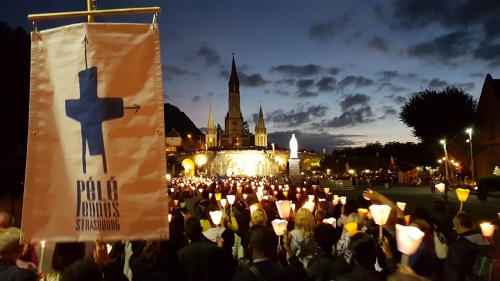
La description se poursuit, magnifiquement, superbement, et le lecteur est aussi fasciné que le spectateur.
Le XXe siècle en a vu, des processions aux flambeaux ! Ce n'est pas ce qui a manqué dans cet âge de fer et de feu !
Au demeurant, les manifestations collectives de foi ardente, où l'individu se perd et communie avec ses proches par la famille, la résidence, ou la religion, sont très communes dans l'Histoire humaine. C'était, et c'est encore le cas dans les rites chamaniques, ou chez les aborigènes. Jünger, dans un récit de voyage au Japon dédié à Julien Gracq, a décrit ce qu'il a vu à Kiyo-Také, une ville de province, dans les environs de Nikko : « Cette danse, à laquelle n'importe qui pouvait prendre part, se mouvait dans un vaste rond-point, autour d'une chapelle en forme de tour, haute et étroite. Les musiciens qui y jouaient répétaient, des heures et des heures durant, sur des tambours voilés et un instrument au son clair, une cloche, je suppose, un simple motif de quatre notes:
ti-tin...ta-tàm.
Les danseurs et danseuses portaient des kimonos d'été à dessins en damiers et tenaient dans la main de larges chapeaux de paille tressés. Ils tournaient lentement, en mesure, chacun pour soi, brandissant parfois leur chapeau, l'ouverture tournée vers le ciel. Il pleuvait: nous nous trouvions parmi les rangs serrés des spectateurs, sous des parapluies plats de papier.
Ici, les visages, et surtout ceux des jeunes filles, se simplifiaient encore, à mesure qu'ils se rapprochaient de l'extase... »


Songeons aussi au Tatbir (photo), rituel chiite, où, dans une procession fiévreuse, à grands geste, certains exaltés se font saigner le crâne en commémoration de la mort du jeune petit-fils de Mahomet, l'imam Hussein ibn Ali, qui a été tué à la bataille de Kerbala. Les exemples sont légions. Mais ces cas supposent une divinité, ou plusieurs, des croyances, la certitude qu'un monde supra-humain existe vraiment.
Or, la fin du XIXe siècle est cette époque où Nietzsche a annoncé la mort de Dieu. C'est l'âge du nihilisme.
On peut aborder le phénomène de transe collective d'usage à Lourdes, lors des pèlerinage, de deux façons: ou l'on survalorise l'état de fusion «mystique» qui absorbe les fidèles, parfois pour leur bien (Huysmans note que certains paraissent transfigurés, et portent à leur prochain une considération qu'ils ne manifestaient sans doute pas avant de venir en ces lieux saints, et qu'ils abandonneront peut-être, sans doute, en s'en éloignant); ou l'on se concentre sur les réactions individuelles d'un personnage tel que J-K. Huysmans, d'un caractère de chien, jaloux de sa liberté comme un ermite, soucieux jusqu'à la folie de l'authenticité de l'existence, et des relations avec le monde et la vérité.
Huysmans n'a pas reçu la grâce, comme un Pascal. Il n'y a pas vraiment eu, chez lui, de nuit mystique, de Mémorial. Sa « conversion » est un long cheminement, ouvrage de sa volonté. Je ne prétends pas qu'il n'était pas «croyant»: il pensait, manifestement, que Jésus existait vraiment, comme la sainte Vierge, et que les saints, comme Sainte Lydwine de Schiedam, étaient des créatures élues de Dieu, dotées de vertus charismatiques. Mais il n'est pas un mystique, comme Saint Jean de la Croix.
Il semble plutôt avoir réagi comme un être sur la défensive, qui entend préserver une intégrité toujours mise en péril par l'action ubiquiste et dissolvante d'une modernité agressive, stupide, et obscène. De là son retranchement dans l'art (il est poète, c'est-à-dire, au sens où l'entend Roman Jakobson, soucieux au plus au point de la chair et de la peau des mots, de la phrase, du rythme, de la préciosité de la langue), dans la hantise de la beauté, dans les souvenirs éblouis du moyen-âge, de siècles où il était naturel d'être chrétien, de porter en soi un sens, qui est aussi celui, partagé, par la société, par les pouvoirs religieux et politiques. Ce sens, au moment où science et républicanisme communient dans le même culte de l'homme vernaculaire, commun, dans le dernier homme nietzschéen, il faut se le donner, le conquérir, l'arracher à un grand corps, celui de l’Église, qui vit encore quelque peu, mais dont l'on sent bien qu'il est près de l'agonie. Seule l'écriture permet de garder la tête hors de l'eau, et de pouvoir respirer. Tant bien que mal, et souvent mal.
L'un des contemporains de Huysmans, Gustave Le Bon, a écrit, en 1895, un ouvrage célèbre, La psychologie des foules, où il revient, au détour de la description du phénomène holiste de la communauté soudée en acte, sur le sujet de la préservation de l'être singulier dans un milieu oppressant où le collectif l'emporte. Il serait trop long de suivre toutes les étapes de son argumentation. Mais on peut retenir cette phrase, qui s'applique bien à Huysmans : « Les individualités qui, dans la foule, posséderaient une personnalité assez forte pour résister à la suggestion, sont en nombre trop faible pour lutter contre le courant. » Cette vérité s'applique autant à celui qui se fond dans une collectivité fusionnelle ayant pour centre une croyance forte, et comme manifestation des gestes et des sons ritualisés, que pour ce que Jünger nomme Le Rebelle, tentant d'échapper à l'effacement de son existence par l'empire du vide.
Notes:
(1) « Il faudrait, se disait-il [Durtal], garder la véracité du document, la précision du détail, la langue étoffée et nerveuse du réalisme, mais il faudrait se faire aussi puisatier d’âme et ne pas vouloir expliquer le mystère par les maladies des sens ; le roman, si cela se pouvait, devrait se diviser de lui-même en deux parts, néanmoins soudées ou plutôt confondues, comme elles le sont dans la vie, celle de l’âme, celle du corps, et s’occuper de leurs réactifs, de leurs conflits, de leur entente. Il faudrait, en un mot, suivre la grande voie si profondément creusée par Zola, mais il serait nécessaire aussi de tracer en l’air un chemin parallèle, une autre route, d’atteindre les en deçà et les après, de faire en un mot, un naturalisme spiritualiste : ce serait autrement fier, autrement complet, autrement fort ! » (ex: Là-bas. Gallimard. Folio classique, p. 30-81).
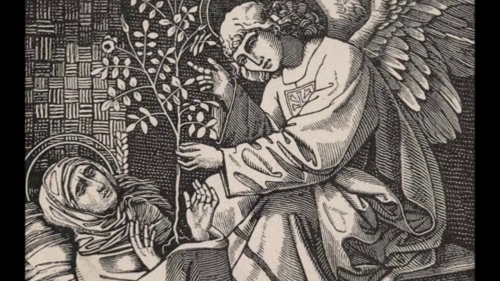
(2) « Bienheureuse Lydwine, elle obtient du Ciel la permission de souffrir pour les autres, d’alléger les malades en prenant leurs maux. »
(3) « Que de pressentiments et de signes envoyés déjà par Dieu, qu’il est grandement temps d’agir, de considérer la minute présente comme la plus importante des minutes, et de faire ma perpétuelle volupté de mon tourment ordinaire, c’est-à-dire du Travail ! » Baudelaire ; Mon cœur mis à nu.
16:55 Publié dans Littérature | Lien permanent | Commentaires (0) | Tags : religion, joris-karl huysmans, littérature, lettres, lettres françaises, littérature française, catholicisme, lourdes |  |
|  del.icio.us |
del.icio.us |  |
|  Digg |
Digg | ![]() Facebook
Facebook
mardi, 23 septembre 2025
La misère de l’atlantisme

La misère de l’atlantisme
Santiago Mondejar Flores
Source: https://posmodernia.com/la-miseria-del-atlantismo/
Étant donné que le plus grand consommateur de produits relevant de la «légende noire» semble être, de loin, le public espagnol, il ne devrait pas surprendre que la célèbre boutade d’Arturo Pérez-Reverte — selon laquelle les Espagnols se seraient trompés de Dieu à Trente — soit rapidement devenue, dans certains cercles, un quasi-dogme, de ceux que Roger Scruton a qualifiés d’«oikophobes» (qui répudient leur propre héritage et leur foyer ethno-géographique)¹.
Quoi qu’il en soit, il n’en demeure pas moins surprenant de constater le mélange d’indolence intellectuelle et de crédulité de ceux qui reprennent sans examen l’affirmation du romancier et académicien selon laquelle, à Trente, l’Espagne aurait choisi un Dieu autoritaire et rétrograde au lieu d’un Dieu progressiste, comme ceux du nord de l’Europe, et que ce choix nous aurait installés dans la soumission, le retard, l’analphabétisme et la répression.
Car la réalité, c’est que, tandis qu’aux Pays-Bas et en Angleterre proliféraient les techniciens, les financiers et les marchands, l’Espagne, à son âge d’or (c’est-à-dire après 1492), comptait un nombre notable d’académiciens, grâce à l’essor des universités et des collèges majeurs aux 15ème et 16ème siècles, ce qui a permis un développement remarquable des théories du droit international et du droit commercial, sans oublier les travaux fondamentaux de la disputatio métaphysique, l’un des piliers de l’apogée culturel du Siècle d’or qui a fait essaimé dans toutes l’Europe quantité d’imitateurs de la littérature espagnole, comme Molière².
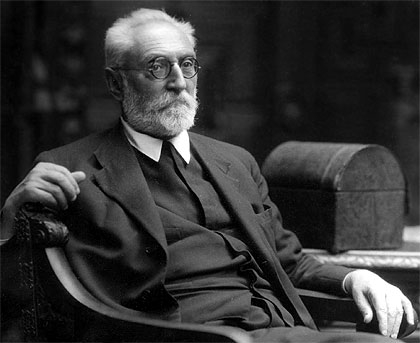
Comme l’a finement observé Miguel de Unamuno (photo) : «Cela ne sert à rien d’y revenir, notre don est avant tout un don littéraire, et tout ici, même la philosophie, devient littérature… et si nous avons une métaphysique espagnole, c’est la mystique… est-ce mauvais, est-ce bon ? Pour l’instant, je ne tranche pas, je dis seulement que c’est ainsi. … et comme il y a, et doit y avoir, une différenciation du travail spirituel tout comme du travail corporel, tant chez les peuples que chez les individus, il nous a été attribué cette tâche»³.
Bien sûr, dans un pays où la francisation est une institution nationale, il est commode et tentant de recourir à l’argumentaire de Max Weber exposé dans son «Éthique protestante et l’esprit du capitalisme», et de réciter sans y penser deux fois les louanges de l’éthique protestante et la promotion de valeurs telles que l’autodiscipline, le travail méthodique et l’accumulation rationnelle de la richesse⁴, même si, malgré le fait d’avoir choisi le même Dieu que l’Espagne à Trente, Venise et Gênes disposaient déjà, du 12ème au 15ème siècle, de systèmes financiers avancés, de réseaux commerciaux internationaux et d’une culture économique fortement développée, tout comme Florence, la Flandre, la Bavière, la Rhénanie et le Bade-Wurtemberg.
Un chapitre à part concerne le mythe de la tolérance religieuse réformée, sous l’égide duquel le principe du cuius regio, eius religio fut instauré dans les territoires luthériens du Saint-Empire romain germanique, autorisant les princes allemands à imposer leur foi à tous leurs sujets, comme ce fut le cas en Saxe et en Hesse, où les catholiques furent persécutés et leurs églises fermées après la consolidation du luthéranisme ; les ordres religieux furent supprimés et les monastères confisqués pour renforcer le pouvoir politique et financier des princes locaux.
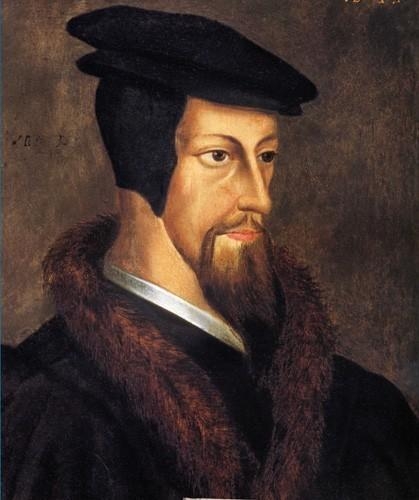
Pour sa part, Calvin (portrait) instaura un régime de surveillance théologique qui régulait aussi bien les actes liturgiques que la morale privée, l’intolérance doctrinale et l’élimination de la dissidence étant la norme dans sa république théocratique⁵. Et que dire d’Oliver Cromwell, leader puritain anglais, sous le Protectorat duquel eut lieu la sanglante répression religieuse en Irlande, où les biens de l’Église catholique irlandaise furent confisqués, les églises catholiques profanées et pillées (avec une brutalité qui rappelle le modus operandi de l’État Islamique à Palmyre).
Le paroxysme puritain culmina dans des massacres incluant des exécutions arbitraires de catholiques. De plus, son régime abolit les théâtres, imposa des normes morales rigoristes et subordonna la vie civile aux diktats de la religion protestante⁶.
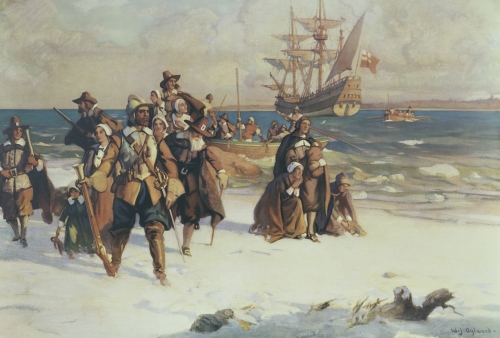
Pourtant, c’est bien cette variété particulière du protestantisme qui, au final, imposa sa mentalité à l’échelle globale : après avoir trouvé refuge aux Pays-Bas en 1608 à cause du rejet dans leur terre natale, la faction la plus radicale des puritains séparatistes anglais partit vers l’Amérique du Nord en 1620, s’établissant dans le Massachusetts. Ces colons, et ceux qui allaient bientôt suivre, n’étaient pas nécessairement les plus cultivés d’Europe, mais les plus audacieux : radicaux dans l’action plus que dans la réflexion, ils méprisaient le passé et vénéraient l’avenir, de sorte que cette orientation temporelle vers le futur devint progressivement l’épine dorsale du caractère national américain.
La confiance dans la nouveauté, plus qu’une vertu individuelle, est le produit d’une pression sociale : l’esprit nord-américain exige enthousiasme, adaptabilité et optimisme, et tolère peu la mélancolie, la nostalgie et l’introspection qui flottent toujours dans l’atmosphère des cafés européens.
Pourtant, cet optimisme peut devenir religieux, chargeant d’un sens quasiment sacré l’économie, la famille, les rites sociaux et même le sport : il idéalise plus qu’il ne questionne, se protégeant du doute par des certitudes fonctionnelles, reflet d’un caractère forgé dans l’immensité d’un territoire sauvage ; aussi libre qu’incertain, où l’Américain, détaché des traditions européennes, construisit son identité dans un vide physique et moral. Cette vastitude, géographique et morale, favorise l’expérimentation et le pragmatisme, mais exige l’action pour leur donner sens : sa culture de masse méprise le loisir contemplatif, privilégiant utilité, rapidité et impact.
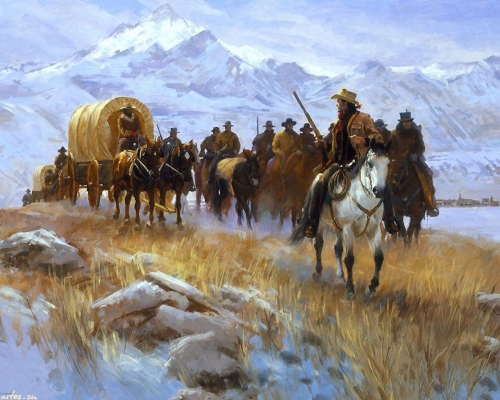
Les arts et la pensée se subordonnent ainsi à l’efficacité, et l’idéalisme, mesuré en résultats quantifiables, devient statistique, ce qui, à son tour, a généré un matérialisme moral valorisant le quantitatif au détriment du qualitatif. En conséquence, et faute d’une tradition spéculative, en Amérique du Nord, le spirituel est devenu fonctionnel⁷.
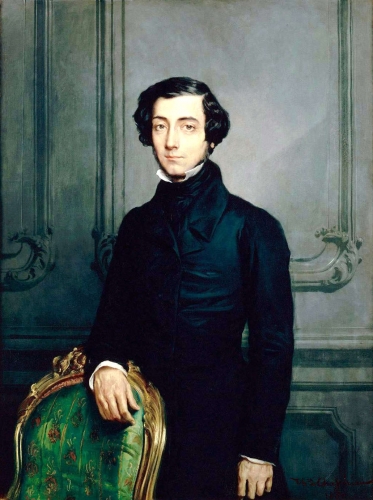
Lorsque Tocqueville voyagea en Amérique dans les années 1830, il n’observa pas seulement une expérience politique nouvelle, mais une spiritualité idiosyncratique. Contrairement au modèle européen, où la religion s’entrelace avec le pouvoir politique ou fait l’objet de conflits sécularisateurs, aux États-Unis la religion se révèle comme une force sociale autonome, profondément influente dans la vie civique.
Tocqueville identifia cinq caractéristiques fondamentales de la relation entre religion et démocratie aux États-Unis: premièrement, la religion — particulièrement dans sa forme protestante, sobre et éthique — sert de fondement moral à la liberté, offrant un cadre de vertus civiques qui renforcent l’autodiscipline et limitent les excès de l’individualisme libéral; deuxièmement, la séparation entre l’Église et l’État, sans impliquer une rupture entre religion et société, permet à la foi de conserver sa vitalité sans être absorbée par le pouvoir politique ; troisièmement, le pluralisme religieux et la tolérance, loin de fragmenter le corps social, favorisent un consensus tacite sur le rôle moral de la religion ; quatrièmement, le pragmatisme spirituel, orienté vers la vie quotidienne et éloigné des disputes dogmatiques, confère à la religion un caractère fonctionnel et pratique ; et enfin, l’engagement communautaire, où les églises agissent comme des acteurs sociaux assurant un certain équilibre entre liberté individuelle, moralité publique et cohésion sociale⁸.
Pourtant, plus récemment, il a émergé dans la sphère évangélique américaine un totum revolutum, prenant la forme d’un syncrétisme théologico-politique qui amalgame le dispensationalisme eschatologique, le pentecôtisme charismatique et un nationalisme chrétien militant, constituant une matrice religieuse structurellement analogue à l’ébionisme judéo-chrétien des premiers siècles, ce qui représente un tournant dans l’imaginaire religieux américain, remplaçant en grande partie le pragmatisme moral tocquevillien par une théologie de l’anticipation apocalyptique⁹.
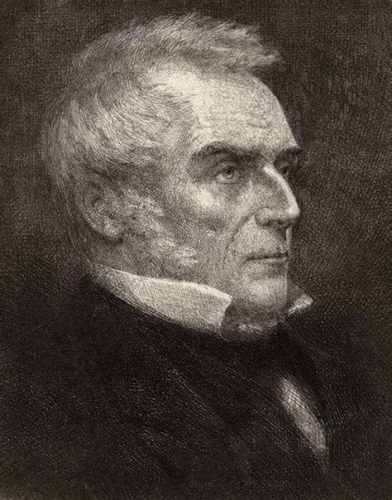
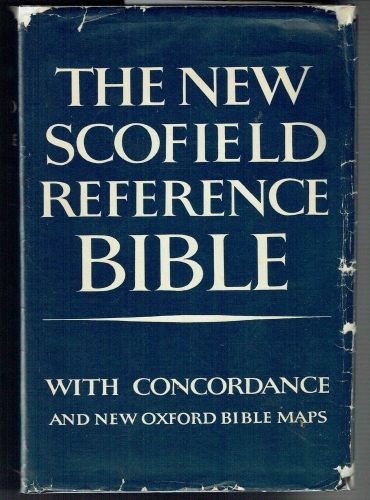
Cette convergence produit une synthèse eschatologique contemporaine qui interprète l’histoire comme un combat cosmique entre le Bien et le Mal, dans lequel certaines nations sont conçues comme des instruments privilégiés de la volonté divine. Son axe central, le dispensationalisme, fut conçu au 19ème siècle par John Nelson Darby (illustration, ci-dessus) et diffusé largement par la Scofield Reference Bible, qui présente une lecture littérale de la Bible avec des interprétations partiales, divisant l’histoire en « dispensations » et accordant à l’Israël ethnique un rôle central dans l’accomplissement des temps, ce qui justifie un sionisme chrétien inconditionnel et une vision apocalyptique de la politique internationale.
De son côté, le pentecôtisme, initialement marginal et apolitique, a évolué vers des formes de néo-pentecôtisme nationaliste qui interprètent la politique comme un champ de guerre spirituelle, promouvant un littéralisme biblique radical et une morale réactionnaire⁹.
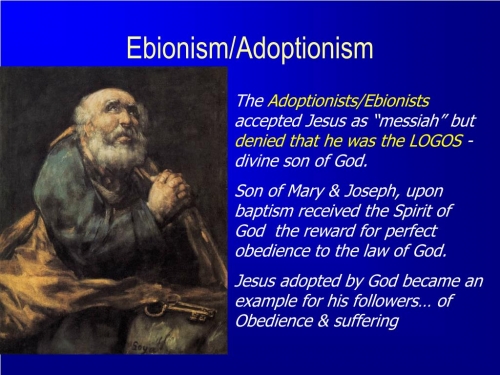
Ces éléments convergent dans le nationalisme chrétien, une doctrine qui sacralise l’identité nationale, prône la subordination de la loi civile à la « loi de Dieu » et postule une mission eschatologique pour certaines nations appelées à conduire la bataille contre les forces du mal, retrouvant un ordre moral supposément perdu. Cette configuration théopolitique présente des analogies structurelles surprenantes avec l’ébionisme des 1er au 4ème siècles, dans des aspects tels que la centralité du messianisme littéral, la normativité de la loi religieuse, l’élection d’un peuple comme axe du plan divin, la fusion entre foi et identité nationale et le rejet de l’universalisme pluraliste.
Ainsi, bien que séparés par des siècles et des contextes doctrinaux différents, l’ébionisme ancien et ce sionisme chrétien contemporain partagent une logique commune : l’intégration de la religion, de la morale et de la nation à travers une eschatologie combative et providentialiste, qui redéfinit profondément le rôle de la foi dans la sphère publique et reconfigure le sens même de la nation, de l’histoire et du salut⁹.
Tout cela a inséré la spiritualité américaine dans un cadre théopolitique global. Si Tocqueville admirait la capacité de la religion à contenir le matérialisme, ces nouvelles interprétations évangéliques tendent à utiliser la foi comme une lentille d’interprétation de la géopolitique mondiale, en plus de donner lieu à des dérives religieuses telles que la « théologie de la prospérité » du pentecôtisme, qui renverse le rôle de la religion comme frein au matérialisme, interprétant la richesse comme un signe de bénédiction divine¹⁰.
La spiritualité nord-américaine contemporaine a donc connu une profonde métamorphose, qui constitue, au fond, une réponse à la complexité sociale, démographique et culturelle de l’Amérique contemporaine : urbanisation, migration, mondialisation, sécularisation et polarisation politique. La spiritualité n’est plus simplement un support moral de la démocratie, mais un champ de bataille symbolique où se disputent le sens du bien commun, l’identité nationale et le futur politique de la nation.
Comme nous pouvons le constater dans le cas du conflit Israël-Iran, certaines lectures et rhétoriques bibliques (par exemple, voir l’interview de Tucker Carlson avec le sénateur Ted Cruz du 18 juin 2025) peuvent agir comme des forces performatives dans la politique internationale. Il ne s’agit pas seulement du fait que les croyants attendent l’accomplissement de la fin des temps, mais aussi qu’ils peuvent agir de manière à le provoquer ou à l’accélérer. L’eschaton, ainsi compris, cesse d’être un avertissement prophétique pour devenir une directive géostratégique.
La théologie dispensationaliste et ses dérivés articulent une vision eschatologique dans laquelle le conflit entre Israël et l’Iran et la reconstruction du Troisième Temple sont des éléments fondamentaux pour l’accomplissement du plan divin. Cette vision du monde, en devenant moteur de la politique étrangère et de la défense, configure un scénario où les croyances religieuses influencent directement la géopolitique contemporaine, ce qui n’a pas seulement des conséquences de grande portée pour la stabilité régionale et globale, mais vide le volontarisme atlantiste européen du contenu qu’il a pu avoir à d’autres époques¹¹.
Bibliographie/Notes:
(1) Scruton, R. (2004). England and the need for nations. London: Civitas.
(2) Brufau Prats, R. (1992). La Escuela de Salamanca y el nacimiento del derecho internacional moderno. Ediciones Rialp.
(3) Unamuno, M. de. (1995). En torno al casticismo. Madrid: Espasa-Calpe.
(4) Weber, M. (2001). The Protestant ethic and the spirit of capitalism (T. Parsons, Trans.). London: Routledge. (Original work published 1905).
(5) Höpfl, H. (1982). The Christian polity of John Calvin. Cambridge: Cambridge University Press.
(6) Fraser, A. (2007). Cromwell: Our chief of men. London: Phoenix.
(7) Bellah, R. N. (1991). The broken covenant: American civil religion in time of trial (2nd ed.). Chicago: University of Chicago Press.
(8) Tocqueville, A. de (2008). La democracia en América (trad. J. A. González). Alianza Editorial. (Obra original publicada en 1835).
(9) Sutton, M. A. (2014). American apocalypse: A history of modern evangelicalism. Cambridge, MA: Harvard University Press.
(10) Bowler, K. (2013). Blessed: A history of the American prosperity gospel. Oxford: Oxford University Press.
(11) Gooren, H. (2010). Religious Conversion and Disaffiliation: Tracing Patterns of Change in Faith Practices. Palgrave Macmillan.
15:03 Publié dans Actualité | Lien permanent | Commentaires (0) | Tags : actualité, atlantisme, dispentionalisme, états-unis, religion, protextantisme, sionisme chrétien, théopolitique |  |
|  del.icio.us |
del.icio.us |  |
|  Digg |
Digg | ![]() Facebook
Facebook
dimanche, 21 septembre 2025
L'Eglise, le chagrin, la pitié, et des tonnes de larmes
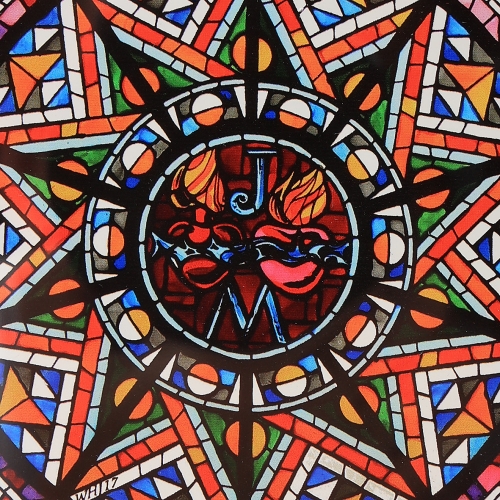
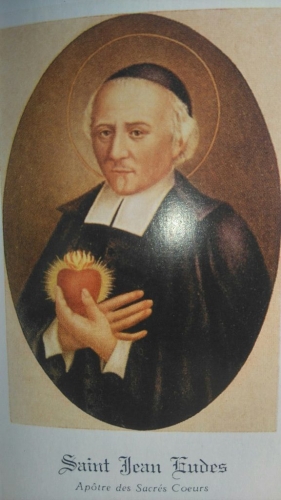
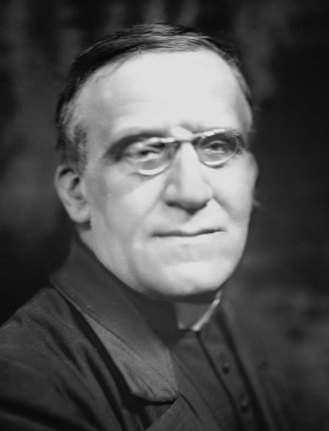

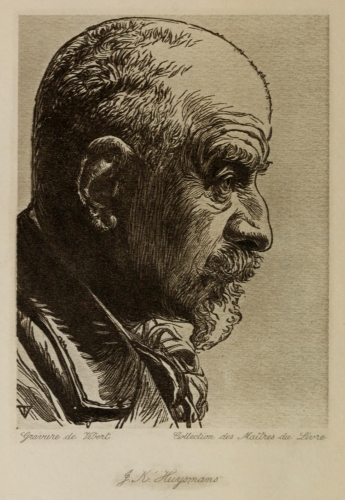

15:40 Publié dans Traditions | Lien permanent | Commentaires (0) | Tags : tradition, catholicisme, religion |  |
|  del.icio.us |
del.icio.us |  |
|  Digg |
Digg | ![]() Facebook
Facebook
mardi, 02 septembre 2025
Le problème des Églises orthodoxes en Ukraine

Le problème des Églises orthodoxes en Ukraine
Francesco Foti
Source: https://www.centromachiavelli.com/2025/08/12/il-problema-delle-chiese-ortodosse-in-ucraina/#
Le conflit entre l'Ukraine et la Russie n'implique pas seulement des dynamiques politiques et militaires, mais aussi des questions religieuses et une dimension informationnelle complexe axée sur des thèmes tels que l'indépendance, l'intégrité territoriale, l'autodétermination, la sécurité et les actions qui ont précédé les opérations militaires de 2014 et 2022.
Le Pacte international relatif aux droits civils et politiques garantit la liberté de religion et d'expression (articles 18 et 19). De même, l'OSCE/BIDDH invite à faire preuve d'une attention particulière lors de la restriction de la liberté religieuse pendant les conflits armés.
L'interdiction des liens avec le Patriarcat de Moscou
En septembre 2024, le président ukrainien Zelensky a annoncé l'interdiction de l'Église ukrainienne liée au Patriarcat de Moscou et dirigée par le métropolite Onufrij (Onofrio). Cette décision a été critiquée par la Mission d'observation des droits de l'homme des Nations unies en Ukraine, le Rapport sur la liberté religieuse internationale du Département d'État américain et Amnesty International. L'Église ukrainienne avait déclaré avoir rompu ses relations avec Moscou après le début du conflit et le métropolite Onufriy avait pris ses distances par rapport à l'invasion, exprimant son soutien à l'armée ukrainienne. Le débat public sur la question ecclésiastique en Ukraine a été fortement influencé par des positions favorables à l'actuelle direction politique, par des milieux extérieurs au contexte orthodoxe et par des voix critiques à l'égard du rôle historique de l'Église orthodoxe dans le pays, y compris certains médias tels que United Media 24.
La polarisation croissante de la société ukrainienne a été associée à une augmentation des tensions sociales qui, selon certaines analyses, pourraient avoir des implications sur le respect des droits fondamentaux, y compris la liberté de conscience, en particulier pour les citoyens ukrainiens de confession orthodoxe et les communautés religieuses liées à la tradition orthodoxe. Plusieurs rapports font état d'un possible déséquilibre dans les relations entre l'État et l'Église, traditionnellement marquées par une coopération harmonieuse et synodale, avec une influence accrue de l'État. Dans ce contexte, des activités des services de sécurité auraient suscité des inquiétudes quant au respect des garanties démocratiques, notamment au regard des aspirations de l'Ukraine à intégrer l'UE. Il convient également de noter que les services de sécurité sont directement subordonnés à l'autorité présidentielle, et certains observateurs ont soulevé des questions quant au degré d'indépendance et de transparence de leurs opérations, en particulier en ce qui concerne les perquisitions, les condamnations et la formulation des accusations à l'encontre de membres du clergé ou de fidèles affiliés à l'Église ukrainienne faisant l'objet de contre-mesures telles que le Myrotvoretz.

L'Église d'État ukrainienne
L'Église d'Ukraine, récemment créée et reconnue au niveau national, semble s'aligner, à plusieurs reprises, sur les positions du pouvoir exécutif. Parmi les manifestations de cette orientation figurent des déclarations de soutien à des manifestations dans d'autres pays, comme la Géorgie, ainsi que la participation à des initiatives concernant des édifices religieux appartenant auparavant à l'Église ukrainienne.
Tant en Ukraine qu'en Russie, des responsables politiques ont eu recours à des interprétations sélectives de l'histoire pour soutenir leurs récits nationaux respectifs et leurs outils de communication publique. Dans ce contexte, des observateurs critiques ont relevé que les institutions religieuses, dans leur ensemble, n'ont pas toujours pris clairement position contre l'utilisation instrumentale de la foi, de la religion et du nationalisme, éléments que les conciles de la tradition ont condamné à plusieurs reprises, en particulier l'ethno-philétisme. Certaines sources ont également exhorté le Patriarcat œcuménique de Constantinople, en la personne du patriarche Bartholomée Ier, à s'exprimer plus clairement sur des incidents attribués à l'Église ukrainienne reconnue par l'État, qui comprendraient des actions jugées problématiques à l'égard de bâtiments religieux, du clergé et des fidèles appartenant à l'Église ukrainienne. Ce n'est pas la première fois que des critiques sont formulées à l'égard de l'action de cette Église, comme le montrent les précédents liés à la non-enregistrement de l'« association religieuse des Églises orthodoxes roumaines en Ukraine », qui avait suscité des perplexités dans le monde ecclésiastique.
Certaines Églises sœurs, dont l'Église roumaine, ont invité le Patriarcat œcuménique de Constantinople à entamer un dialogue fondé sur la tradition ecclésiastique plutôt que sur des critères ethniques ou des dynamiques politico-nationales. Dans ce contexte, des réserves ont également été exprimées par les Églises serbe et bulgare concernant la décision du Patriarcat œcuménique d'accorder le tomos d'autocéphalie à l'Église orthodoxe d'Ukraine sans conciliation ni réconciliation préalable entre les juridictions présentes en Ukraine, ni dialogue avec le Patriarcat de Moscou. Dans cette perspective, un processus de dialogue entre Constantinople et Moscou serait souhaitable afin d'aborder de manière constructive la complexité de la situation ecclésiastique en Ukraine. Le fait que les préoccupations exprimées par le patriarcat de Moscou concernant les limites de ses juridictions canoniques n'aient pas été prises en considération est considéré par certains experts en questions ecclésiastiques comme un élément critique. Historiquement, l'Ukraine fait partie du Patriarcat de Moscou depuis 1686, à la suite du transfert de la métropole de Kiev du Patriarcat œcuménique de Constantinople. Une approche fondée sur la conciliation, la continuité canonique et la sensibilité pastorale envers les fidèles en Ukraine a également caractérisé la position adoptée par l'Église géorgienne.
Les récentes décisions de l'Église ukrainienne concernant la vénération officielle des saints et, dans le cas du prêtre Roman Hryshchuk, des attributs spirituels qui leur sont associés, ainsi que les initiatives de l'État concernant la propriété de la Laure des Mouvements de la Grotte, soulèvent des questions sur la perception et la continuité de la foi parmi les croyants. Ces développements proviennent d'une Église soutenue par l'État et seulement partiellement reconnue par les autres Églises orthodoxes, ainsi que par les autorités gouvernementales, y compris les services de sécurité. Bien que les deux Églises rivales présentes en Ukraine partagent les mêmes fondements théologiques, les dynamiques politiques qui leur sont liées contribuent à une fracture institutionnelle et sociale. La perspective d'une solution à cette situation semble résider dans l'autonomie des autorités ecclésiastiques et dans la convocation d'un pan-synode. Dans ce contexte, les récentes actions de l'Église d'Ukraine soulèvent la question d'une éventuelle intervention du patriarche œcuménique Bartholomée Ier (photo).
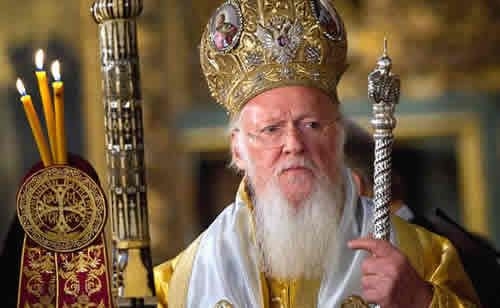
Certaines interprétations, répandues dans les milieux politiques et médiatiques, décrivent la Sainte Rus' comme une construction idéologique récente liée à la rhétorique du gouvernement russe. Cette vision, largement acceptée par le public occidental, tend à négliger les racines historiques et théologiques de ce concept, qui plongent dans des traditions telles que celles de Byzance et de la Troisième Rome. Bien que ces références aient parfois été réinterprétées dans une optique politique, elles conservent une valeur préfigurative, symbolique et analogique qui peut être considérée comme légitime au sein de la foi.
Une impulsion pour la paix ?
Le pape François avait invité les autorités ukrainiennes à agir avec prudence à l'égard des communautés religieuses, en évitant les généralisations, les actions discriminatoires et les mesures fondées sur des sources non vérifiées ou sur des rapports provenant de secteurs institutionnels critiqués pour leur politisation. Le pape a souligné l'importance de protéger la liberté religieuse et de conscience, conformément à l'article 9 de la Convention européenne des droits de l'homme, qui stipule que les restrictions à l'égard des groupes religieux ne peuvent être mises en œuvre que pour des motifs concrets et proportionnés, et si elles sont nécessaires dans une société démocratique.
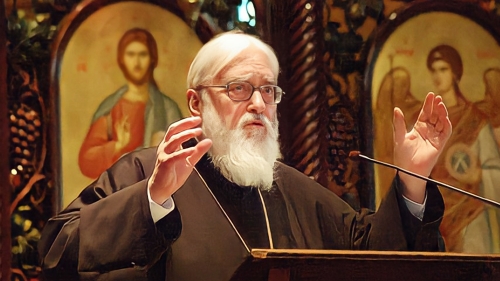

Dans le contexte de la guerre entre la Russie et l'Ukraine, on observe une divergence entre les spécialistes ecclésiastiques qui s'en tiennent à une lecture historique et théologique fondée, comme Kallistos Ware (photo), et d'autres interprètes, comme Timothy Snyder, qui adoptent des approches plus marquées par des perspectives idéologiques et politiques, contribuant ainsi à une représentation partielle de la réalité religieuse et culturelle de la région. Cette dynamique reflète un climat dans lequel les questions religieuses sont parfois insérées dans un contexte politique et culturel plus large. Des personnalités telles qu'Aleksej Arestovich ont exprimé leur inquiétude quant aux effets de certaines politiques de l'État à l'égard de l'Église d'Ukraine, soulignant le risque de polarisation. Dans ce contexte complexe, la protection de la liberté et l'inclusion religieuse sont des éléments fondamentaux pour le bien-être du tissu social, au-delà des orientations politiques et nationales.
Plus précisément, les services de sécurité opèrent sous la supervision directe de la présidence, avec une structure dirigeante souvent caractérisée par des nominations liées à des relations personnelles. Les enquêtes en cours sur des cas présumés de trahison – fréquemment liés aux organes présidentiels – attirent l'attention à la fois sur la fonction de ces appareils en tant qu'instruments de sécurité nationale et sur leur utilisation possible dans le cadre de la gestion du pouvoir politique. La question de la double nationalité du métropolite Onufrij, largement débattue, est comparable à celle d'autres personnalités publiques (dont Ilya Ponomarev, Artem Skoropadskyi, Kirill Vyshinsky et Maria Gaidar), qui ne font pas l'objet de mesures similaires, ce qui soulève des questions quant à l'uniformité de l'application des règles. La controverse semble porter en particulier sur le rôle du métropolite et son attitude à l'égard du transfert d'autorité à Épiphane Ier de l'Église d'Ukraine. Au niveau local, mais aussi au-delà, la tendance à identifier des personnalités religieuses de premier plan, des promoteurs du dialogue ou de simples fidèles comme des sujets critiques ou suspects, ainsi que les relations historiques complexes entre l'Église et le contexte socioculturel du pays, ne favorisent pas un climat de dialogue constructif ni la recherche de solutions communes, tant au niveau local qu'européen.
Au niveau international, malgré l'engagement déclaré en faveur de la protection des droits des minorités et contre toute forme de discrimination, la situation des communautés religieuses en Ukraine – soulignée également par des déclarations de personnalités institutionnelles américaines – n'a reçu qu'une attention limitée, tant au niveau médiatique que politique. En ce qui concerne l'UE, l'absence d'une position claire et d'un engagement cohérent en faveur du respect des convictions religieuses risque de ne pas être conforme aux principes énoncés dans le Plan d'action des Nations unies et à l'article 35 de la Constitution ukrainienne, qui protège la liberté de conscience. Dans le cadre du processus d'adhésion à l'UE, il serait souhaitable que l'État garantisse le respect des libertés religieuses, en laissant aux autorités religieuses le soin de gérer leurs affaires internes et les relations entre les patriarcats, dans le respect de l'autonomie spirituelle. Toute action en justice devrait être fondée sur des preuves documentées, sur une évaluation individuelle des cas et sur le respect du principe de la présomption d'innocence.
La perception négative de la Russie en Occident et dans certaines régions d'Ukraine ne devrait pas être généralisée sur la base du comportement d'individus isolés ou des opinions d'analystes étrangers sur des personnalités de la foi orthodoxe. Bien que les incidents de troubles à l'ordre public qui compromettent l'intérêt collectif doivent être traités par des moyens légaux, la décision du président Zelensky a été qualifiée par la responsable des services de renseignement américains, Tulsi Gabbard, de mesure critique pour la démocratie et les droits des fidèles. Une éventuelle absence de révision devrait entraîner une réponse des États-Unis, sous forme de sanctions ou d'autres initiatives, comme l'ont suggéré la sénatrice Anna Paulina Luna et d'autres personnalités politiques. En ce qui concerne la construction de l'identité nationale, il est important d'éviter les interprétations sélectives de l'histoire. La longue appartenance de l'Ukraine à l'Empire russe puis à l'Union soviétique est un fait historique qui, bien que pouvant faire l'objet d'une analyse critique, ne devrait pas être effacé ou réécrit par des approches révisionnistes. Cela vaut également pour la nécessité d'éviter les généralisations et les imprécisions, telles que celles du président Poutine.
À l'heure actuelle, l'Ukraine ne remplit pas encore pleinement les conditions requises pour adhérer à l'Union européenne, selon les paramètres fixés par la Commission européenne, l'article 10 de la Charte des droits fondamentaux de l'Union et les critères de Copenhague. Toutefois, la question centrale concerne la gestion des différents courants idéologiques qui influencent la cohésion sociale, une dynamique observée également dans d'autres contextes historiques, comme dans le cas de l'Angleterre et de l'Écosse pendant la guerre civile anglaise, des guerres de religion en France ou de la répression contre l'Église sous le gouvernement de Vladimir Lénine.
 Qui est Francesco Foti?
Qui est Francesco Foti?
Analyste. Il écrit sur les relations OTAN/UE-Russie, l'influence russe et chinoise en Europe et la coopération bilatérale/multilatérale dans une perspective sécuritaire et géopolitique. Il applique ces thèmes à des études de cas telles que les Balkans occidentaux, le Caucase du Sud, la Méditerranée orientale et la mer Rouge.
10:08 Publié dans Actualité, Affaires européennes | Lien permanent | Commentaires (0) | Tags : religion, orthodoxie, patriarcat orthodoxe, ukraine, actualité, europe, affaires européennes |  |
|  del.icio.us |
del.icio.us |  |
|  Digg |
Digg | ![]() Facebook
Facebook
vendredi, 25 juillet 2025
La fable chrétienne et le mythe
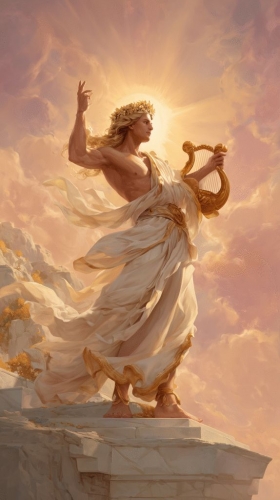
La fable chrétienne et le mythe
Claude Bourrinet
Le christianisme, issu du judaïsme, n'était pas armé conceptuellement, pour comprendre le paganisme. C'est un truisme. Il n'est qu'à lire par exemple La Cité de Dieu, de Saint Augustin, pour constater que l'évêque d'Hippone ne saisissait pas la complexité polysémique et pluridimensionnelle, de la Weltanschauung gréco-romaine. Le lien religieux, au tournant du 5ème siècle, tant du reste chez les chrétiens, que chez les néoplatoniciens, se résolvait en une relation morale entre l’existence et Dieu, relation justifiée par le suprahumain, qui porte sens. Toute la traduction de l'histoire de l'empire romain pivote autour de la question nodale de la vertu – non au sens antique de valeur, de force éthique, mais dans l'acception que le terme a fini par prendre, de probité, d'honnêteté, de décence, de pureté, bref, de convenance avec le Bien en soi. Pour autant, Augustin a beau jeu de souligner combien l'élite romaine usait de cette manière de juger la religion en critiquant l' « immoralité » des dieux du panthéon. Il note ce jugement chez un Pline l'Ancien, par exemple. En vérité, l'épistémè « païenne » correspondait, de facto, à celle des chrétiens, en cette fin du paganisme, c’est-à-dire à partir du triomphe de Constantin. Il existait de nombreux ponts entre le monde nouveau et le monde ancien.
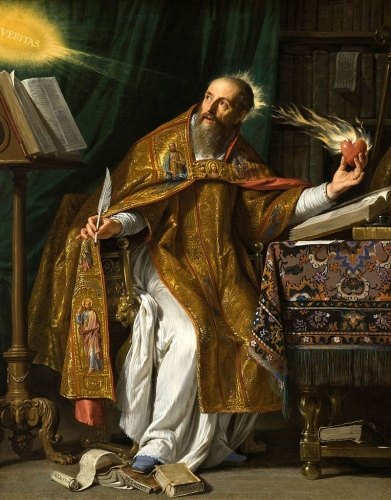
Quoi qu'il en soit, le rationalisme occidental, même quand il fut antichrétien, partagea ce mépris pour les « superstitions » païennes, y voyant, au mieux, un divertissement pour écoliers ahanant sur des exercices latins ou grecs, au pire, des contes pour les paysans arriérés, voire de la sorcellerie. Christianisme et scientisme sont tombés d'accord pour conférer au polythéisme un rang civilisationnel inférieur, puéril, dans la longue marche de l'humanité, qui doit aboutir au nettoyage de toutes les impuretés irrationnelles dans la vie, comme dans la cité. De là, par exemple, la répulsion pour le panthéon fourmillant de dieux grands ou petits de l'Hindouisme, ou bien, paradoxalement, a contrario, l'attirance irrésistible pour lui de la part d'Occidentaux las de trop de rationalisme.
L'accord entre christianisme et rationalisme modernes s'est aussi effectué sur un terrain commun, celui de l'Histoire. Pour les Juifs et les Chrétiens, la Bible, longtemps, a conté des faits datés, et prétendument avérés. On évaluait, sous l'Ancien Régime, l'histoire humaine, à quelque six mille ans. Je passe les détails chronologiques, en ce qui concerne la durée qui était censée nous séparer de la Création, mais le comput très compliqué qui était pratiqué en cette matière était sujet à débats. Toujours est-il que la conception commune avait pour socle la véracité des faits contés. Il ne faisait guère de doute que David eut existé, qu'il fut roi de Jérusalem, et que la Ville sainte fut une cité riche et resplendissante (ce que, maintenant, les archéologues contestent), et que Jésus ressuscita le troisième jour de sa crucifixion.
Il est vrai que l'Eglise actuelle évite de s'appesantir sur les miracles, très nombreux dans le Nouvel Evangile, sauf à y voir des allégories. On ne met pas expressément en doute la transformation de l'eau en vin, mais cette mutation passe pour traduire une métanoïa spirituelle, soit collective, soit individuelle. On se gausse en général qu'une demoiselle se transforme en buisson, ou qu'un gentilhomme malchanceux devienne un cerf dévoré par les chiens de Diane (dont la seule existence supposée suscite le sourire ou la moue méprisante), mais on n'osera pas démentir l'Evangile qui évoque l'exfiltration, par la volonté de Jésus, des démons résidant chez des porcs, ou dans un possédé, et se mettant à galoper comme des lapins.
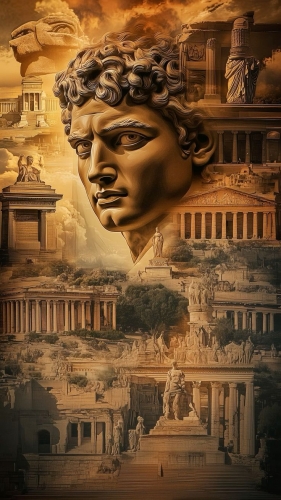
On ne sortira pas de ces apories si on pose comme postulat l'existence d'un seul et unique mode de perception et d'interprétation, de fait tributaire de la valeur que l'on accorde à des traditions religieuses. Pour un chrétien, que la Vierge lui apparaisse soudainement fait partie des choses possibles. D'innombrables cas de cette espèce en attestent la réalité. En revanche, le païen, qui vivait en adéquation constante, dans sa vie quotidienne ou dans ses actions politiques, avec les dieux de la cité, aurait bien été surpris si Zeus lui fût apparu au détour d'un chemin, bien qu'une telle situation ne fût pas rare dans les mythes.
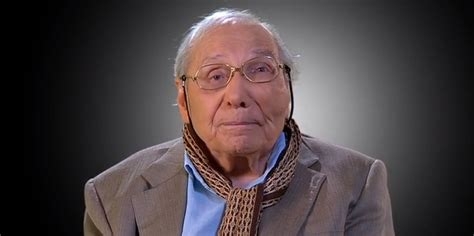
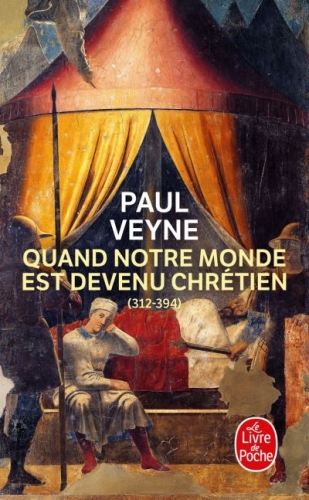
Paul Veyne s'est demandé si les Anciens « croyaient » à leurs mythes. C'est en fait une question qui n'appartient qu'à un monde où la « foi » est devenue le fondement du lien religieux. Les païens n'avaient pas la « foi » (qui est une adhésion toute subjective), mais considéraient que le monde, qui était bien fait, avait été compartimenté en plusieurs domaines, et que les dieux avaient le leur, comme les hommes, ou les animaux, et que, parfois, il pouvait y avoir des passerelles. Mais ce cadre était pour ainsi dire « objectif », et tenait le cosmos, à la suite de quoi les rites étaient bien utiles pour cimenter le tout.
Il se peut en outre que les quatre Evangiles, pour ne pas parler de l’Ancien Testament, qui, somme toute, appartient à la même catégorie littéraire, soit le prototype de tout roman moderne. La fiction contemporaine, dont l’on peut dater la naissance au 12ème siècle, avec les récits de la « matière de Bretagne », passe conventionnellement pour transcrire la réalité (qu’elle soit « réaliste », ou « fantastique », l’essentiel étant qu’elle soit « vraisemblable », c’est-à-dire respectant les codes du genre), et ce, à partir d’un protocole psychologique de lecture, d’un « pacte », selon lesquels il va de soi, durant le procès de lecture, et même après, comme une traînée atmosphérique, que ce qui est raconté est « vrai ». Quand on lit un roman de Chrétien de Troyes, les fées sont aussi chargées de réalité que la locomotive de La Bête humaine, de Zola. La prise de distance critique relève d’une autre dimension de l’existence, comme le monde profane est séparé du monde de la sacralité. Le roman est du « mentir-vrai ». Il arrive même que les faits racontés émeuvent davantage que les faits vécus dans la vie vernaculaire. Julien Sorel est plus vivant que mon voisin.
Or, tout se passe comme si les Evangiles proposaient ce genre de « pacte ». On présente comme une « preuve » de la résurrection du Christ, non seulement le témoignage de femmes, mais aussi, entre autres, le fait que Thomas, le sceptique, soit convaincu (et nous avec) de la réalité christique par l’acte de toucher les plaies de Jésus. Le croyant naïf se satisfait de cette démonstration, et l’Église aussi, en l’érigeant comme l’archétype de l’attestation indiscutable, témoignage pourtant qui ne dépasse pas les bornes de ce qui est raconté-lu, de la « legenda ». Il aurait fallu un témoignage contemporain qui ne fût pas celui d’un chrétien. Et encore ! Tous les historiens actuels d’un temps aussi reculés (et même plus proche de nous) savent combien il est difficile de « prouver » la réalité d’un fait, et même chez les meilleurs historiens de ces époques, comme Tacite, Suétone etc. Ce n’est qu’en recoupant les témoignages que l’on peut donner quelque crédit à une assertion. Bref, le croyant fait du bovarysme, en accordant pleinement, avec tout son coeur, la confiance à un récit qui n’a aucune valeur historique.
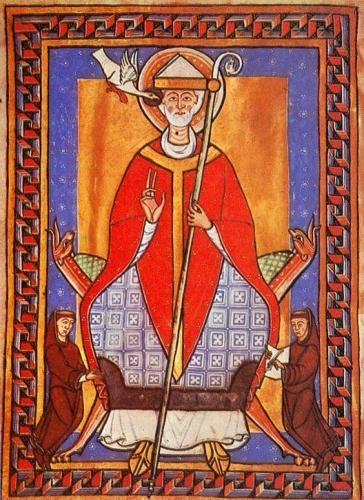
Le christianisme, néanmoins, a pu bénéficier d’un doute favorable, parce qu’il est une religion de l’Histoire, et qu’il a appuyé son eschatologie et ses révolutions internes (par exemple, le césaropapisme, ou bien le papisme de Grégoire VII - icône, ci-dessus), sur l’Histoire des hommes. Dans les Evangiles, d’ailleurs, combien de fois se soucie-t-on d’inscrire la geste de Jésus dans la réalité de la société juive de l’époque ! La religion du Christ est une spiritualité qui ne peut que reposer sur des faits qui ne reviennent jamais. Ce qui est fait, est fait. C’est une force, mais aussi une faiblesse, si ces « faits » sont mis en doute.
Mais quand les sciences du temps long, le naturalisme, la zoologie, la paléontologie, la géologie, les sciences de la préhistoire et de la longue durée, au 19ème siècle, se sont imposées, il y eut un conflit violent entre cette vision diachronique de l’évolution des espèces, de la nature, et ce qui est proposé dans la Bible, surtout vétérotestamentaire. En reculant indéfiniment l’âge du monde, et l’apparition de l’homme, on mit en cause les « vérités » bibliques. L’Église anglicane, notamment par la voix de W. Buckland, tenta de faire la part du diable, en récupérant certaines découvertes, comme les fossiles d’animaux plus ou moins géants, enfouis dans les strates profondes de la terre, en affirmant qu’il s’agissait de bêtes noyées par le Déluge. Mais la Genèse ne pouvait être inscrite dans le grand Récit positiviste de la science de la Terre et des espèces. Le singe taquinait Adam et Eve.
Le christianisme, en prétendant être en adéquation avec l’histoire positive, refusait le mythe, contrairement au paganisme. Pour lui, le mythe, la « fable », le « mythos », c’est du mensonge. Qu’Europe soit enlevée par Zeus transformé en Taureau blanc, c’est une fabulation. Qu’Adam et Eve ait croqué le fruit de l’arbre de la connaissance du Bien et du Mal, et que le Serpent leur ait suggéré de devenir des dieux, c’est ce qui arriva vraiment. Que Prométhée ait volé le feu à Zeus, et qu’il en ait été puni en étant attaché au mont Caucase, son foie dévoré éternellement par un vautour, c’est de la fable d’ivrogne.

Le mythe, faut-il le rappeler, est un récit (mythos) expliquant pourquoi les choses sont comme cela. En quelque sorte, il fait concurrence à la démonstration scientifique, mais en se déroulant sur un autre mode, celui de l’imaginaire. Il n’en est pas moins aussi efficace. Les hommes, durant un temps immense, peut-être 99 % de leur existence en tant qu’hommes, ont construit leur vie sur des visions mythiques. Ils le font encore. Mais ces mythes, pour autant qu’ils donnaient du sens aux actions, à la vie, se situaient « in illo tempore », en ce temps-là, comme on dit dans les contes. Ils étaient « vrais », mais en même temps, ils appartenaient à une dimension qui était celle des dieux, ou à un âge où ceux-ci étaient très présents.
En refusant la légitimité du mythe, en alléguant une véracité historique pleinement qu’il ne pouvait avoir, le christianisme s’est condamné à entrer violemment et frontalement en conflit avec les sciences du temps. Il n’allait pas en sortir indemne. En revanche, le paganisme, qui a toujours distingué des ordres innombrables de réalité, peut gérer des contradictions, qui n’en sont pas, car elles relèvent de la multiplicité des états d’être. L’unilatéralité, l’intolérance, la réduction du champ d’interprétation de l’histoire humaine ou naturelle, qui marquent le judaïsme et ses avatars, les condamnent au sort du chêne orgueilleux et rigide brisé par la tempête, tandis que le roseau plie, mais ne rompt pas.
12:11 Publié dans Traditions | Lien permanent | Commentaires (0) | Tags : traditions, religion, christianisme, paganisme, mythologie |  |
|  del.icio.us |
del.icio.us |  |
|  Digg |
Digg | ![]() Facebook
Facebook
samedi, 07 juin 2025
Genèse de la pensée unique
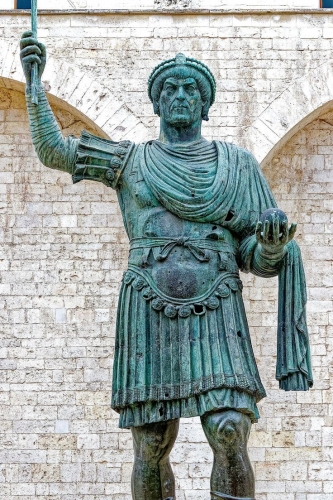
Genèse de la pensée unique
Claude Bourrinet
« Il n’y eut plus de rire pour personne » (Procope de Césarée).
Polymnia Athanassiadi, professeur d’histoire ancienne à l’Université d’Athènes, spécialiste du platonisme tardif (le néoplatonisme) avait bousculé quelques certitudes, dans son ouvrage publié en 2006, « la lutte pour l’orthodoxie dans le platonisme tardif », en montrant que les structures de pensée dans l’Empire gréco-romain, dont l’aboutissement serait la suppression de toute possibilité discursive au sein de l’élite intellectuelle, étaient analogues chez les philosophes « païens » et les théologiens chrétiens. Cette osmose, à laquelle il était impossible d’échapper, se retrouve au niveau des structures politiques et administratives, avant et après Constantin. L’État « païen », selon Mme Athanassiadi, prépare l’État chrétien, et le contrôle total de la société, des corps et des esprits. C’est la thèse contenue dans une étude éditée en 2010, Vers la pensée unique. La montée de l’intolérance dans l’Antiquité tardive.
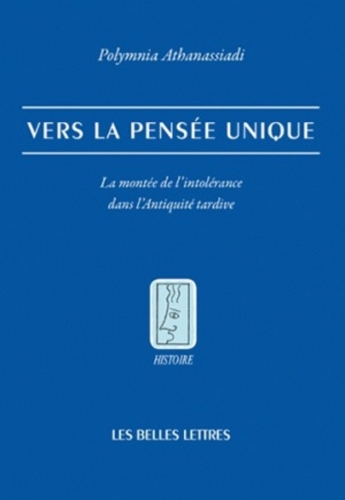
Un basculement identitaire
L’Antiquité tardive est l’un de ces concepts historiques relativement flous, que l’on adopte, parce que c’est pratique, mais qui peuvent susciter des polémiques farouches, justement parce qu’ils dissimulent des pièges heuristiques entraînant des interprétations diamétralement apposées. Nous verrons que l’un des intérêts de cette recherche est d’avoir mis au jour les engagements singulièrement contemporains qui sous tendent des analyses apparemment « scientifiques ».
La première difficulté réside dans la délimitation de la période. Le passage aurait eu lieu sous le règne de Marc Aurèle, au IIe siècle, et cette localisation temporelle ne soulève aucun désaccord. En revanche, le consensus n’existe plus si l’on porte le point d’achoppement (en oubliant la date artificielle de 476) à Mahomet, au VIIe siècle, c’est-à-dire à l’aboutissement désastreux d’une longue série d’invasions, ou aux règnes d’Haroun al-Rachid et de Charlemagne, au IXe siècle, voire jusqu’en l’An Mil. Ce qui est en jeu dans ce débat, c’est l’accent mis sur la rupture ou sur la continuité.
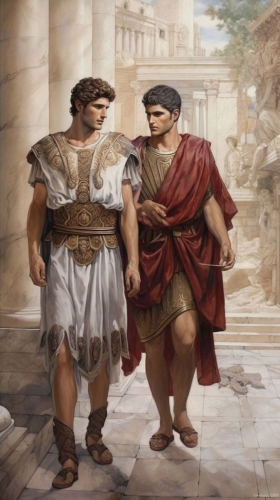
Le fait indubitable est néanmoins que la religion, lors de ce processus qui se déroule quand même sur plusieurs siècles, est devenue le « trait identitaire de l’individu ». L’autre constat est qu’il s’éploie dans un monde de plus en plus globalisé – l’orbis romanus – dans un empire qui n’est plus « romain », et qui est devenu méditerranéen, voire davantage. Une révolution profonde s’y est produite, accélérées par les crises, et creusant ses mines jusqu’au cœur d’un individu de plus en plus angoissé et cherchant son salut au-delà du monde. La civilisation de la cité, qui rattachait l’esprit et le corps aux réalités sublunaires, a été remplacée par une vaste entité centralisée, dont la tête, Constantinople ou Damas, le Basileus ou le calife, un Dieu unique, contrôle tout. Tout ce qui faisait la joie de vivre, la culture, les promenades philosophiques, les spectacles, les plaisirs, est devenu tentation démoniaque. La terre semble avoir été recouverte, en même temps que par les basiliques, les minarets, les prédicateurs, les missionnaires, par un voile de mélancolie et un frisson de peur. Une voix à l’unisson soude les masses uniformisées, là où, jadis, la polyphonie des cultes et la polydoxie des sectes assuraient des parcours existentiels différenciés. Une monodoxie impérieuse, à base de théologie et de règlements tatillons, s’est substituée à la science (épistémé) du sage, en contredisant Platon pour qui la doxa, l’opinion, était la source de l’erreur.
Désormais, il ne suffit pas de « croire », si tant est qu’une telle posture religieuse ait eu sa place dans le sacré dit « païen » : il faut montrer que l’on croit. Le paradigme de l’appartenance politico-sociale est complètement transformé. La terreur théologique n’a plus de limites.
Comme le montre Polymnia Athanassiadi, cet aspect déplaisant a été, avec d’autres, occulté par une certaine historiographie, d’origine anglo-saxonne.
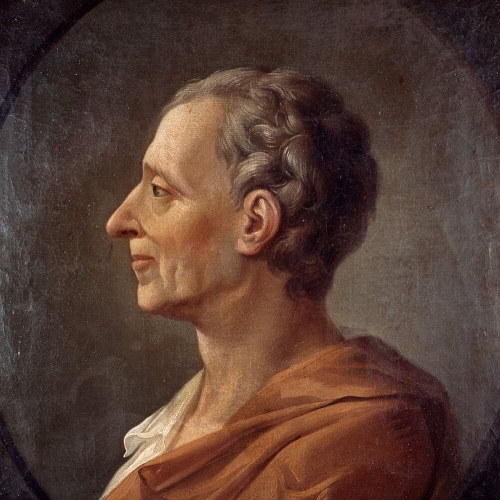
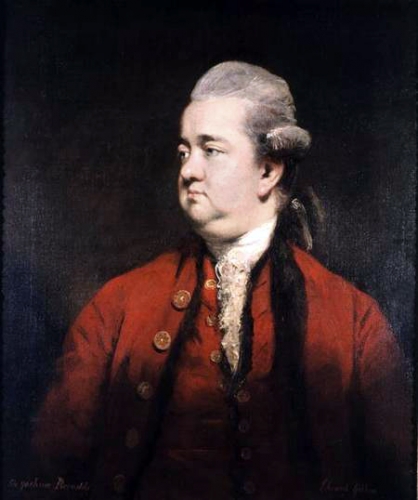
Contre l’histoire politiquement correcte
La notion et l’expression d’« Antiquité tardive » ont été forgées principalement pour se dégager d’un outillage sémantique légué par les idéologies nationales et religieuses. Des Lumières au positivisme laïciste du XIXe siècle, la polémique concernait la question religieuse, le rapport avec la laïcité, le combat contre l’Église, le triomphe de la raison scientifique et technique. Le « récit » de la chute de l’Empire romain s’inspirait des grandes lignes tracées par Montesquieu et Gibbon, et mettait l’accent sur la décadence, sur la catastrophe pour la civilisation qu’avait provoquée la perte des richesses antiques. Le christianisme pouvait, de ce fait, paraître comme un facteur dissolvant. D’un autre côté, ses apologistes, comme Chateaubriand, tout en ne niant pas le caractère violent du conflit entre le paganisme et le christianisme, ont souligné la modernité de ce dernier, et par quelles valeurs humaines il remplaçait celles de l’ancien monde, devenu obsolètes.
C’est surtout contre l’interprétation de Spengler que s’est élevée la nouvelle historiographie de la fin des années Soixante. Pour le savant allemand, les civilisations subissent une évolution biologique qui les porte de la naissance à la mort, en passant par la maturité et la vieillesse. On abandonna ce schéma cyclique pour adopter la conception linéaire du temps historique, tout en insistant sur l’absence de rupture, au profit de l’idée optimiste de mutation. L’influence de Fernand Braudel, théoricien de la longue durée historique et de l’asynchronie des changements, fut déterminante.
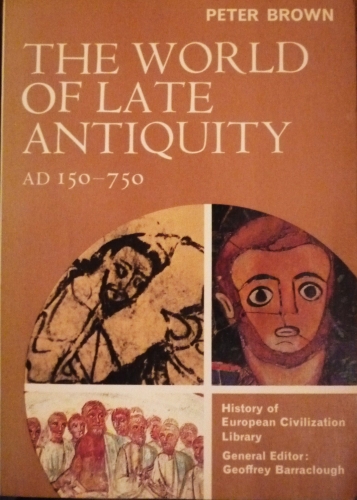 L’école anglo-saxonne s’illustra particulièrement. Le maître en fut d’abord Peter Brown avec son World of late Antiquity : from Marcus Aurelius to Muhammad (1971). Mme Athanassiadi n’est pas tendre avec ce savant. Elle insiste par exemple sur l’absence de structure de l’ouvrage, ce qui ne serait pas grave s’il ne s’agissait d’une étude à vocation scientifique, et sur le manque de rigueur des cent trente illustrations l’accompagnant, souvent sorties de leur contexte. Quoi qu’il en soit, le gourou de la nouvelle école tardo-antique étayait une vision optimiste de cette période, perçue comme un âge d’adaptation.
L’école anglo-saxonne s’illustra particulièrement. Le maître en fut d’abord Peter Brown avec son World of late Antiquity : from Marcus Aurelius to Muhammad (1971). Mme Athanassiadi n’est pas tendre avec ce savant. Elle insiste par exemple sur l’absence de structure de l’ouvrage, ce qui ne serait pas grave s’il ne s’agissait d’une étude à vocation scientifique, et sur le manque de rigueur des cent trente illustrations l’accompagnant, souvent sorties de leur contexte. Quoi qu’il en soit, le gourou de la nouvelle école tardo-antique étayait une vision optimiste de cette période, perçue comme un âge d’adaptation.
Il fut suivi. En 1997, Thomas Hägg, publia la revue Symbolae Osbenses, qui privilégie une approche irénique. On vide notamment le terme le terme xenos (« étranger ») de son contenu tragique « pour le rattacher au concept d’une terre nouvelle, la kainê ktisis, ailleurs intérieur rayonnant d’espoir ». Ce n’est pas un hasard si l’inspirateur de cette historiographique révisionniste est le savant italien Santo Mazzarino, l’un des forgerons de la notion de démocratisation de la culture.
La méthode consiste en l’occurrence à supprimer les oppositions comme celles entre l’élite et la masse, la haute et la basse culture. D’autre part, le « saint » devient l’emblème de la nouvelle société. En renonçant à l’existence mondaine, il accède à un statut surhumain, un guide, un sauveur, un intermédiaire entre le peuple et le pouvoir, entre l’humain et le divin. Il est le symbole d’un monde qui parvient à se maîtriser, qui se délivre des entraves du passé.
Polymnia Athanassiadi rappelle les influences qui ont pu marquer cette conception positive : elle a été élaborée durant une époque où la détente d’après-guerre devenait possible, où l’individualisme se répandait, avec l’hédonisme qui l’accompagne inévitablement, où le pacifisme devient, à la fin années soixante, la pensée obligée de l’élite. De ce fait, les conflits sont minimisés.
Un peu plus tard, en 1999, un tome collectif a vu le jour: Late Antiquity. A Guide to the postclassical World. Y ont contribué P. Brown et deux autres savants princetoniens : Glen Bowersock et Oleg Grabar, pour qui le véritable héritier de l’empire romain est Haroun al-Rachid. L’espace tardo-antique est porté jusqu’à la Chine, et on met l’accent sur vie quotidienne. Il n’y a plus de hiérarchie. Les dimensions religieuse, artistique politique, profane, l’écologique, la sexuelle, les femmes, le mariage, le divorce, la nudité – mais pas les eunuques, sont placées sur le même plan. La notion de crise est absente, aucune allusion aux intégrismes n’est faite, la pauvreté grandissante n’est pas évoquée, ni la violence endémique, bref, on a une « image d’une Antiquité tardive qui correspond à une vision politiquement correcte ».
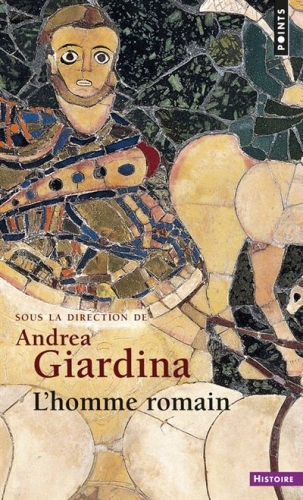
La réaction a vu le jour en Italie. Cette même année 1999, Andrea Giardina, dans un article de la revue Studi Storici, « Esplosione di tardoantico », a contesté « la vision optimiste d’une Antiquité tardive longue et paisible, multiculturelle et pluridisciplinaire ». Il a expliqué cette perception déformée par plusieurs causes :
- la rhétorique de la modernité,
- l’impérialisme linguistique de l’anglais dans le monde contemporain (« club anglo-saxon »),
- une approche méthodologique défectueuse (lecture hâtive).
Et, finalement, il conseille de réorienter vers l’étude des institutions administratives et des structures socio-économiques.
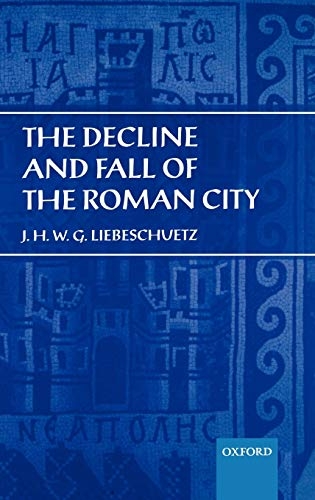 Dans la même optique, tout en dénonçant le relativisme de l’école anglo-saxonne, Wolf Liebeschuetz, (Decline and Fall of the Roman City, 2001 et 2005), analyse le passage de la cité-État à l’État universel. Il insiste sur la notion de déclin, sur la disparition du genre de vie avec institutions administratives et culturelles légués par génie hellénistique, et il s’interroge sur la continuité entre la Cité romaine et ses successeurs (Islam et Europe occidentale). Quant à Bryan Ward-Perkins, in The fall of Rome and the End of Civilization, il souligne la violence des invasions barbares, s’attarde sur le trauma de la dissolution de l’Empire. Pour lui, le déclin est le résultat de la chute.
Dans la même optique, tout en dénonçant le relativisme de l’école anglo-saxonne, Wolf Liebeschuetz, (Decline and Fall of the Roman City, 2001 et 2005), analyse le passage de la cité-État à l’État universel. Il insiste sur la notion de déclin, sur la disparition du genre de vie avec institutions administratives et culturelles légués par génie hellénistique, et il s’interroge sur la continuité entre la Cité romaine et ses successeurs (Islam et Europe occidentale). Quant à Bryan Ward-Perkins, in The fall of Rome and the End of Civilization, il souligne la violence des invasions barbares, s’attarde sur le trauma de la dissolution de l’Empire. Pour lui, le déclin est le résultat de la chute.
On voit que l’érudition peut cacher des questions hautement polémiques et singulièrement contemporaines.
Polymnia Athanassiadi prend parti, parfois avec un mordant plaisant, mais nul n’hésitera à se rendre compte combien les caractéristiques qui ont marqué l’Antiquité tardive concernent de façon extraordinaire notre propre monde. Polymnia Athanassiadi rappelle, en s’attardant sur la dimension politico-juridique, quelles ont été les circonstances de la victoire de la « pensée unique » (expression ô combien contemporaine !). Mais avant tout, quelle a été la force du christianisme?
La révolution culturelle chrétienne
Le christianisme avait plusieurs atouts à sa disposition, dont certains complètement inédits dans la société païenne.
D’abord, il hérite d’une société où la violence est devenue banale, du fait de la centralisation politico-administrative, et de ce qu’on peut nommer la culture de l’amphithéâtre.
Dès le IIe siècle, en Anatolie, le martyr apparaît comme la « couronne rouge » de la sainteté octroyée par le sens donné. Les amateurs sont mus par une vertu grecque, la philotimia, l’« amour de l’honneur ». C’est le seul point commun avec l’hellénisme, car rien ne répugne plus aux esprits de l’époque que de mourir pour des convictions religieuses, dans la mesure où toutes sont acceptées comme telles. Aussi bien cette posture est-elle peu comprise, et même méprisée. L’excès rhétorique par lequel l’Église en fait la promotion en souligne la théâtralité. Marc Aurèle y voit de la déraison, et l’indice d’une opposition répréhensible à la société. Et, pour une société qui recherche la joie de vivre, cette pulsion de mort paraît bien suspecte.
Retenons donc cette aisance dans l’art de la propagande – comme chacun sait, le nombre de martyrs n’a pas été si élevé qu’on l’a prétendu – et cette attirance morbide qui peut aller jusqu’au fond des cœurs. Le culte des morts et l’adoration des reliques sont en vogue dès le IIIe siècle.
Le leitmotiv de la résurrection des corps et du jugement dernier est encore une manière d’habituer à l’idée de la mort. Le scepticisme régnant avant IIIe siècle va laisser place à une certitude que l’on trouve par exemple chez Tertullien, pour qui l’absurde est l’indice même de la vérité (De carne christi, 5).
L’irrationalisme, dont le christianisme n’est pas seul porteur, encouragé par les religions orientales, s’empare donc des esprits, et rend toute manifestation surnaturelle plausible. Il faut ajouter la croyance aux démons, partagée par tous.
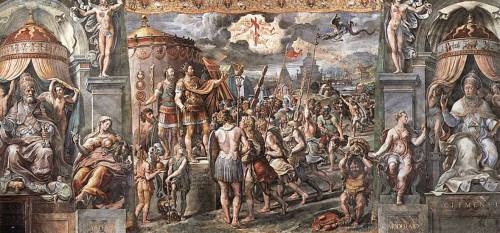
Mais c’est surtout dans l’offensive, dans l’agression, que l’Église va se trouver particulièrement redoutable. En effet, de victimes, les chrétiens, après l’Édit de Milan, en 313, vont devenir des agents de persécution. Des temples et des synagogues seront détruits, des livres brûlés.
Peut-être l’attitude qui tranche le plus avec le comportement des Anciens est-il le prosélytisme, la volonté non seulement de convertir chaque individu, mais aussi l’ensemble de la société, de façon à modeler une communauté soudée dans une unicité de conviction. Certes, les écoles philosophiques cherchaient à persuader. Mais, outre que leur zèle n’allait pas jusqu’à harceler le monde, elles représentaient des sortes d’options existentielles dans le grand marché du bonheur, dont la vocation n’était pas de conquérir le pouvoir sur les esprits.
Plotin, l’un des derniers champions du rationalisme hellène, s’est élevé violemment contre cette pratique visant à arraisonner les personnes. On vivait alors de plus en plus dans la peur, dans la terreur de ne pas être sauvé. L’art de dramatiser l’enjeu, de le charger de toute la subjectivité de l’angoisse et du bon choix à faire, a rendu le christianisme particulièrement efficace. Comme le fait remarquer Mme Athanassiadi, la grande césure du moi, n’est plus entre le corps et l’âme, mais entre le moi pécheur et le moi sauvé. Le croyant est sollicité, sommé de s’engager, déchiré d’abord, avant Constantin, entre l’État et l’Église, puis de façon permanente entre la vie temporelle et la vie éternelle.
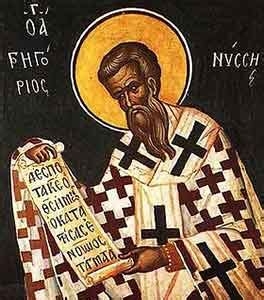
Cette tension sera attisée par la multitude d’hérésie et par les conflits doctrinaux, extrêmement violents. Les schismes entraînent excommunications, persécutions, batailles physiques. Des polémiques métaphysiques absconses toucheront les plus basses couches de la société, comme le décrit Grégoire de Nysse (ill.) dans une page célèbre très amusante. Les Conciles, notamment ceux de Nicée et de Chalcédoine, seront des prétextes à l’expression la plus hyperbolique du chantage, des pressions de toutes sortes, d’agressivité et de brutalité. Tout cela, Ramsay MacMullen le décrit fort bien dans son excellent livre, Christianisme et paganisme du IVe au VIIIe siècle.
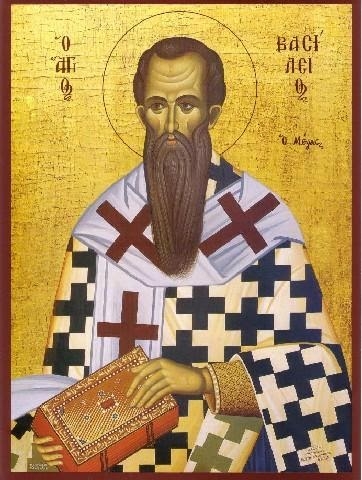
Mais c’est surtout l’arme de l’État qui va précipiter la victoire finale contre l’ancien monde. Après Constantin, et surtout avec Théodose et ses successeurs, les conversions forcées vont être la règle. À propos de Justinien, Procope écrit : « Dans son zèle pour réunir l’humanité entière dans une même foi quant au Christ, il faisait périr tout dissident de manière insensée » (in 118). Des lois discriminatoires seront décrétées. Même le passé est éradiqué. On efface la mémoire, on sélectionne les ouvrages, l’index des œuvres interdites est publié, Basile de Césarée (vers 360) (ill.) établit une liste d’auteurs acceptables, on jette même l’anathème sur les hérétiques de l’avenir !
Construction d’une pensée unique
L’interrogation de Polemnia Athanassiadi est celle-ci : comment est-on passé de la polydoxie propre à l’univers hellénistique, à la monodoxie ? Comment un monde à l’échelle humaine est-il devenu un monde voué à la gloire d’un Dieu unique ?
Son fil conducteur est la notion d’intolérance. Mot piégé par excellence, et qui draine pas mal de malentendus. Il n’a rien de commun par exemple avec l’acception commune qui s’impose maintenant, et dont le fondement est cette indifférence profonde pour tout ce qui est un peu grave et profond, voire cette insipide légèreté contemporaine qui fuit les tragiques conséquences de la politique ou de la foi religieuse. Serait intolérant au fond celui qui prendrait au sérieux, avec tous les refus impliqués, une option spirituelle ou existentielle, à l’exclusion d’une autre. Rien de plus conformiste que la démocratie de masse !
Dans le domaine religieux, le paganisme était très généreux, et accueillait sans hésiter toutes les divinités qu’il lui semblait utile de reconnaître, et même davantage, dans l’ignorance où l’on était du degré de cette « utilité » et de la multiplicité des dieux. C’est pourquoi, à Rome, on rendait un culte au dieu inconnu. Les païens n’ont jamais compris ce que pouvait être un dieu « jaloux », et tout autant leur théologie que leur anthropologie les en empêchaient. En revanche, l’attitude, le comportement, le mode de vie impliquaient une adhésion ostentatoire à la communauté. Les cultes relevaient de la vie familiale, associative, ou des convictions individuelles : chacun optait pour un ou des dieux qui lui convenaient pour des raisons diverses. Pourtant les cultes publics concernant les divinités poliades ou l’empereur étaient des actes, certes, de piété, mais ne mettant en scène souvent que des magistrats ou des citoyens choisis. Ils étaient surtout des marques de patriotisme. À ce titre, ne pas y participer lorsqu’on était requis de le faire pouvait être considéré comme un signe d’incivisme, de mauvaise volonté, voire de révolte.
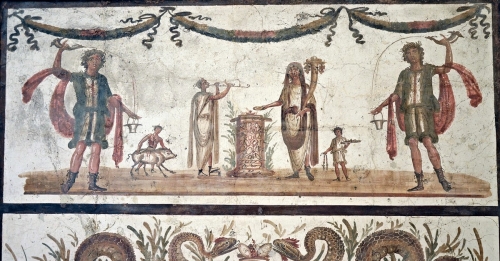
En grec, il n’existe aucun terme pour désigner la notion de tolérance religieuse. En latin, l’intolérance : intolerentia, est cette « impatience », « insolence », « impudence » que provoque la présence face à un corps étranger. Ce peut être le cas pour les païens face à ce groupe chrétien étrange, énigmatique, considéré comme répugnant, ou l’inverse, pour des chrétiens qui voient le paganisme comme l’expression d’un univers démoniaque. Toutefois, ce qui relevait des pratiques va s’instiller jusqu’au fond des cœurs, et va s’imprégner de toute la puissance subjective des convictions intimes.
En effet, il serait faux de prétendre que les païens fussent ignorants de ce qu’une religion peut présenter d’intériorité. On ne s’en faisait pas gloire, contrairement au christianisme, qui exigeait une profession de foi, c’est-à-dire un témoignage motivé, authentique et sincère de son amour pour le dieu unique. Par voie de conséquence, l’absence de conviction dûment prouvée, du moins exhibée, était rédhibitoire pour les chrétiens. On ne se contentait pas de remplir son devoir particulier, mais on voulait que chacun fût sur la droite voie de la « vérité ». Le processus de diabolisation de l’autre fut donc enclenché par les progrès de la subjectivisation du lien religieux, intensifiée par la « persécution ». Au lieu d’un univers pluriel, on en eut un, uniformisé bien que profondément dualiste. La haine fut érigée en vertu théologique.
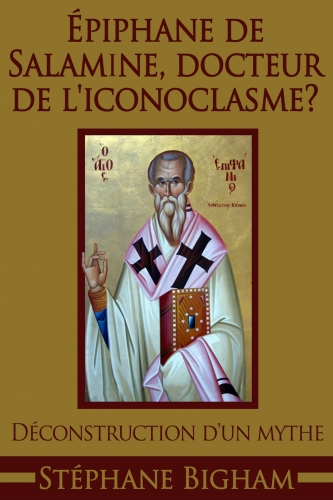 Comment l’avait décrit Polymnia Athanassiadi dans son étude de 2006 sur l’orthodoxie à cette période, la première tâche fut de fixer le canon, et, par voie de conséquence d’identifier ceux qui s’en écartaient, à savoir les hérétiques. Cette classification s’élabora au fil du temps, d’Eusèbe de Césarée, qui procéda à une réécriture de l’Histoire en la christianisant, jusqu’à Jean Damas, en passant par l’anonyme Eulochos, puis Épiphane de Salamine.
Comment l’avait décrit Polymnia Athanassiadi dans son étude de 2006 sur l’orthodoxie à cette période, la première tâche fut de fixer le canon, et, par voie de conséquence d’identifier ceux qui s’en écartaient, à savoir les hérétiques. Cette classification s’élabora au fil du temps, d’Eusèbe de Césarée, qui procéda à une réécriture de l’Histoire en la christianisant, jusqu’à Jean Damas, en passant par l’anonyme Eulochos, puis Épiphane de Salamine.
Néanmoins, l’originalité de l’étude de 2010 consacrée à l’évolution de la société tardo-antique vers la « pensée unique » provient de la mise en parallèle de la politique religieuse menée par l’empire à partir du IIIe siècle avec celle qui prévalut à partir de Constantin. Mme Athanassiadi souligne l’antériorité de l’empire « païen » dans l’installation d’une théocratie, d’une religion d’État. En fait, selon elle, il existe une logique historique liant Dèce, Aurélien, Constantin, Constance, Julien, puis Théodose et Justinien.
L’édit de Dèce, en 250, est motivé par une crise qui faillit anéantir l’Empire. La pax deorum semblait nécessaire pour restaurer l’État. Aussi fut-il décrété que tous les citoyens (dont le nombre fut élargi à l’ensemble des hommes libres en 212 par Caracalla), sauf les Juifs, devaient offrir un sacrifice aux dieux, afin de rétablir l’unité de foi, le consensus omnium.
Deux autres persécutions eurent lieu, dont les plus notoires furent celles en 257 de Valérien, en 303 de Dioclétien, et en 312, en Orient, de Maximin. Entre temps, Aurélien (270 – 275) conçut une sorte de pyramide théocratique, à base polythéiste, dont le sommet était occupé par la divinité solaire.
Notons que Julien, le restaurateur du paganisme d’État, est mis sur le même plan que Constantin et que ses successeurs chrétien. En voulant créer une « Église païenne », en se mêlant de théologie, en édictant des règles de piété et de moralité, en excluant épicuriens, sceptiques et cyniques, il a consolidé la cohérence théologico-autoritaire de l’Empire. Il assumait de ce fait la charge sacrale dont l’empereur était dépositaire, singulièrement la dynastie dont il était l’héritier et le continuateur. Il avait conscience d’appartenir à une famille, fondée par Claude le Gothique (268 – 270), selon lui dépositaire d’une mission de jonction entre l’ici-bas et le divin.
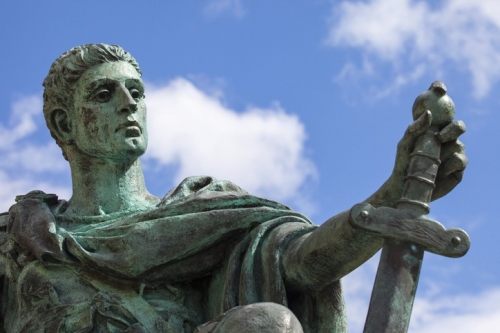
Néanmoins, Constantin, en 313, lorsqu’il proclama l’Édit de Milan, ne saisit probablement pas « toute la logique exclusiviste du christianisme ». Était-il en mesure de choisir ? Selon une approximation quantitative, les chrétiens étaient loin de constituer la majorité de la population. Cependant, ils présentaient des atouts non négligeables pour un État soucieux de resserrer son emprise sur la société. D’abord, son organisation ecclésiale plaquait sa logique administrative sur celle de l’empire. Elle avait un caractère universel, centralisé. De façon pragmatique, Constantin s’en servit pour tenter de mettre fin aux dissensions internes génératrices de guerre civile, notamment en comblant de privilèges la hiérarchie ecclésiastique. Un autre instrument fut utilisé par lui, en 325, à l’occasion du concile de Nicée. En ayant le dernier mot théologique, il manifesta la subordination de la religion à la politique.
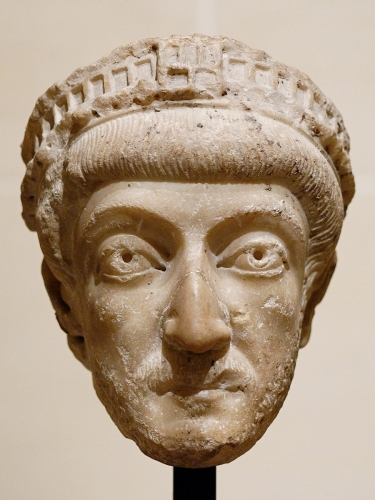
Mais ce fut Théodose qui lança l’orthodoxie « comme concept et programme politique ». Constantin avait essayé de maintenir un équilibre, certes parfois de mauvaise foi, entre l’ancienne religion et la nouvelle. Pour Théodose, désormais, tout ce qui s’oppose à la foi catholique (la vera religio), hérésie, paganisme, judaïsme, est présumé superstitio, et, de ce fait, condamné. L’appareil d’État est doublé par les évêques (« surveillants » !), la répression s’accroît. À partir de ce moment, toute critique religieuse devient crime de lèse-majesté.
Quant au code justinien, il défend toute discussion relative au dogme, mettant fin à la tradition discursive de la tradition hellénique. On élabore des dossiers de citations à l’occasion de joutes théologiques (Cyrille d’Alexandrie, Théodoret de Cyr, Léon de Rome, Sévère d’Antioche), des chaînes d’arguments (catenae) qui interdisent toute improvisation, mais qui sont sortis de leur contexte, déformés, et, en pratique, se réduisent à de la propagande qu’on assène à l’adversaire comme des coups de massue.
La culture devient une, l’élite partage des références communes avec le peuple. Non seulement celui-ci s’entiche de métaphysique abstruse, mais les hautes classes se passionnent pour les florilèges, les vies de saints et les rumeurs les plus irrationnelles. L’humilité devant le dogme est la seule attitude intellectuelle possible.
Rares sont ceux, comme Procope de Césarée, comme les tenants de l’apophatisme (Damascius, Pseudo-Denys, Évagre le Pontique, Psellus, Pléthon), ou comme les ascètes, les ermites, et les mystiques en marge, capables de résister à la pression du groupe et de l’État.
Mise en perspective
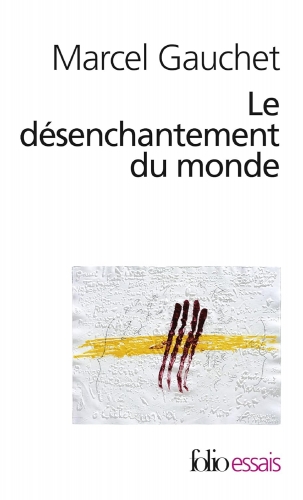 Il faudrait sans doute nuancer l’analogie, la solution de continuité, entre l’entreprise politico-religieuse d’encadrement de la société engagée par l’État païen et celle conduite par l’État chrétien. Non que, dans les grandes lignes, ils ne soient le produit de la refonte de l’« établissement » humain initiée dès le déplacement axiologique engendré par l’émergence de l’État universel, période étudiée, à la suite de Karl Jaspers, par Marcel Gauchet, dans son ouvrage, Le désenchantement du monde. Le caractère radical de l’arraisonnement de la société par l’État, sa mobilisation permanente en même temps que la mise à contribution des forces transcendantes, étaient certes contenus dans le sens pris par l’Histoire, mais il est certain que la spécificité du christianisme, issu d’une religion née dans les interstices de l’Occident et de l’Orient, vouée à une intériorisation et à une subjectivité exacerbées, dominée par un Dieu tout puissant, infini, dont la manifestation, incarnée bureaucratiquement par un organisme omniprésent, missionnaire, agressif et aguerri, avait une dimension historique, son individualisme et son pathos déséquilibré, la béance entre le très-haut et l’ici-bas, dans laquelle pouvait s’engouffrer toutes les potentialités humaines, dont les pires, était la forme adéquate pour que s’installât un appareil particulièrement soucieux de solliciter de près les corps et les âmes dans une logique totalitaire.
Il faudrait sans doute nuancer l’analogie, la solution de continuité, entre l’entreprise politico-religieuse d’encadrement de la société engagée par l’État païen et celle conduite par l’État chrétien. Non que, dans les grandes lignes, ils ne soient le produit de la refonte de l’« établissement » humain initiée dès le déplacement axiologique engendré par l’émergence de l’État universel, période étudiée, à la suite de Karl Jaspers, par Marcel Gauchet, dans son ouvrage, Le désenchantement du monde. Le caractère radical de l’arraisonnement de la société par l’État, sa mobilisation permanente en même temps que la mise à contribution des forces transcendantes, étaient certes contenus dans le sens pris par l’Histoire, mais il est certain que la spécificité du christianisme, issu d’une religion née dans les interstices de l’Occident et de l’Orient, vouée à une intériorisation et à une subjectivité exacerbées, dominée par un Dieu tout puissant, infini, dont la manifestation, incarnée bureaucratiquement par un organisme omniprésent, missionnaire, agressif et aguerri, avait une dimension historique, son individualisme et son pathos déséquilibré, la béance entre le très-haut et l’ici-bas, dans laquelle pouvait s’engouffrer toutes les potentialités humaines, dont les pires, était la forme adéquate pour que s’installât un appareil particulièrement soucieux de solliciter de près les corps et les âmes dans une logique totalitaire.
La question de savoir si un empire plus équilibré eût été possible, par exemple sous une forme néoplatonicienne, n’est pas vaine, en regard des empires orientaux, qui trouvèrent un équilibre, un compromis entre les réquisits religieux, et l’expression politique légitime, entre la transcendance et l’immanence. Le néoplatonisme, trop intellectuel, trop ouvert à la recherche, finalement trop aristocratique, était démuni contre la fureur plébéienne du christianisme. L’intolérance due à l’exclusivisme dogmatique ne pouvait qu’engager l’Occident dans la voie des passions idéologiques, et dans une dynamique conflictuelle qui aboutirait à un monde moderne pourvu d’une puissance destructrice inédite.
Il faudra sans doute revenir sur ces questions. Toutefois, il n’est pas inutile de s’interroger sur ce que nous sommes devenus. De plus en plus, on s’aperçoit que, loin d’être les fils de l’Athènes du Ve siècle avant le Christ, ou de la République romaine, voire de l’Empire augustéen, nous sommes dépendants en droite ligne de cette Antiquité tardive, qui nous inocula un poison dont nous ne cessons de mourir. L’Occident se doit de plonger dans son cœur, dans son âme, pour extirper ces habitus, ces réflexes si ancrés qu’ils semblent devenus naturels, et qui l’ont conduit à cette expansion mortifère qui mine la planète. Peut-être retrouverons-nous la véritable piété, la réconciliation avec le monde et avec nous-mêmes, quand nous aurons extirpé de notre être la folie, la « mania », d’exhiber la vérité, de jeter des anathèmes, de diaboliser ce qui nous est différent, de vouloir convertir, persuader ou contraindre, d’universaliser nos croyances, d’unifier les certitudes, de militariser la pensée, de réviser l’histoire, d’enrégimenter les opinions par des lois, d’imposer à tous une « pensée unique ».
13:11 Publié dans Histoire | Lien permanent | Commentaires (1) | Tags : histoire, religion, christianisme, paganisme, antiquité tardive, christianisme primitif, paganisme tardif, empire romain, bas empire, antiquité |  |
|  del.icio.us |
del.icio.us |  |
|  Digg |
Digg | ![]() Facebook
Facebook
lundi, 12 mai 2025
Fumée blanche. Et maintenant?
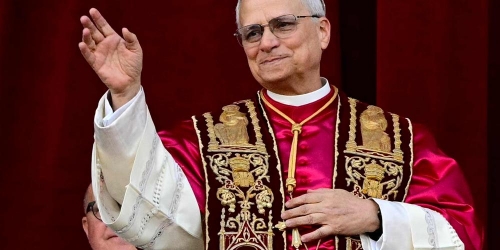
Fumée blanche. Et maintenant?
Andrea Marcigliano
Source: https://electomagazine.it/fumata-bianca-e-ora/
Le pape est là. Comme prévu, la Chaire de Pierre est restée vacante très peu de temps. La période de deuil pour François/Bergoglio, puis deux jours de scrutin. Et au quatrième tour, le nom a été annoncé.
Ce n'est pas un nom imprévu, même s'il n'était pas parmi les plus populaires avant l'élection. Mais ensuite, Washington est entrée en scène. Et Elon Musk aussi. Avec des arguments très... concrets.
Et ainsi le cardinal Prevost est devenu Léon XIV.
Évidemment, il reste encore beaucoup à comprendre sur la manière dont sera ce pontificat. Et Prevost, cardinal depuis à peine deux ans et somme toute jeune (69 ans), reste une inconnue difficile à décrypter.
Certes, Bergoglio l'avait voulu à Rome. Cependant, les premiers signes ne semblent pas indiquer qu'il soit un fidèle du pape argentin, lequel fut très souvent controversé.
Le style, tout d'abord. Complètement différent. La tenue pontificale complète, la lecture des Écritures, la bénédiction.
Aucune « familiarité » comme dans la manière de se présenter de son prédécesseur. Bien au contraire, une certaine froideur, probablement voulue.
Surtout, aucune concession à la place publique. Où la déception a semblé tangible.
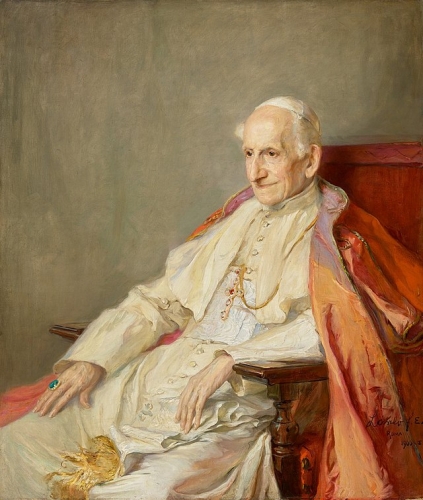
Et puis le nom. Léon XIV. Un bond en arrière, à la fin du 19ème siècle. Ni Paul, ni Jean, ni François... ni Pie ni Benoît. Léon. Comme l'auteur de l'Encyclique Rerum Novarum. Qui était, il faut le rappeler, la réponse de l’Église aux tensions sociales qui traversaient le siècle. Et une réponse sèche et dure: fermeture à toute forme de socialisme. Et, en réponse, une déclinaison particulière de la doctrine corporative.
Bien sûr, il n'est pas certain que l'évocation soit celle de Léon XIII. Car d'autres figures surgissent dans la mémoire.
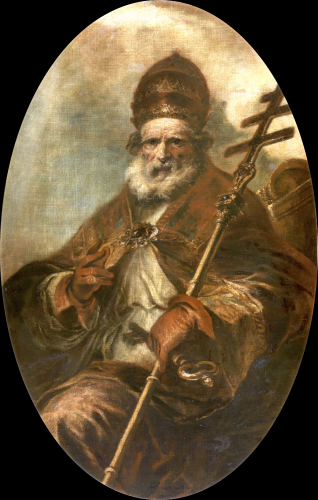
À commencer, évidemment, par Léon I, Léon le Grand, également vénéré par les orthodoxes. Qui représente la tentative de maintenir unies les Églises d’Orient et d’Occident, évitant ainsi le grand Schisme.
Une main tendue, peut-être, vers la Russie chrétienne, qui demeure encore aujourd’hui le bastion de l’orthodoxie.
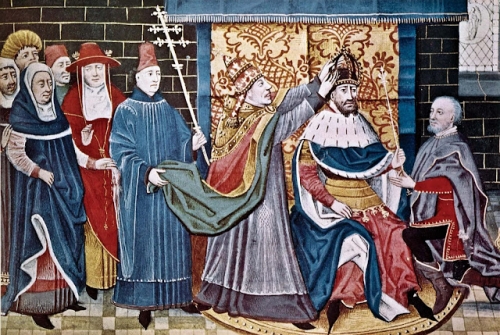
Ou encore Léon III. Qui forgea un accord avec Charlemagne. Le pape de la « realpolitik » occidentale. Ce pourrait être une référence intéressante, étant donné l’origine de Prevost et ses relations, complexes mais étroites, avec Washington.
Ce ne sont que des hypothèses, bien sûr, qui devront être vérifiées. Comme l’attitude de l’évêque Prevost à l’époque, qui aurait empêché, dit-on, des enquêtes sur des prêtres pédophiles dans sa juridiction. Une attitude, là aussi, qui doit être examinée attentivement, car elle semble témoigner de la volonté traditionnelle de l’Église de ne pas laisser d’autres pouvoirs s’immiscer dans ses affaires.
En somme, c’est moi qui juge mes prêtres coupables. Et c’est moi qui décide de leur sort. Aucune autorité ou pouvoir civil ne peut s’en mêler.
N’oublions pas que l’archevêque de Canterbury, Thomas Becket, a été assassiné sur ordre du roi précisément parce qu’il avait excommunié le souverain. Coupable d’avoir condamné un prêtre coupable de crimes sexuels. Invasion dans le domaine de l'Eglise. Donc... inacceptable.
Quoi qu'il en soit, il est encore trop tôt pour tirer des conclusions. Il ne reste qu’à attendre et voir si ce pontificat, qui pourrait durer longtemps, déplacera davantage l’axe du monde vers l’Occident. Ou s’il offrira l’occasion de rouvrir le dialogue avec Moscou.
13:39 Publié dans Actualité | Lien permanent | Commentaires (0) | Tags : léon xiv, papauté, religion, catholicisme, vatican |  |
|  del.icio.us |
del.icio.us |  |
|  Digg |
Digg | ![]() Facebook
Facebook
vendredi, 02 mai 2025
A propos de la mort de Bergoglio
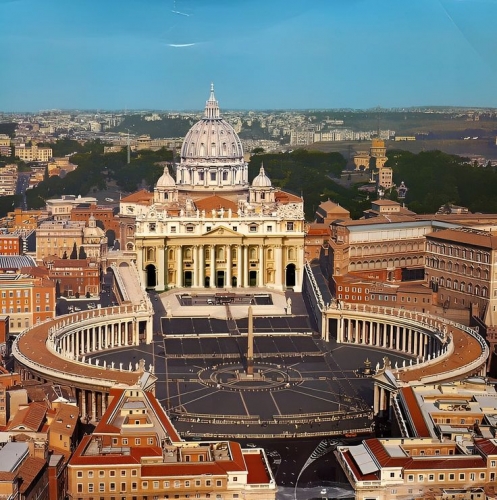
A propos de la mort de Bergoglio
par Andrea Zhok
Source: https://www.sinistrainrete.info/articoli-brevi/30343-andr...
Les vingt dernières années de pontificat ont, je crois, brossé un tableau dans lequel le déclin de l'influence internationale de la papauté de Rome s'est révélé une évidence.
Les deux derniers pontifes ont tenté des voies complémentaires, en partie opposées, pour redonner une place centrale à l'Église catholique.
Le pape Benoît XVI, au cours de son pontificat de huit ans (2005-2013), a tenté de suivre une voie de consolidation doctrinale avec la restauration de certains facteurs traditionnels. Sur cette voie « traditionaliste », il s'est heurté à une telle résistance dans l'entourage du Vatican qu'il a pris la décision sans précédent d'abandonner le trône papal à vie. Le geste de Benoît XVI s'est voulu emblématique, admonitif.
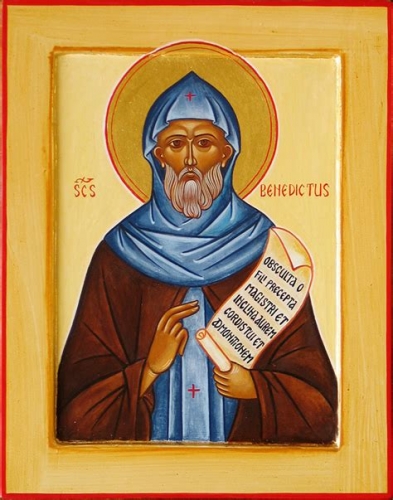
La référence au fondateur du principal ordre monastique, saint Benoît, a été conçue par Ratzinger comme un souhait et une inspiration pour une « renaissance » du monde occidental, tout comme les monastères bénédictins en avaient été la matrice après l'effondrement de l'empire romain (la déposition du dernier empereur occidental, Romulus Augustulus, a eu lieu en 473 après J.-C., la composition de la règle bénédictine a eu lieu en 525 après J.-C.). Cet espoir et cette inspiration de Benoit XVI ont échoué. Les papes, comme les souverains du passé, ne règnent jamais seuls, mais ont besoin d'un environnement fonctionnel, d'une « cour », d'un « appareil » efficace adhérant à la « mission », pour pouvoir traduire leur magistère dans les coutumes et les institutions. Et cet environnement s'est avéré inadéquat pour traduire le magistère de Ratzinger.
Le pape Bergoglio était monté sur le trône papal en se référant à une autre figure emblématique, moins décisive sur le plan institutionnel, mais puissante sur le plan idéel : Saint François d'Assise.
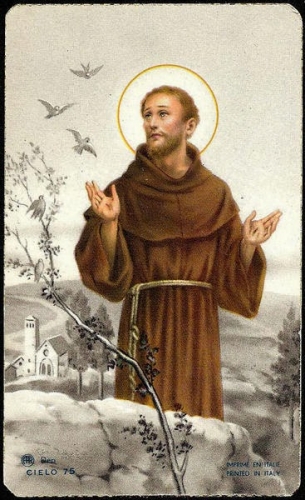
La figure de François, ascétique, mystique, avec des traits presque panthéistes, exprimait un souhait et une inspiration différents de ceux de Benoît, mais connotait également un renouveau radical. L'orientation idéale du pape François visait à soutenir les humbles, les « perdants » du monde moderne, il voulait critiquer l'exploitation de l'homme sur l'homme et de l'homme sur la nature.
L'encyclique « Laudato Si » reste un texte exemplaire, une encyclique d'une grande puissance d'analyse et d'une rare profondeur de message. On cite souvent Laudato Si en la qualifiant d'« encyclique écologique », comme s'il s'agissait d'une des nombreuses manifestations de « greenwashing » qui entachent le discours public actuel. Mais celui qui prend la peine de le lire y trouve une extraordinaire richesse analytique, une intégration du thème de l'environnement dans celui de l'exploitation économique générale, une critique des mécanismes du capital, de la domination de l'économie financière sur l'économie réelle, de la domination technocratique, une critique des prétendues « solutions de marché » à la dégradation écologique (telles que les « crédits carbone »), et bien d'autres choses encore.
Mais au-delà des espoirs initiaux, les douze années de pontificat de Bergoglio ont à nouveau montré l'énorme difficulté qu'éprouve la papauté d'aujourd'hui à proposer avec succès un message autonome.
Les traits du magistère de Bergoglio qui ont été repris et promus sont tous et seulement ces quelques traits de « libéralisation des mœurs “ (ex : les ouvertures LGBT avec la lettre au Père Martin) et d'amplification du récit courant (ex : l'adhésion à la lecture dominante sur le Co vid) qui correspondaient à une image de ” modernisme » stéréotypé. Les nombreuses autres positions inconfortables sur le capitalisme financier ou les questions internationales, d'Israël à la Libye, de l'Iran à la Russie, ont été mises en sourdine, parfois même censurées.
L'impression générale est que les deux derniers pontificats ont montré deux tentatives - intellectuellement solides et spirituellement élevées - de redonner une place centrale au catholicisme romain et à son message historique.
La première tentative, aux connotations plus « conservatrices », s'est rapidement heurtée à la paralysie.
La seconde tentative, à connotation plus « progressiste », a été réduite à une impuissance substantielle dans tous les domaines où elle ne ramait pas dans le sens du courant - où « courant » désigne les modes idéologiques favorisées par les oligarchies financières anglo-américaines.
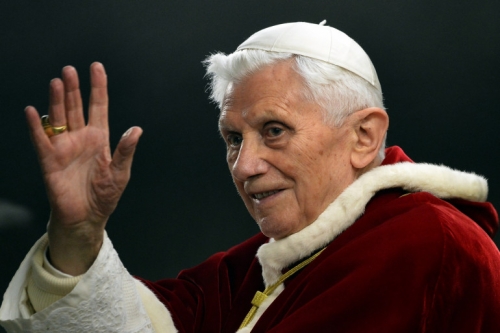
On peut tout dire de Ratzinger et de Bergoglio, mais certainement pas qu'ils ont été des papes manquant d'inspiration, de préparation ou de caractère. Loin de là.
Pourtant, il est difficile de dire que, deux décennies plus tard, le statut, idéal et opérationnel, du christianisme catholique a gagné en centralité ou en autorité.
Personne ne sait ce que nous réserve la prochaine fumée blanche du conclave, mais je pense qu'il est sage de ne pas trop attendre.
Les conditions historiques ne semblent pas être telles qu'elles permettent à un nouveau pontife, quelles que soient ses éventuelles qualités préclariques, d'inverser une tendance stagnante. Et le problème n'est pas que « le pape n'a pas de divisions militaires », comme l'a dit Staline à Jalta : les « leviers spirituels » peuvent faire des choses extraordinaires.
Mais les leviers spirituels sont cette « force faible » qui ne fonctionne que lorsqu'elle repose sur un point d'appui spirituel à l'intérieur des personnes. Et aujourd'hui, je ne parierais pas sur la diffusion d'un tel point d'appui, même parmi ceux qui habitent les salles des palais du Vatican....
14:52 Publié dans Actualité | Lien permanent | Commentaires (0) | Tags : papauté, actualité, pape françois, catholicisme, religion, vatican |  |
|  del.icio.us |
del.icio.us |  |
|  Digg |
Digg | ![]() Facebook
Facebook
mardi, 22 avril 2025
L'évaporation du christianisme
L'évaporation du christianisme
par Diego Fusaro
Source : Diego Fusaro & https://www.ariannaeditrice.it/articoli/la-evaporazione-del-cristianesimo
Bergoglio nous a quittés hier à l'âge de 88 ans. Cette perte douloureuse nous offre tout de même l'occasion de faire quelques considérations générales sur sa figure et sur la manière dont il a géré l'Église de Rome ces dernières années. La première précision nécessaire concerne le fait que Bergoglio, techniquement, n'a jamais été Pape : comme nous l'avons montré largement dans notre livre "La fin du christianisme", Benoît XVI n'a jamais renoncé au munus petrinum, mais a seulement renoncé au ministerium : expliqué en termes très simples, Ratzinger a renoncé à exercer le rôle de Pape sans jamais renoncer à ce rôle. Avec la conséquence évidente qu'il est resté jusqu'à la fin Pape : pour cette raison, l'élection de Bergoglio en 2013 a été un acte nul plutôt qu'invalide. Comme chacun le sait, il ne peut y avoir qu'un seul Pape, et l'on ne fait pas de nouveau Pape tant que celui en fonction n'est pas mort ou n'a pas renoncé au munus, pas au ministerium. Ainsi, en fin de compte, le siège papal est vacant depuis le 31 décembre 2022.
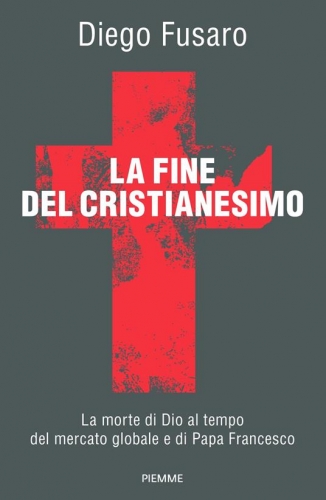
En ce qui concerne la manière dont Bergoglio a administré l'Église, nous nous contenterons ici également de résumer ce que nous avons écrit dans notre livre mentionné précédemment, nous pouvons dire qu'il a favorisé de toutes les manières les processus en cours d'évaporation du christianisme, promouvant une néo-église intelligente et liquide, post-chrétienne et ouverte à l'immanence, tout en se fermant intégralement à la transcendance. La religion de Bergoglio a été une religion du néant, sous la forme d'un nihilisme post-chrétien qui a de fait contribué à vider complètement le christianisme, le réduisant à une simple couverture idéologique de la globalisation libérale-progressiste.
Si Ratzinger avait héroïquement résisté à l'évaporation du christianisme, mettant au centre la tradition, la philosophie et la théologie, et pour cela étant continuellement combattu par l'ordre dominant, Bergoglio a agi de manière diamétralement opposée et c'est pour cette raison qu'il a été dès le départ le favori de l'ordre hégémonique : au lieu de résister à l'évaporation du christianisme, il l'a favorisée de toutes les manières. Dans les années soixante-dix, Pasolini notait que le christianisme était à un carrefour fondamental, le cristallisant ainsi : soit le christianisme repartira des origines et de l'opposition à un monde qui ne le veut plus, soit il se suicidera et se dissolvera dans la civilisation de la consommation. Avec Ratzinger, nous avons assisté à la tentative de donner vie à la première hypothèse de Pasolini. Avec Bergoglio, au contraire, nous avons constaté le triomphe de la seconde.
20:10 Publié dans Actualité | Lien permanent | Commentaires (1) | Tags : religion, pape françois, catholicisme, vatican, diego fusaro, christianisme |  |
|  del.icio.us |
del.icio.us |  |
|  Digg |
Digg | ![]() Facebook
Facebook
jeudi, 19 décembre 2024
Quelle sera donc la religion du futur ?
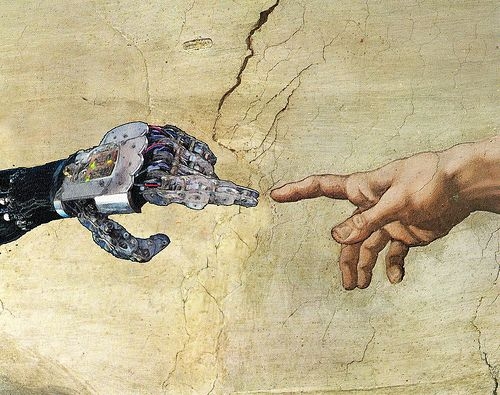
Quelle sera donc la religion du futur?
Claude Bourrinet
Le fonctionnement intellectuel et imaginaire humain est tel qu'il lui est nécessaire de s'appuyer sur des comparaisons. Un exercice scolaire itératif consiste à établir des parallèles entre des périodes de l'histoire. Cette paresseuse tentation, malgré parfois les séductions de l'apparence, a le défaut d'oublier un facteur important: la réalité. Si le cycle de la naissance, du développement, et de la mort, loi naturelle, se retrouve en permanence dans la longue marche de l'humanité - encore est-ce là une perception distanciée, car quand on y regarde de près, les limites imparties à chaque phase ne sont pas si tranchées, et, en tenant compte des différents domaines des réalisations humaines, on est contraint de constater qu'il y a, au fil du temps, d'innombrables naissances, et autant de développements et de morts, ce qui rend fort problématique les découpages auxquels les historiens se sont tenus à un certain niveau - pour le reste, c'est-à-dire les hypothétiques similitudes entre certaines époques, il faut bien en rabattre: l'homme, être plastique, modulable, protéique, change à tel point de nature, qu'il n'est plus le même à mesure qu'il évolue. Un Romain du 1er siècle est complètement dissemblable d'un Romain du 4ème, et ne parlons pas des hommes de moyen âge, ou de l'époque contemporaine. L'hétérogénéité n'est pas seulement de degré, mais elle est radicale. Lorsqu'on pense "comprendre" un texte de Cicéron, par exemple, nous l'appréhendons en fonction de ce que nous sommes. Il est impossible de le saisir comme un citoyen romain de la République romaine. On ne peut que s'en approcher, prudemment, à l'aide d'un appareil critique conséquent.
Il en va de même de toutes les productions humaines. L'histoire ne repasse pas les plats, où il s'agit alors de parodie, de singerie. Les Révolutionnaires français ont mimé Sparte, Rome etc., mais la Révolution est la source de la modernité, non de l'Antiquité renaissante. La tranchée est immense entre un Brutus, et un Robespierre. Ce sont deux espèces différentes.
Aussi a-t-on tenté de prévoir la "spiritualité" de l'avenir, et certains se sont essayés à dessiner les contours de la religion qui succédera à un christianisme moribond. Les nationalistes identitaires occidentaux craignent l'islam, sans se demander de quel islam ils parlent, et si celui-ci ne subira pas le sort du christianisme, et pour les mêmes causes (société de consommation, nihilisme techniciste etc.). Il faudrait aussi analyser les causes d'un soi-disant revival musulman, dans une région qui subit de plein fouet l'effet destructeur de l'Occident. L'islam actuel n'est peut-être que la réaction moderne, voire moderniste (l'utilisation pointue de la technique, par exemple) d'une société qui craint de mourir.
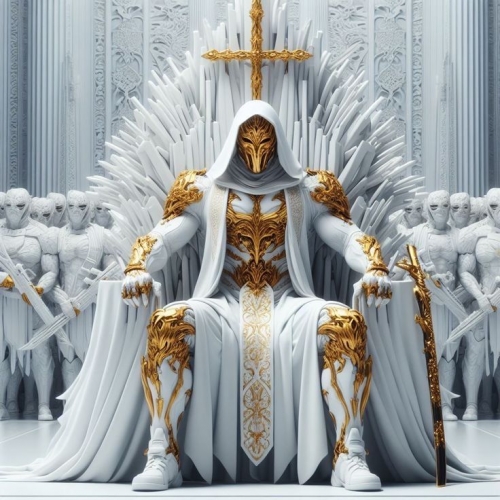
Il est courant de prévoir que l'extinction du christianisme, sous toutes ses formes, amènera l'avènement d'une nouvelle religion, éclectique, inspirée d'un New age, qui est déjà installé dans les pays occidentaux depuis près d'un siècle, mais qui ne touche que les classes moyennes. Ce courant n'est structuré qu'en une multitude de sectes, et il règne comme atmosphère mentale, inspirant par exemple la publicité, la production d'objets, et des pratiques tenant de très près aux finalités hygiénistes ou thérapeutiques de bien-être et d'adaptabilité à une société sous tension. Il est difficile de parler à son sujet de religion, ni même de spiritualité. Mais il est indéniable que des millions d'individus en sont adeptes, même si la profondeur de leur engagement n'est pas très convaincants, malgré les prédictions d'un Jünger, qui pensait qu'une sorte de shintoïsme, de bouddhisme cool, de paganisme éthéré, suivrait l'avènement de l'Etat universel, ou, plus sérieusement, une nouvelle poésie de l'être, comme l'espérait Heidegger, sans trop y croire.
A ce sujet, celui de la palingénésie, c'est-à-dire de la transformation d'un ensemble religieux en un autre - songeons au remplacement du paganisme du haut-empire néoplatonicien par le christianisme de l'Antiquité tardive - nous avons certes des points apparents de comparaison. Mais la Weltanschauung d'un disciple de Plotin était en gros similaire à celle d'un saint Ambroise, par exemple. Saint Augustin a glissé du néoplatonisme au catholicisme sans véritable heurt. Les racines épistémologiques, philosophiques, théologiques, relativement parentes entre ces traditions, ont été consolidées dans la terre civilisationnelle de la vieille Europe durant plusieurs siècles.
Rien de tel à notre époque, qui est inédite dans l'histoire. Pour la première fois, le passé est renié, considéré comme inutile pour fonder la société du présent et du futur, l'homme est, de même, aboli, perçu comme construit selon un tas de critères, la dimension suprahumaine, qui fondait le politique et les liens sociaux depuis toujours, a disparu, même à l'état de reste, plus aucun repère ne subsiste des temps anciens. On ne peut se fonder sur ce vide absolu pour imaginer une suite qui ressemblerait à ce qui s'était passé il y a des millénaires. Nous sommes dans un temps impensable. On ne peut le penser, car, pour penser, il faut comparer.
Mais que l'on ne tombe pas dans la caricature ! Les phénomènes historiques sont rarement scindés brutalement. Il subsiste toujours des terreaux antiques, même ténus, ou, le plus souvent, contaminés. Il existera encore des chrétiens, et sans doute plus solides que maintenant, mais ils seront ultra-minoritaires. Car il ne faut pas s'imaginer qu'il puisse exister un avenir fiable pour les Eglises. Poutine peut bien se rendre à l'office, il n'en demeure pas moins qu'en la sainte Russie, comme chez nous, il n'y a plus que 2% de pratiquants. Certes, comme dit Emmanuel Todd, il se peut qu'à l'Est, on ait encore des croyants "zombies", mais arrivera le temps du degré 0 de la croyance et de la pratique, les mêmes causes créant les mêmes effets (l'occidentalisation a conquis la planète, avec son nihilisme, latent ou actif).
Aux Etats-Unis, non seulement le nombre de ceux qui ne croient pas dépasse désormais celui des croyants en Dieu, mais, comme le faisait remarquer Rod Dreher, la pratique (ce à quoi il est indispensable de prêter attention, plutôt qu'aux déclarations de principe) le recentrement individuel, le genre de vie hédoniste et individualiste, voire narcissique, contredisent violemment les "valeurs" chrétiennes, certains "fondamentaux" évangéliques, comme la chasteté, le rejet de l'homosexualité, de l'avortement, le mépris de l'argent, de la réussite sociale impérative, l'inculture religieuse rendant parfois ce négationnisme sociétal invisible, ou acceptable. L'évangélisme, du reste, était déjà une accommodation crue et matérialiste aux séductions de l'American way of life, de son système codifié lié au travail, au commerce, au spectacle, au show business. Si de nombreux Africains ou Moyen Orientaux se laissent prendre à ce puritanisme made in USA, c'est parce qu'il permet d'échapper à l'emprise de la société traditionnelle, avec ses contraintes claniques et familiales, et délivre des liens psychologiques afin de permettre des activités plus proches de ce que le monde moderne, individualiste, utilitariste, promeut.

L'hypothèse d'une nouvelle "religiosité" doit tenir compte de la réalité du monde de la technoscience. L'humanisme, qui était à l'origine solidaire du christianisme, est devenu une religion séculaire à partir du XVIIIe siècle. L'homme est devenu le centre de l'existence, de la civilisation, et le porteur du sens de la vie. Nous assistons maintenant à sa métamorphose. La vraie foi qui semble mouvoir les esprits, les coeurs et les corps, et susciter un véritable enthousiasme, maintenant, c'est la démultiplication des pouvoirs de l'humain, et le rêve d'un homme éternellement jeune, voire immortel. C'est un projet faustien (tout-à-fait compatible avec ce "supplément d'âme" qu'est le New Age, du reste), entreprise méphistophélique que Goethe a dépeinte dans son fameux drame, et qui est l'un des rares mythes à être encore virulent dans notre univers nihiliste. A mon sens, voilà la religion du futur, prévue, somme toute par la Bible : "Et nous serons comme des dieux".
Je prophétise en pleurant.
14:00 Publié dans Philosophie | Lien permanent | Commentaires (0) | Tags : religion, futur, philosophie |  |
|  del.icio.us |
del.icio.us |  |
|  Digg |
Digg | ![]() Facebook
Facebook
lundi, 19 août 2024
Le déclin du christianisme en Occident

Le déclin du christianisme en Occident
Walt Garlington
De nombreux chrétiens occidentaux, comme cet homme, sont perplexes et consternés par le mutisme des dirigeants occidentaux face aux blasphèmes proférés lors des cérémonies d'ouverture des Jeux olympiques de Paris :
Pensez-y : Notre ennemi mortel - l'adversaire juré de la chrétienté depuis sa conception au Moyen-Orient - est aujourd'hui le seul acteur étatique à défendre activement le Christ sur la scène mondiale.
(Par exemple, le Livre de la Concorde mentionne que l'Empire ottoman [qui englobe les musulmans dans leur ensemble] était « l'ennemi le plus atroce, le plus héréditaire et le plus ancien du nom et de la religion chrétienne »).
J'aimerais pouvoir revenir en arrière et dire à Thomas d'Aquin, Calvin, Martin Luther et/ou à certains papes que ce jour arriverait. Pouvez-vous imaginer ce qu'ils diraient ? Ils n'y croiraient probablement même pas.
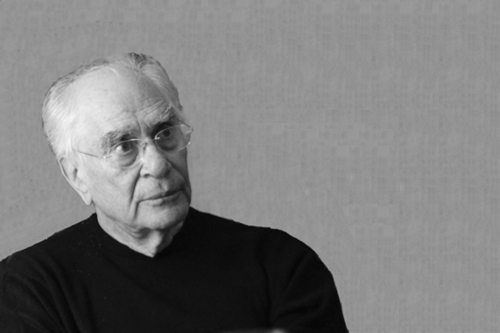
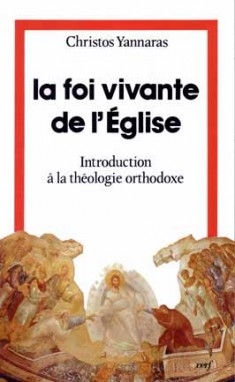
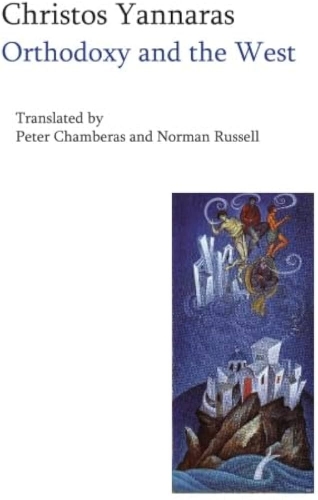
Malheureusement, ce sont de tels hommes (papes et réformateurs) qui ont affaibli l'Église en Occident en « religionisant » le christianisme, selon les termes de Christos Yannaras (photo), en en faisant une organisation individualiste, légaliste et terrestre. Il écrit : « L'Occident a ainsi abandonné la compréhension de l'Évangile,
L'Occident a ainsi abandonné la compréhension évangélique du « salut » (rendre un être humain « sain », intact, en tant qu'existence hypostatique par la participation au mode ecclésial d'existence et de communion amoureuse). L'Occident est revenu au concept religieux banal de la justification légaliste de l'individu par ses vertus, sa maîtrise de soi et ses bonnes œuvres.
La pensée légaliste d'Augustin soutient la justification « individuelle » dans des catégories juridiques acceptables pour la mentalité romaine, en introduisant dans la relation entre l'humanité et Dieu un concept que nous pouvons appeler « métaphysique transactionnelle ».
Cette « métaphysique transactionnelle » repose sur l'hypothèse d'Augustin selon laquelle le péché humain est une « dette » qui doit être « rachetée » pour être justifiée aux yeux de Dieu. La rédemption est réalisée à deux niveaux : théologiquement par la mort du Christ sur la croix, offerte comme « rançon » pour le règlement de la « dette » infiniment grande du péché humain et de l'impiété envers Dieu, et anthropologiquement par la « pénalité » imposée au pécheur, qui doit être payée si ses péchés doivent être rachetés.
' . . . Mais dès le 9ème siècle, cette « métaphysique transactionnelle » est entrée dans la vie religieuse occidentale. Les textes religieux présentent Dieu comme un « père sadique » brûlant de satisfaire sa justice et, par extension logique, se réjouissant de la torture des pécheurs en enfer. . . .
Aucune autre hérésie chrétienne n'a déformé aussi efficacement l'Évangile chrétien. C'est peut-être parce que l'Occident a adopté la tendance naturelle de l'individu à réduire cette merveilleuse invitation existentielle à son propre niveau, à « religiosiser » la vie intérieure de l'Église, à la soumettre aux exigences de la certitude idéologique individuelle et de l'autosuffisance morale psychologique. Cette tendance naturelle a toujours été une tentation pour les consciences chrétiennes - depuis l'époque des judaïsants des premières communautés chrétiennes.
' . . . Au cours des derniers siècles, les Européens mécontents ont compris que quelque chose n'allait pas, mais ils ont sous-estimé l'ampleur du problème. Ils se sont retournés contre le « dogme » qui faisait de la foi un ensemble codifié de propositions, remplaçant l'expérience par l'intellectualisme » (Orthodoxy and the West : Hellenic Self-Identity in the Modern Age, Chamberas et Russell, trad. 39-42).
M. Yannaras cite Dostoïevski sur le sort de l'Église en Occident à cause des distorsions de la foi telles que celles mentionnées ci-dessus :
En Occident, il n'y a pas d'Église du tout, seulement un clergé et une magnifique architecture d'église. Les confessions essaient d'aspirer aux vertus de l'État qui les engloutit. C'est ce qui s'est passé, à mon avis, dans les pays luthériens. Mais à Rome, l'État a remplacé l'Église il y a mille ans » (Ibid., p. 43-4).
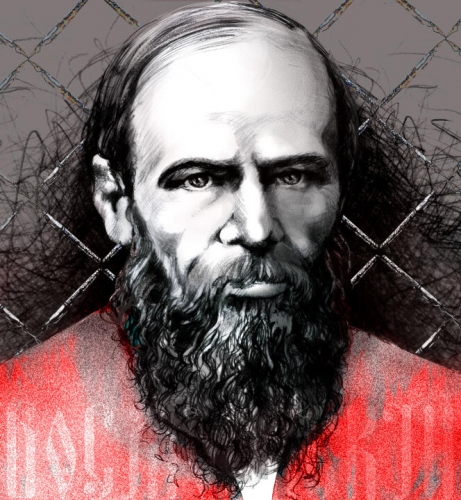
Tout cela revient à dire ce qui suit : les chefs religieux de l'Occident ont déformé l'enseignement chrétien essentiel selon lequel le Christ s'est fait homme pour que l'homme puisse devenir un dieu par la grâce (expression souvent répétée par de nombreux Pères de l'Église), afin qu'il puisse lui-même être élevé dans la Vie partagée par les Personnes de la Sainte Trinité et en faire l'expérience, par l'union avec le Christ Dieu-homme et son Église, même pendant qu'il est sur la terre. Au lieu de cela, ils ont donné à l'homme occidental un simulacre hideux axé sur la culpabilité, la colère et le châtiment, ainsi que sur l'intellectualisme et la justice légaliste. Les Occidentaux ont fini par se rendre compte que quelque chose avait changé dans le christianisme occidental et ont commencé à abandonner l'Église « religionisée » - d'abord lentement, puis de plus en plus rapidement. C'est ainsi que nous en sommes arrivés au point où il y a peu de personnes prêtes à défendre cette forme déformée du christianisme lorsqu'elle est attaquée, comme ce fut le cas récemment à Paris.
La réponse à la décadence du christianisme en Occident n'est pas une nouvelle réforme, mais simplement un retour à la foi originelle qu'elle a déformée et emmêlée au cours des siècles, un retour à l'Église orthodoxe et à sa vie eucharistique. M. Yannaras décrit brièvement cette vie de la manière suivante :
L'eucharistie est donc la totalité de notre salut, toute la vérité et la réalisation de l'Évangile de l'Église. Chaque eucharistie locale, chaque célébration particulière du « mémorial » du sacrifice du Christ, est la réalisation et la manifestation de l'Église universelle : le renouvellement complet de la création et la vivification des mortels. L'Eucharistie est la vérité et l'achèvement de l'Église, la transformation du mode d'existence humaine. Toute structure institutionnelle, administrative ou organisationnelle indépendante de l'Eucharistie trahit notre dépendance à l'égard des capacités de la nature, notre emprisonnement (même s'il s'agit d'un emprisonnement « religieux ») dans l'autosuffisance naturelle, dans une mort sans espérance » (Ibid., p. 31-2).
Telle a été l'Église d'Occident pendant les mille premières années de sa vie chrétienne. La porte reste ouverte à la redécouverte et à l'exploration de cette Église. Le livre de M. Yannaras est disponible ici en format PDF gratuit pour ceux qui souhaitent en savoir plus. Pour ceux qui habitent Dixie (ndt: les paysde l'ancienne Confédération aux Etats-Unis actuels) en particulier, la Ludwell Orthodox Fellowship organise une conférence en septembre au Texas pour ceux qui voudraient suivre cette voie. Paul Kingsnorth fournit une liste utile de livres, de sites web, etc. sur l'orthodoxie pour les débutants.
Oui, l'Occident est en mauvais état, mais il peut s'en sortir en s'unissant à l'Église orthodoxe. Nous aimons notre famille et nos amis catholiques et protestants, nous les respectons profondément et nous les respecterons toujours, mais nous espérons qu'ils envisageront néanmoins la voie orthodoxe afin que le mal des Jeux olympiques de Paris puisse déboucher sur un bien.
18:12 Publié dans Actualité | Lien permanent | Commentaires (0) | Tags : actualité, religion, christianisme, orthodoxie |  |
|  del.icio.us |
del.icio.us |  |
|  Digg |
Digg | ![]() Facebook
Facebook
jeudi, 25 juillet 2024
Romanité sacrée et religion d'État
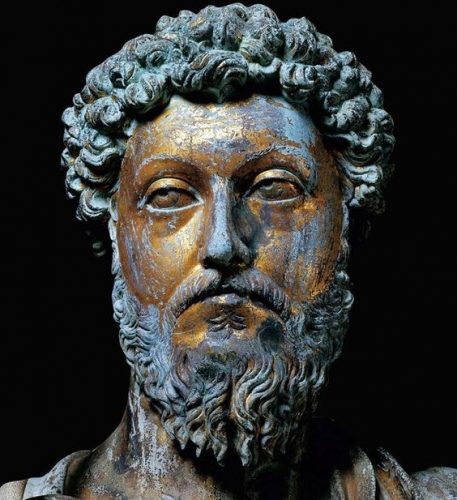
Romanité sacrée et religion d'État
Par Luca Leonello Rimbotti
Source: https://www.centroitalicum.com/romanita-sacra-e-religione-dello-stato/
Bonaiuti et Pettazzoni, deux bâtisseurs d'identité
Les civilisations se mesurent aussi et surtout à la manière dont elles abordent la question de l'identité. Les institutions vitales et grandissantes ont dans l'identification des caractères nationaux et populaires l'une de leurs fonctions les plus importantes. Au contraire, comme chacun le constate à notre époque, les sociétés en désintégration ne font que se prosterner devant l'autre, confondre ou même effacer les traces du long chemin commun, donnant naissance à ce sentiment de culpabilité ou Selbsthass (haine de soi), dans lequel Freud trouvait déjà des preuves de l'effondrement consciencieux des peuples et des individus. La recherche du sacré, l'excavation de dépôts mémoriels collectifs, l'effort de protection et de valorisation des symboles de l'histoire, sont autant de motifs de croissance, d'une culture qui se diffuse et se renforce, enrichissant la vie et la vie politique d'un savoir commun.
C'est sous le signe de la confrontation et, le cas échéant, du conflit bénéfique, que se déploie l'activité d'une Kultur créatrice. Le retour à la source de l'individuation s'accompagne de la volonté de s'opposer au lent déclin des valeurs, préférant vivre un coucher de soleil lumineux plutôt qu'une ruine sans honneur. La société contemporaine a aussi besoin du sacré. Surtout la société contemporaine, qui est quotidiennement marquée par les attaques d'une massification toujours plus plébéienne, à l'enseigne de ce cosmopolitisme matérialiste et ennemi du mythe qui a tout nivelé et privé de sens.
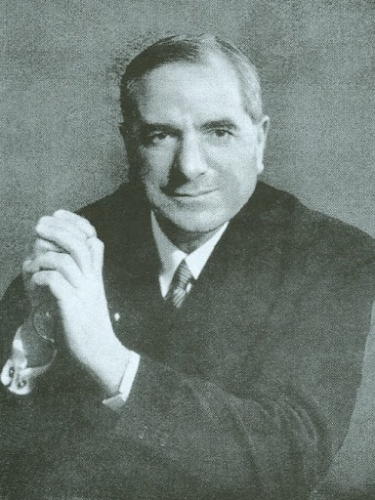
Lorsque, par exemple, Ernesto Bonaiuti (photo) - le prêtre moderniste, excommunié en 1926 et relevé de ses fonctions d'enseignant à partir de 1929, notamment pour avoir refusé de prêter serment au régime fasciste - professait la nécessité d'étudier la religion comme un fait en soi et non comme un acte de foi, il réalisait en réalité une opération culturelle de grande importance: la réintroduction de la prise en charge du sacré dans la société. Malgré les accusations de l'Eglise (et indirectement du régime, qui devient son allié seulement à partir de 1929), Bonaiuti n'a pas véhiculé la sécularisation, mais a lancé une conception du sacré qui devait être autre chose que le confessionnalisme.
Contre le temporalisme papal, devait passer l'idée de la religion comme fait social. Ce n'est pas rien. La « sécularisation des sciences religieuses », dans la perspective de Bonaiuti, devait conduire à la libération des énergies liées au sacré, tout en les inscrivant dans des catégories politiques et non cléricales. Sur ce point, non pas paradoxalement, mais tout naturellement, l'hérétique Bonaiuti croise la lecture historique faite par le fascisme.
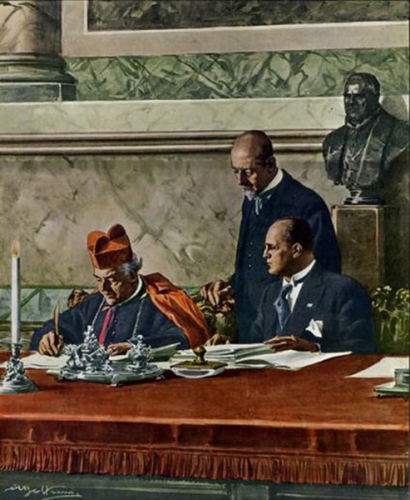
La rédaction des Accords du Latran, si elle contraignit l'Italie à certaines servitudes (instruction religieuse dans les écoles, lois sur le mariage, favoritisme au profit des instituts catholiques, subventions, privilèges : en un mot, l'« étatisation » du catholicisme), au point qu'il y eut des moments de grave rupture idéologique (comme par exemple dans le cas de Giovanni Gentile), en revanche, elle ne contraignit pas beaucoup le régime.
L'indépendantisme fasciste à l'égard de l'Eglise (dont témoignent les tensions avec l'Action catholique vers 1931), s'inspirait des déclarations de Mussolini lui-même qui, dans certains discours prononcés quelques mois après la Conciliation, avait affirmé la supériorité historique de Rome sur le christianisme, proclamant que la parole du Christ, sans l'union avec la Ville éternelle, qui en élargissait le message, serait restée une modeste affaire de sectarisme levantin: seule Rome, comme Paul de Tarse l'avait bien deviné, ferait d'une hérésie juive la religion de l'État romain universel. Cela mettait à mal le récit de la continuité entre la communauté chrétienne primitive et l'Église, qui apparaissait ainsi beaucoup plus romaine que catholique.
Certains historiens ont insisté sur le fait que Bonaiuti, officiellement « persécuté » par le régime fasciste, était en fait son soutien idéologique sur le point fondamental de la primauté politique de l'État sur la confession. Bonaiuti le « persécuté », qui écrivait pourtant dans des journaux fascistes (peut-être en signant de ses seules initiales, mais, de fait, il écrivait bel et bien dans ces journaux) comme le « Corriere Padano » du féal de Bottai Nello Quilici, ou dans « La Stampa » dirigée par des pontes comme Malaparte et Augusto Turati, ce Bonaiuti icône de l'antifascisme posthume, disait des choses étonnamment dans la ligne, et il ne tarissait pas d'éloges sur le régime. D'ailleurs :
Les Accords du Latran étaient aussi présentés, presque paradoxalement, comme un encouragement à la liberté de recherche, une persuasion que Bonaiuti nourrissait, au moins par moments, même en privé.
Selon lui, dans les mots du leader du fascisme prenait forme « l'action unificatrice de Rome » et le rêve d'une primauté italienne renouvelée dans les sciences religieuses [1].
Ce jugement, au lieu d'opposer le régime à l'histoire et à la morale, l'inclut pleinement parmi les facteurs de consolidation non seulement de l'identité religieuse, mais aussi de la fonction historique, élevée à la dimension universelle.
On connaît d'ailleurs les arguments de Mussolini à cette époque sur la possibilité pour le fascisme de profiter de la visibilité mondiale garantie par le catholicisme romain, dont l'« impérialisme » éthique aurait pu facilement être flanqué de ce que l'on appelait pour l'instant l'« impérialisme spirituel » de l'Italie fasciste.
Quoi qu'il en soit, le fait que « l'historien “hérétique” ait pris le parti de l'État fasciste contre les prétentions ecclésiastiques », réveillant également l'intérêt de Gentile, signifie que l'histoire enregistre souvent des cas de convergence de vues politiques et idéales, même de la part de sujets provenant de milieux différents, ou divisés par des jugements divergents sur de simples détails.
Bonaiuti, en effet, ne s'oppose même pas à la polémique sur le nouveau paganisme germanique, qu'il considère, à l'instar de la majorité de la culture fasciste, comme un fragment moderne de la Réforme luthérienne, qui a trouvé dans la polémique antiromaine le point d'appui de sa propre révolte. C'est précisément dans la proposition d'une centralité renouvelée de la romanitas, opposée à la paganitas nationale-socialiste, que Bonaiuti s'est trouvé aux côtés de ceux qui (pas nécessairement depuis les rivages clérico-fascistes) différenciaient l'Italie romaine du nouveau Reich naissant, dont le racisme remontait directement à Luther et à la constitution ethnique ancestrale du germanisme, jugée immuable, ce qui lui permettait d'affirmer
la permanence inaltérable des caractéristiques primitives de la spiritualité collective germanique à travers les siècles, et donc sa résurgence impétueuse et incontestée dans les idéaux et les programmes du nazisme [2].
Ce qui, à vrai dire, était plutôt un argument fort des néo-païens emmenés par Rosenberg : le national-socialisme comme vecteur d'une identité raciale inaltérable. Dans ce sillage, la même guerre d'Éthiopie de 1935-36, insérée par Bonaiuti dans la tradition de Dante sur l'empire comme « moyen providentiel » pour la rédemption de l'humanité, fut jugée positivement, au point de se joindre à la condamnation de la Société des Nations à Genève, accusée par le prêtre moderniste d'être un repaire calviniste qui s'efforçait de s'opposer à l'avancée légitime de la nouvelle Italie vers l'empire. A l'avènement de celui-ci, en mai 1936, Bonaiuti ne manqua pas de revendiquer les justes titres de la romanitas renouvelée de Mussolini, en se référant directement à saint Augustin et à son éloge de la Rome césarienne et de son « expansion providentielle ». Sur ce point, il faut le dire, Bonaiuti s'est trouvé aux côtés de l'Église qui, à l'instar de la puissante Curie milanaise, s'est distinguée en bénissant les Chemises noires en partance pour l'Abyssinie, où elles allaient non pas imposer un régime brutal, mais y apporter la lumière de Rome, chrétienne et fasciste, « par laquelle le Christ est romain », pourrait-on dire, à la suite d'Alighieri.
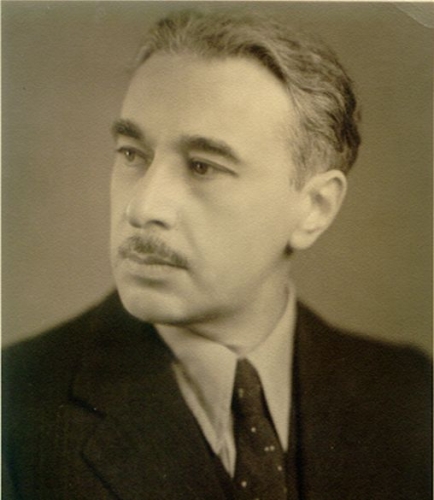
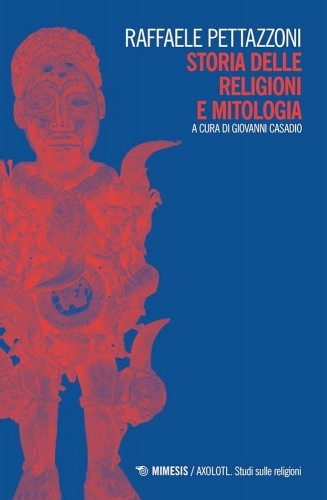
Les études historico-religieuses comme moment essentiel de revigoration d'une idéologie identitaire radicale. C'est aussi le cas d'un autre grand interprète du sacré dans l'histoire moderne, Pettazzoni (photo, ci-dessus), académicien d'Italie depuis 1933.
Avec ce grand connaisseur des spiritualités anciennes (de la Sardaigne primitive à la Grèce, à l'Iran et au Japon), l'importance de la religion en tant que fait national est confirmée. Chaque peuple emprunte son propre chemin vers le sacré selon les coordonnées de sa spécificité. Une sorte de « religion d'État », qu'il s'agisse du shintoïsme japonais, de la paganitas hellénique ou du zoroastrisme, des phénomènes qui portent à chaque fois les stigmates d'une culture, non reproductible dans son unicité. L'objectif scientifique de Pettazzoni était de conjuguer la religiosité d'État avec celle du salut individuel, afin de rendre compte de ces grandes religions politiques dont les civilisations du passé ont témoigné. À commencer, pour nous Occidentaux, par le culte impérial augustéen, auquel la fusion avec le christianisme opérée par Constantin allait générer dans la « religion de l'homme » la qualification d'un pouvoir supplémentaire, donné par une « religion officielle de l'État ». Comme pour le shintoïsme, Rome pourrait donc voir le culte privé élevé au rang de doctrine civile et de dogme d'État. De ces aspects, ignorant délibérément les apories historiques, Pettazzoni a relevé la caractéristique du communautarisme et de l'offrande héroïque de soi, cette énergie de l'esprit intérieur qui fait de l'homme un prêtre de la patrie et un témoin du sacrifice volontaire.
Même, en ces temps de projection faustienne vers l'illimité, Pettazzoni préfigure un régime fasciste capable d'assumer ces héritages romano-païens, de dépasser le confessionnalisme injecté par le Concordat, et d'espérer une Italie ramenée aux héroïsmes des pères, comme cela se passe au Japon en ces années de mysticisme surhumaniste. Le dépassement du christianisme et sa dilution espérée dans un système de religiosité nationale, à préférer au radicalisme d'un certain national-socialisme néo-païen, devaient, selon le savant, donner vie à quelque chose qui puisse orienter l'Italie vers le culte de la sacralité de la lignée divine: si le christianisme universel semblait refroidir les instincts nationaux-populaires, la « religion d'État », qui connaissait les voies de la collectivité, les libérait positivement [3].
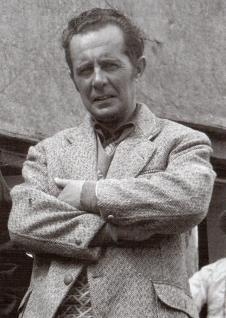
Comme Giuseppe Tucci (photo), l'autre grand orientaliste de l'époque et son jeune collègue enseignant à La Sapienza, Pettazzoni devait envisager de dépasser le christianisme par le chrisme d'un paganisme renouvelé, afin de générer cette religion de l'État populaire qui aurait en son centre la mystique héroïque « de la mort en armes ».
L'éthique héroïque du Japon impérial, incarnée dans le code guerrier traditionnel, était considérée comme un objectif que les Italiens de l'époque pouvaient atteindre: « Le Buscidô propose un idéal qui a des racines solides même dans cette mère des héros qu'est l'Italie et que tous les grands peuples connaissent » [4].
Cela aurait donné à la guerre de l'Axe, alors en cours, le visage d'un « acte liturgique » qui avait sa source originelle dans le « patrimoine civique-religieux archaïque ».
De cette manière, les connotations archaïques du millénarisme historique, consacré aux énergies énigmatiques de la création, qui, comme dans le zoroastrisme iranien, interprétait la vie comme une lutte inépuisable, auraient été ravivées : « la lutte humaine n'est qu'un épisode de la lutte cosmique entre le principe du bien et le principe du mal » [5].
Des formulations aussi grandioses paraissent incompréhensibles aujourd'hui, en raison de la domination débordante de la pensée séculière et mécaniste. Ces conceptions seraient les filles de mondes lointains et mythologiques, et pour la plupart, narcotisés par les fumées cosmopolites, elles peuvent sembler les divagations d'esprits enfiévrés. Le fait que des génies de premier plan, versés dans l'étude scientifique des faits anthropologiques, se soient consacrés à elles semble un paradoxe. En effet, il n'est pas rare que, lorsqu'une culture vaincue montre ses facettes faites d'une puissance imaginative rendue inerte par le temps, elle apparaisse totalement incompréhensible à une postérité inculte, qui se rassemble autour d'elle dans l'incrédulité.
Notes:
[1] Matteo Caponi, Il fascismo e gli studi storico-religiosi : appunti sul discorso pubblico di Ernesto Bonaiuti e Raffaele Pettazzoni, in Paola S. Salvatori (ed.), Il fascismo e la storia, Scuola Normale Superiore, Pisa 2020, pp. 169-170.
[2] Ernesto Bonaiuti, Paganesimo, germanesimo, nazismo, Bompiani, Milan 1946, p. 7. Mais la première version de ce texte remonte à l'avant-guerre. Cf. également la récente réédition du même titre, BookTime, Milan 2019.
[3] Cf. Caponi, cité, p. 181 : « Comme on pouvait le lire dans un volume de propagande de 1942, le fascisme était appelé à s'approcher de l'esprit japonais ».
[4] Giuseppe Tucci, Il Buscidô [1942], in Sul Giappone. Il Buscidô e altri scritti, Edizioni Settimo Sigillo, Rome 2006, p. 86.
[5] Raffaele Pettazzoni, La religione di Zarathustra [1920], Arnaldo Forni Editore, éd. anast. 1979, Bologne, p. 86.
20:36 Publié dans Histoire, Traditions | Lien permanent | Commentaires (0) | Tags : romanité, rome, rome antique, italie, italie fasciste, histoire, religion, religion d'etat, philosophie |  |
|  del.icio.us |
del.icio.us |  |
|  Digg |
Digg | ![]() Facebook
Facebook
dimanche, 02 juin 2024
Sport ou religion ?
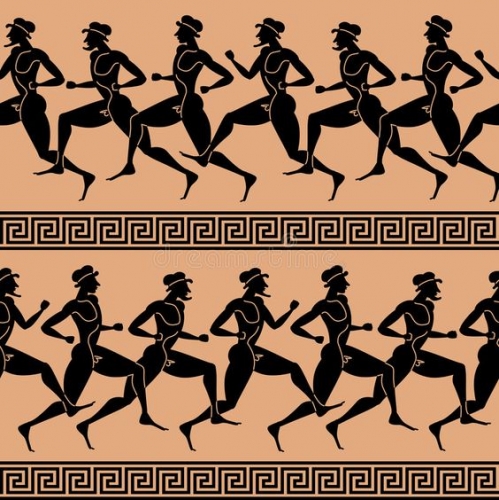
Sport ou religion ?
Alexander Douguine
Source: https://www.geopolitika.ru/article/sport-ili-religiya
Le sport a des origines préchrétiennes et appartient à la culture grecque antique. Avec le théâtre, la philosophie et les systèmes de gestion de la polis, le sport, et en particulier les Jeux olympiques, était l'un des traits caractéristiques de la civilisation grecque. C'est dans cette civilisation qu'il a connu son plus grand développement et la forme sous laquelle il nous est connu aujourd'hui.
L'interprétation grecque du sport était basée sur l'idée de jeu. C'est pourquoi les compétitions elles-mêmes étaient appelées "jeux". Le terme de "jeu" était également attribué à la représentation théâtrale, dans laquelle, tout comme dans le sport, les poètes - créateurs de tragédies et de comédies - s'affrontaient. Le concept de jeu est étroitement lié aux fondements mêmes de la culture, comme le montre J. Huizinga dans son célèbre ouvrage Homo Ludens.
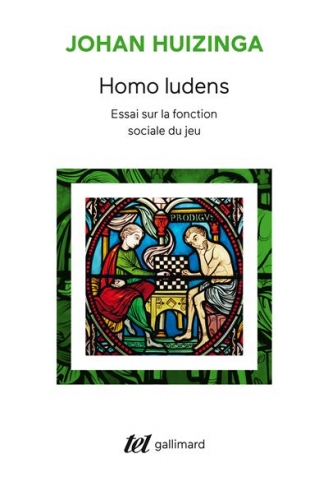
Il s'agit ici de tracer la ligne de démarcation entre l'implication sérieuse dans la contemplation d'un affrontement ou d'une compétition, ainsi que dans la création d'une œuvre dramatique (si l'on parle de théâtre) et le caractère conventionnel d'un tel affrontement. Le sport et le théâtre, et le jeu en tant que tel, présupposent la distance. C'est pourquoi, parmi les dieux grecs, patrons des Jeux olympiques, il n'y avait pas Arès, le dieu de la guerre. C'est le sens du jeu: il s'agit d'une bataille, mais pas d'une bataille réelle, conventionnelle, car elle ne franchit pas une certaine ligne critique. De même que le théâtre ne fait que représenter l'action, le sport, lui, ne fait que représenter la vraie bataille. La culture naît précisément de la prise de conscience de cette limite. Lorsque la société l'intériorise, elle acquiert la capacité de faire des distinctions subtiles dans le domaine des émotions, des sentiments et des expériences éthiques. Le sport et le théâtre procurent du plaisir précisément parce que, malgré le caractère dramatique de ce qui se passe, l'observateur (le spectateur) garde une distance par rapport aux événements qui se déroulent.
C'est cette distance qui forme un citoyen à part entière, capable de séparer strictement la gravité de la guerre de la conventionnalité d'autres types de rivalités. Ainsi, pendant la durée des Jeux olympiques, les cités-États grecques souvent ennemies concluent une trêve (έκεχειρία). C'est à l'occasion de ces jeux que les Grecs ont réalisé leur unité au-delà des contradictions politiques entre les différentes polis. Ainsi, les différents éléments du sport étaient unis par la reconnaissance de la légitimité de la distance.
À l'époque chrétienne, les manifestations sportives du monde hellénistique ont progressivement disparu parce que le christianisme offrait un tout autre modèle de culture et d'unité humaine. Tout y est sérieux et l'autorité ultime est l'Église universelle elle-même, dans laquelle les peuples et les nations sont unis. C'est elle qui porte la paix et la plus grande distance possible, celle qui sépare la terre du ciel, l'homme de Dieu. Face à la mission universelle du Sauveur, les différences entre les peuples (« Juifs et Hellènes ») passaient à l'arrière-plan. Le sport (tout comme le théâtre) a donc probablement perdu de son importance.
La renaissance du sport commence au 19ème siècle dans des conditions totalement nouvelles. Il est intéressant de noter qu'alors que le théâtre, en tant que partie intégrante de la culture antique, réapparaît au tout début de la Renaissance, il faut attendre quelques siècles de plus pour que les Jeux olympiques renaissent. Cela a probablement été entravé par certains aspects esthétiques du sport lui-même, qui contrastaient fortement avec les notions chrétiennes de ce qui constituait un comportement décent.
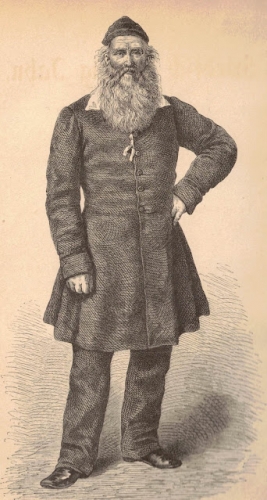
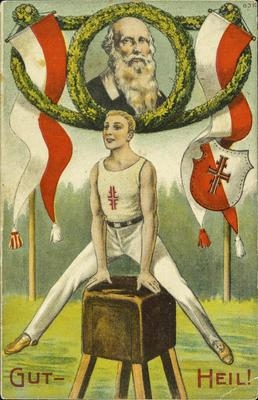
Il est révélateur qu'en Allemagne, le fondateur du mouvement sportif ait été un païen convaincu et un nationaliste radical, Friedrich Ludwig Jahn (1778-1852) (gravure, ci-dessus), qui voyait dans le mouvement sportif et gymnique une base pour diffuser les idées d'unification allemande parmi les jeunes, ce qui est devenu le fondement de l'idéologie du sport. Jahn était un fervent défenseur de l'antiquité germanique et prônait la renaissance des runes. Au 20ème siècle, les idées de Jahn ont continué à se développer dans le cadre du pangermanisme et du mouvement de jeunesse Wandervogel, et ont notamment exercé une influence majeure sur le national-socialisme.
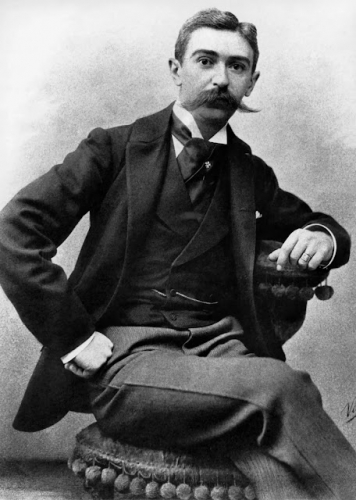
Pierre de Coubertin (photo), qui a revitalisé le mouvement olympique, était également un nationaliste (et en un sens, un "raciste"). L'implication des Grecs, alors en lutte nationale avec l'Empire ottoman, s'inscrit également dans la stratégie globale des puissances européennes visant à transformer les rapports de force géopolitiques. Parallèlement, la franc-maçonnerie européenne, bien que fondamentalement athée, y était également très attentive, sans pour autant être étrangère à une certaine esthétique « païenne ».
De manière générale, il s'avère que le sport, phénomène culturel non chrétien à l'origine, a disparu au cours du Moyen Âge chrétien et est revenu en Europe dans un contexte post-chrétien et même en partie anti-chrétien.
Cela soulève avec une urgence nouvelle le problème suivant: le sport est-il compatible avec le christianisme ? Les passions, l'esthétique et les règles du jeu suscitées par le sport peuvent-elles être combinées avec une vision chrétienne du monde ? Bien entendu, cette question est un cas particulier d'un problème plus fondamental: le christianisme est-il compatible avec le monde moderne en général, construit en général - et pas seulement, bien sûr, le sport - sur les bases de la désacralisation, du matérialisme, de l'évolutionnisme, de la laïcité et de l'athéisme ? Il n'est évidemment pas possible de répondre à cette question de manière univoque, mais il convient de la poser, ne serait-ce que pour lancer un cycle de discussions significatives. De telles discussions pourraient nous aider à mieux comprendre, dans les nouvelles conditions, ce qu'est le sport et, plus important encore, ce qu'est le christianisme.
13:18 Publié dans Sport, Traditions | Lien permanent | Commentaires (0) | Tags : sport, religion, jeux olympiques, grèce antique, alexandre douguine |  |
|  del.icio.us |
del.icio.us |  |
|  Digg |
Digg | ![]() Facebook
Facebook
samedi, 01 juin 2024
Bruckberger et l’abdication de l’Eglise
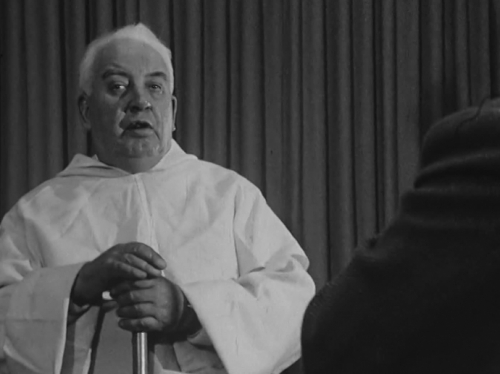
Bruckberger et l’abdication de l’Eglise
par Nicolas Bonnal
J’ai déjà écrit sur son livre-brulot, sa Lettre à Jean-Paul II (pape dont il attendait beaucoup, et qui a masqué plus que ralenti l’effondrement terminal de la bâtisse), et je vais encore insister et compléter. Bruckberger tape lourd et il l’a fait en dépassant Guénon: il voit le mal se glisser dans l’Eglise depuis le treizième siècle. Remarquez, Guénon a parlé de l’affaire des Templiers (mais sans trop viser l’Eglise) dans son Autorité spirituelle, et Huysmans avait écrit que tout dégénérait depuis ce treizième siècle dit des cathédrales. Les plus lucides reliront Dante.
Bruckberger attaque d’abord le Concile de Vatican II – sans qu’on puisse le suspecter de traditionalisme ou autre.
«Commettez allégrement tous les crimes ou laissez allégrement commettre tous les crimes contre la foi, contre les sacrements, contre les commandements de Dieu, ne vous laissez surtout pas intimider ! Invoquez publiquement le concile, l'esprit conciliaire, les réformes soi-disant issues du concile, et vous voilà aussitôt, non seulement justifié, mais hors de toute atteinte, hors de cause, au-dessus de tout Soupçon; vous échappez automatiquement à toute juridiction, rien ne peut vous être reproché.»
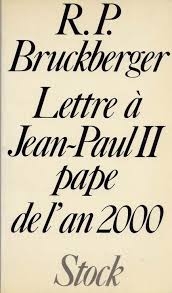 Puis notre courageux auteur (scénariste du Dialogue des carmélites qui résonne comme une Fin initiatique de la France médiévale – façon Adrienne-Sylvie de Nerval) s’est rendu compte que tout allait déjà mal depuis un certain temps tout de même :
Puis notre courageux auteur (scénariste du Dialogue des carmélites qui résonne comme une Fin initiatique de la France médiévale – façon Adrienne-Sylvie de Nerval) s’est rendu compte que tout allait déjà mal depuis un certain temps tout de même :
« Je pense souvent à l’Angleterre au XVIème siècle, au moment où, sous la pression de la monarchie, l'Eglise d'Angleterre s'est séparée de Rome, sans que l'ensemble du peuple catholique anglais s'en aperçoive. Il y a eu le chancelier Thomas More qui a versé son sang. Mais il n'y a eu qu'un évêque, un seul, l'évêque Fischer de Rochester (tableau, ci-dessous), qui a osé dénoncer l'imposture du changement de religion. Lui aussi est mort martyr. Combien y avait-il d'évêques en Angleterre en ce temps-là ? »
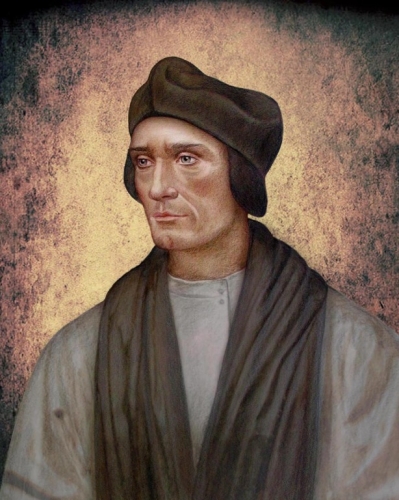
Depuis combien de siècles en fait le roi est-il nu ?
On se rend compte que déjà il n’y avait pas trop de héros. Le christianisme était depuis Innocent III au moins affaire d’organisation, de surveillance et de répression, pas de grands élans.
Mais restons-en au Concile :
« De quoi s'agissait-il, sinon de changer la substance de la religion catholique, de rejeter l'autorité du pape, mais encore plus de transformer le sacrifice de la messe en un service de communion ? Je pense que beaucoup de ces évêques étaient de braves gens. Malheureusement en certaines circonstances, et quand on a des responsabilités de commandement, être un brave homme ne suffit pas. Quant au bon peuple, il a tendance à suivre ses chefs immédiats… »
Le vernis craquait déjà (Bayle, Fontenelle…) sous Louis XIV. C’est La Bruyère qui parlant du dévot écrit dans les Caractères que c’est un homme qui sous un roi athée serait athée. Et Feuerbach qui parle du masque de la religion qui a remplacé la religion. Macluhan explique cela avec son homme typographique. On reprogramme l’occidental typographique depuis Gutenberg, c’est tout.
Bruckberger compare l’Eglise à une entreprise qui a mal tourné et masque son bilan ou décide de faire autre chose. Entreprise qui écrirait pince-sans-rire :
« MESURES A LONG TERME
REMPLACER DISCRETEMENT LE PRODUIT ACTUEL PAR UN PRODUIT NOUVEAU, QUI ASSURERA LA RECONVERSION ET L'AVENIR DE L'ENTREPRISE. »
Ensuite Bruckberger parle de complot des technocrates à l’intérieur de l’Eglise (technocrate me semblerait presque un compliment, mais bon…) :
« La leçon de la parabole est claire. Quelle qu'ait été l'intention de Jean XXIII et de Paul VI - et cette intention n'a aucune espèce d'importance en regard de ce qui s'est passé dans la réalité il y a eu complot de technocrates à l'intérieur de l'Eglise pour, à l'occasion et sous le couvert du dernier concile, purement et simplement changer la religion catholique, en changer discrètement mais sûrement la substance. C'est ce complot que nous dénonçons sans relâche… »
Il cite même un journaliste plus conscient du problème que le bourgeois catho de base (le seul à « pratiquer » - mot atroce -, le reste ayant disparu, je veux dire le peuple, notamment paysan, de Farrebique) :
« Alain Woodrow est un autre chroniqueur religieux du Monde. Il a publié un livre intitulé : l’Eglise déchirée. Dès la première page, il écrit : « Le christianisme est en miettes, morcelé à la suite de schismes religieux et politiques qui ont jalonné son histoire; il est en train de se dissoudre sous l'action corrosive des sciences humaines, de se transformer en un folklore de la société actuelle. » Humainement, c'est très bien vu et c'est incontestable. »
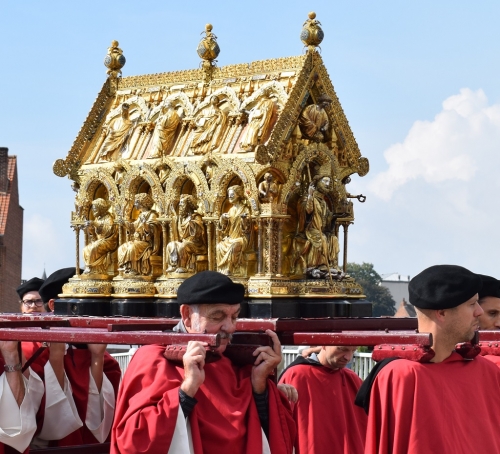
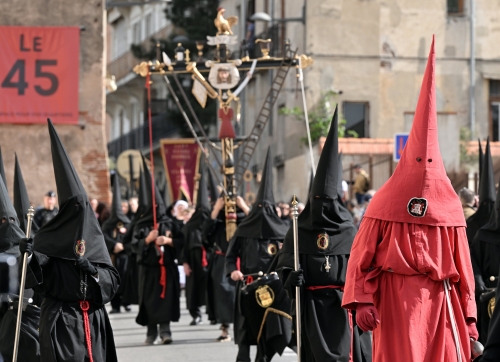
Sauf que le folklore suppose des costumes, du savoir-faire, des danses, des efforts et des sacrifices physiques, tout ce qui a disparu...
Bien entendu, tout va bien. Tout va toujours très bien:
« Bien entendu, les évêques français, qui l'ont menée au point d'exténuation où elle se trouve, ne l'admettront jamais. Ils vous affirmeront dur comme fer que l'Eglise de France ne s'est jamais mieux portée. Ils vous joueront l'envers du Malade imaginaire. L'Eglise de France en est au dernier état d'un cancer généralisé, ils vous jureront la main sur le cœur qu'elle va très, très bien. »
C’est le raisonnement des Shadocks de notre jeunesse : il n’y a pas de solution car il n’y a pas de problème.
Bruckberger va citer « le grand savant laïc » (entièrement d’accord, voyez mes textes) Lévi-Strauss qui remarque timidement dans une interview:
« C. LÉVI-STRAUSS. C'est l'appauvrissement du rituel qui me frappe. Un ethnologue a toujours le plus grand respect pour le rituel. Et un respect d'autant plus grand que ce rituel plonge ses racines dans un lointain passé. Il y verra le moyen de rendre immédiatement perceptibles un certain nombre de valeurs qui toucheraient moins directement l’« âme » si l'on s'efforçait de les faire pénétrer par des moyens uniquement rationnels. Louis XIV a dit, dans son testament, en s'efforçant de justifier le cérémonial de la Cour, des choses assez profondes : qu'on ne peut pas demander à tout le monde d'aller au fond des choses. Il faut qu'il y ait des expressions sensibles. »
Lévi-Strauss ajoute plus loin (car le journaliste est bouché…) :
« J’entends bien que tout rituel doit évoluer. Une société religieusement vivante serait une société capable d'enrichir son rituel. Mais les tentatives de renouvellement - du moins ce que vois quand j'assiste à des messes d'enterrement ou de mariage ne paraissent pas très convaincantes. »
Ce pas très convaincant, le bourgeois en fait son ordinaire quand il célèbre des mariages à 100.000 ou 200.000 euros. Bruckberger ajoute :
« On ne peut dire plus clairement, ni avec plus de prudence et de gentillesse, qu'en France, la réforme liturgique issue du dernier concile est un fiasco. Un grand savant agnostique s'en dit troublé. Nos évêques, eux, n'en sont nullement troublés : même si elle devait entraîner la mort du patient, ils nous forceraient à tenir la bouche ouverte jusqu'à ce que toute la potion soit avalée. Un grand savant explique ce qu'Aristote nous avait depuis longtemps appris : qu'il n'est rien dans l'intelligence qui ne soit d'abord tombé sous le sens, et que tout ce qui touche la sensibilité, surtout si ça vient de loin, doit être modifié avec la plus grande prudence. Les évêques n’en ont cure… »
Les évêques n’ont cure de rien. Remarquez, c’est ce que dit Léon Bloy dans tout son journal, et nous sommes toujours là, alors pourquoi paniquer ?
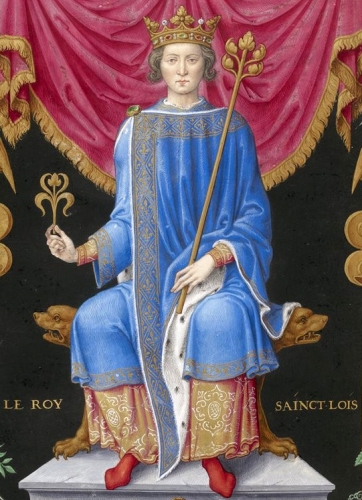
Puis il y a plus grave. Bruckberger remonte dans le Temps pour constater comme je le fais souvent que les choses étaient pourries depuis longtemps ; les jésuites, les temps baroques ? Non, non, le siècle de Saint-Louis avec son Inquisition et ses croisades antichrétiennes dévastatrices :
« Bernanos avait coutume de remarquer qu'une civilisation tombe en décadence quand la fin y justifie les moyens. En ce sens il y a longtemps que la civilisation chrétienne est en décadence. La décadence a commencé au XIIIème siècle avec l'Inquisition, elle a atteint son zénith avec la casuistique jésuite aux XVIème et XVIIème siècles. Mais nous avons dépassé ce stade, nous l'avons dépassé de très loin. »
Et de parler de Himmler et de Lénine avec l’Inquisition :
«Aujourd'hui, on sait de manière certaine que Himmler, chef et organisateur de la Gestapo, Lénine lui-même, ont lu et étudié le Manuel des inquisiteurs. Le système était là tout entier : ils n'ont eu qu'à l'utiliser sur une immense échelle et à l'industrialiser. Mais le système était là, ce n'est pas eux qui l'ont inventé, il était là, complet, exprimé dans une langue juridique admirable: avec l'usage de la torture physique pour arracher des aveux, le conseil de dire le faux pour savoir le vrai ; l'instigation à la délation et la récompense du délateur. Ce n'est pas parce que les ennemis de l'Eglise ont maintenant utilisé ce système sur une très grande échelle, à l'échelle de la « mass production » et de la « mass distribution », ce n'est pas parce que, en notre siècle, ils ont industrialisé la torture et la délation, industrialisé dans les camps de concentration et dans l'archipel du Goulag le mensonge et la violence, que l'origine de ce système en est moins souillée. Et l'origine de ce système, c'est l’Inquisition officiellement patronnée par les papes… »
Michelet avait tout dit. Je me cite :
« Tout finit au douzième siècle ; le livre se ferme… », termine Michelet qui remarque qu’un système périclitant comme celui de l’Eglise – ou de la démocratie bourgeoise à notre époque - a tendance à devenir totalitaire et dangereux :
« Les anciens conciles sont généralement d’institutions, de législation. Ceux qui suivent, à partir du grand concile de Latran, sont de menaces et de terreurs, de farouches pénalités. Ils organisent une police. Le terrorisme entre dans l’Église, et la fécondité en sort. »
La dure ou molle réalité c’est qu’on se fout de tout (à une époque où le vaccin Bourla devient un acte d’amour…) :
« Désormais tous les crimes sont possibles : on les trouvera aussi naturels que de voir l'eau couler sous les ponts. La civilisation chrétienne est morte. Les évêques français l'ont portée en terre collégialement. Ils ne savent plus ce qu'ils font. Car on ne voit pas ce qui peut remplacer la civilisation chrétienne. Quand elle est morte, c'est aussi l'humanité qui meurt en l’homme. »
Le terme (sic) qui résonne le mieux alors, c’est celui d’abdication :
« Vous apprendrez à connaître nos évêques de France, nos chefs spirituels. Vous ne serez pas long à voir qu'ils ont pratiquement abdiqué cette mission essentielle de l’Eglise, de donner aux hommes des raisons de vivre, et éventuellement de mourir. Bernanos disait d'un clergé devenu socialiste qu'il fait ainsi la preuve qu'il ne sait plus parler qu'aux ventres. Voilà pourquoi la voix de ce clergé est si confuse, elle n'a aucune raison d'être distinguée, dans le concert cacophonique de toutes ces voix qui ne s'adressent jamais en l'homme qu'à Son ventre : ses puissances digestives et sexuelles. Comme si l’homme n'était rien d'autre. »
Abdication c’est peut-être trop noble, cela fait penser à Charles X. Parlons de retraite alors.

Un autre bon chrétien, mort comme tant d’autres en quatorze, écrivait avant la Grande Guerre:
« C’est toujours le système de la retraite. C’est toujours le même système de repos, de tranquillité, de consolidation finale et mortuaire. Ils ne pensent qu’à leur retraite, c’est-à-dire à cette pension qu’ils toucheront de l’État non plus pour faire, mais pour avoir fait. Leur idéal, s’il est permis de parler ainsi, est un idéal d’État, un idéal d’hôpital d’État, une immense maison finale et mortuaire, sans soucis, sans pensée, sans race. Un immense asile de
vieillards. Une maison de retraite. Toute leur vie n’est pour eux qu’un acheminement à cette retraite, une préparation de cette retraite, une justification devant cette retraite. Comme le chrétien se prépare à la mort, le moderne se prépare à cette retraite. Mais c’est pour en jouir, comme ils disent. »
Sources principales :
Charles Péguy, « Note conjointe sur M. Descartes et la philosophie cartésienne » (1914, posthume), dans Œuvres complètes de Charles Péguy, éd. La Nouvelle Revue française, 1916-1955, t. 9, p. 250
https://www.amazon.fr/DANS-GUEULE-BETE-LAPOCALYPSE-MONDIA...
https://lecourrierdesstrateges.fr/2022/11/30/le-reverend-...
18:21 Publié dans Traditions | Lien permanent | Commentaires (0) | Tags : religion, catholicisme, vatican ii, r. p. bruckberger |  |
|  del.icio.us |
del.icio.us |  |
|  Digg |
Digg | ![]() Facebook
Facebook
lundi, 05 février 2024
Ce que Max Weber n'a pas dit
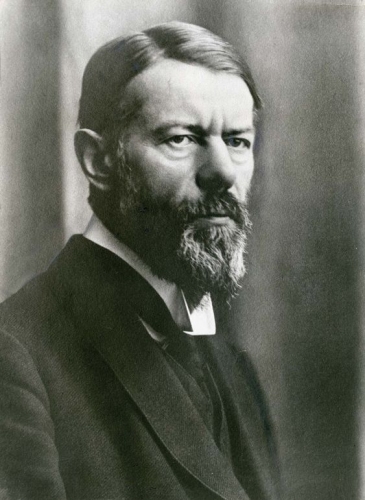
Ce que Max Weber n'a pas dit
Leonid Savin
Source: https://www.geopolitika.ru/article/o-chyom-ne-dogovoril-maks-veber
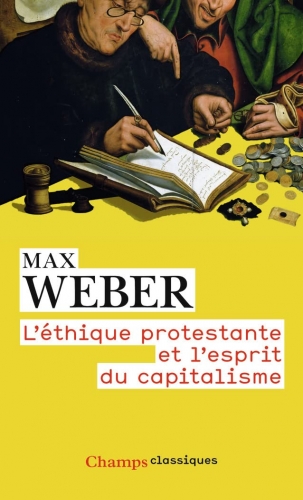 Dans son ouvrage "L'éthique protestante et l'esprit du capitalisme" [i], Max Weber a établi un lien entre l'émergence du capitalisme industriel bourgeois et son organisation rationnelle du travail. [Max Weber a établi un lien entre l'émergence du capitalisme industriel bourgeois, avec son organisation rationnelle du travail, la bourgeoisie occidentale dans son ensemble, dans toute son unicité, et les attitudes religieuses de diverses sectes protestantes, qui ont vu le jour en Europe du Nord et ont ensuite émigré vers le Nouveau Monde, où elles ont commencé à construire avec enthousiasme une "cité sur une colline".
Dans son ouvrage "L'éthique protestante et l'esprit du capitalisme" [i], Max Weber a établi un lien entre l'émergence du capitalisme industriel bourgeois et son organisation rationnelle du travail. [Max Weber a établi un lien entre l'émergence du capitalisme industriel bourgeois, avec son organisation rationnelle du travail, la bourgeoisie occidentale dans son ensemble, dans toute son unicité, et les attitudes religieuses de diverses sectes protestantes, qui ont vu le jour en Europe du Nord et ont ensuite émigré vers le Nouveau Monde, où elles ont commencé à construire avec enthousiasme une "cité sur une colline".
Au début de l'ouvrage, Max Weber cite Benjamin Franklin comme exemple de produit de l'esprit capitaliste américain, en analysant sa déclaration sur le fait de "faire de l'argent avec les gens". Mais Max Weber s'intéressait davantage à l'aspect économique de la question - l'éthique de l'économie, les thèmes des professions et de l'esprit d'entreprise, bien qu'il ait également inclus dans son étude les aspects irrationnels de la religion protestante - des concepts tels que la vocation, l'ascétisme, etc.
L'étude de Max Weber peut être considérée comme inachevée, puisqu'à la fin du texte, il identifie lui-même les domaines à approfondir, à analyser, et la mesure dans laquelle le protestantisme ascétique a influencé les facteurs sociaux et économiques, ainsi que la culture moderne dans son ensemble.
Plus de cent ans après la publication de ce livre, bon nombre des tâches définies restent d'actualité, car le protestantisme est devenu un phénomène mondial et ses avant-postes sont apparus là où ils n'avaient jamais existé auparavant, des jungles d'Amérique latine aux jungles d'Asie du Sud-Est et d'Afrique. Le contexte politique est également important, à savoir l'influence de l'idéologie protestante, sous une forme ou une autre, sur les processus politiques, la prise de décision dans les plus hautes sphères du pouvoir et la projection de la vision protestante du monde à travers le prisme de la gouvernance mondiale. À cet égard, les États-Unis et leurs structures de pouvoir, y compris les mécanismes de politique intérieure et étrangère, y compris l'utilisation de la force militaire, sont évidemment intéressants.
On sait que la politique américaine est profondément liée à la religion et que l'importance de ce facteur réside dans le fait qu'il façonne l'identité et les valeurs politiques. Ce sont là quelques-uns des principaux aspects qui influencent la prise de décision des électeurs américains lors des élections. Les opinions d'un politicien sur diverses questions d'actualité dans le pays déterminent si les personnes religieuses voteront pour lui ou pour elle [ii].
Mais tout cela ne se limite pas aux affaires intérieures. L'exceptionnalisme américain, que nous connaissons depuis la fin du 19ème siècle à travers des conséquences géopolitiques allant de la guerre avec l'Espagne et la prise des Philippines au bombardement atomique des villes japonaises d'Hiroshima et de Nagasaki jusqu'à l'invasion de l'Irak en 2003 (rappelons que George W. Bush Jr, justifiant cette intervention, a déclaré publiquement que "Dieu m'a dit de frapper l'Irak") est un produit de l'idéologie protestante.
En effet, dès la création de l'État, "la pensée religieuse aux États-Unis a considéré l'État naissant comme un don du Créateur et les Américains comme un peuple élu accomplissant la volonté de Dieu". Dans le même temps, le puritanisme, qui avait perdu son monopole idéologique dans les colonies de Nouvelle-Angleterre dès la première moitié du 18ème siècle, a réussi à tracer une voie historique pour l'avenir spirituel de la nation américaine [iii].
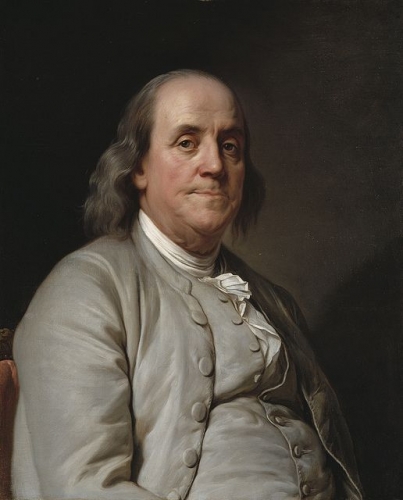
Le même Benjamin Franklin (ci-dessus) mentionné plus haut, et ses propres écrits, sont un exemple éloquent de la manière dont l'éthique protestante a façonné la réalité sociale et politique. Il s'agit à la fois d'une libération de l'oppression (du père ou de la métropole, et plus tard d'un complexe de "libération" obligatoire des autres, même s'ils ne le veulent pas), de la glorification des succès obtenus et de la position gagnée dans la société (même si ce n'est pas à un prix très juste), ainsi que de la négation des structures de pouvoir traditionnelles et de l'imposition d'obligations contractuelles. C'est ainsi que le virus de la destruction de toute autorité, tant aux États-Unis que dans le reste du monde, a été implanté. Mais comme les Américains se considéraient toujours comme un peuple choisi par Dieu, également sur la base d'un traité ou d'une alliance avec Dieu (covenant), seuls les Américains pouvaient imposer des obligations conventionnelles à d'autres nations.
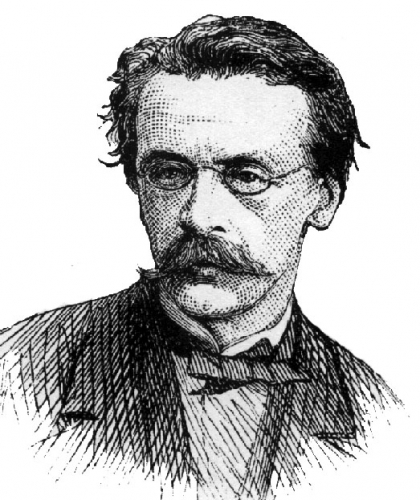
C'est ainsi qu'en 1839, John Louis O'Sullivan (portrait), rédacteur en chef de l'United States Magazine and Democratic Review, a formulé dans un article le principe de la Destinée Manifeste, qui est devenu l'étoile directrice de l'expansionnisme américain. Deux ans plus tard, O'Sullivan entame sa carrière politique et, en 1851, il participe à la tentative de prise et d'annexion de Cuba. Trois ans plus tard, il devient diplomate et occupe le poste d'ambassadeur des États-Unis au Portugal. Ses idées sont largement approuvées et soutenues. Même certains auteurs étrangers ont trouvé des liens similaires entre la prédestination divine et le destin du peuple américain. "Dieu lui-même leur a donné les moyens de rester libres et égaux en les établissant sur un vaste continent", écrit Alexis de Tocqueville, homme politique et ministre des affaires étrangères français, dans son livre De la démocratie en Amérique [iv].
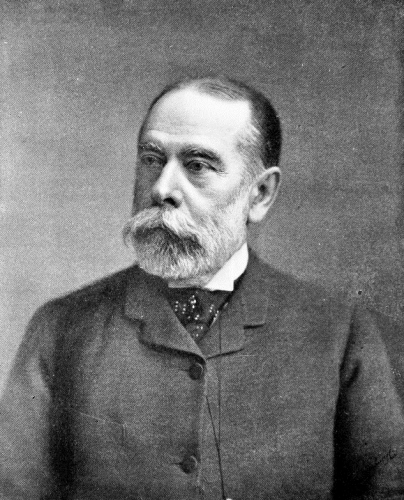
Le protestantisme a également jeté les bases du concept de "Frontière" aux États-Unis, un phénomène qui a conduit à la destruction d'un grand nombre de tribus indiennes indigènes et à l'avancée des colons vers l'océan Pacifique. Comme l'écrit polémiquement Edwin Godkin (photo, ci-dessus) dans son article "Aristocratic Opinions on Democracy" (1865), "c'est l'individualisme agressif et égoïste, le mépris de l'ordre public et le matérialisme philistin du Frontierman qui ont empêché la démocratie américaine d'atteindre une condition plus exaltée" [v].
Au milieu du 20ème siècle, un concept stable de protestant blanc anglo-saxon - WASP - s'est déjà développé, qui a été associé à l'élite américaine et à son attitude dédaigneuse (en termes simples : à son racisme) à l'égard des représentants d'autres peuples, principalement les Africains et les Latino-Américains. Parallèlement, les Blancs anglo-saxons représentaient environ 55 % de la population américaine durant cette période. Aujourd'hui, l'équilibre démographique s'est déplacé en faveur des Noirs et des personnes de couleur, y compris les migrants des pays asiatiques, mais les protestants anglo-saxons continuent d'être à la tête de la politique du pays. Et même lorsque les Noirs accèdent à l'establishment, ils se comportent comme des vampires : souvenez-vous de Colin Powell, une éprouvette à la main, déclarant qu'il s'agissait des "armes chimiques de Saddam Hussein", de la secrétaire d'État Condoleezza Rice et du premier président noir, Barack Obama. Tous trois sont d'ailleurs protestants.

Un autre exemple typique du comportement protestant est celui du président Ronald Reagan, qui a inventé l'expression "empire du mal" à propos de l'Union soviétique. Cette expression a été rapidement reprise et est toujours utilisée par les politologues et les journalistes américains, aujourd'hui à propos de la Fédération de Russie.
En ce qui concerne les indicateurs statistiques. Selon les données des dernières décennies, la majorité des membres du Sénat et de la Chambre des représentants du Congrès américain sont des protestants de diverses confessions. Selon une étude du Pew Research Centre, le 118ème Congrès américain compte 303 protestants, dont le plus grand nombre est constitué de baptistes (67), suivis par les méthodistes (31), les presbytériens (25), les anglicans (22) et les luthériens (22). Il y a aussi des congrégationalistes, des pentecôtistes, des restaurationnistes, des adventistes, des réformés et des piétistes, mais le plus grand nombre (107) sont ceux qui n'ont pas spécifié leur branche du protestantisme [vi].
À la Chambre des représentants, les républicains comptent 152 protestants et les démocrates 95 (soit 56,9 % de l'effectif total), tandis qu'au Sénat, les républicains comptent 35 sièges occupés par des protestants et les démocrates 21 (56 %), mais il y a presque deux fois moins de catholiques parmi les représentants des deux partis au sein du corps législatif.
Par ailleurs, la majorité des protestants "indécis" au Congrès est particulièrement intéressante, car parmi eux se trouvent aussi bien des déistes ordinaires que des représentants de mouvements radicaux, par exemple les dispensationalistes.
Bien que le mouvement dispensationaliste ait été développé à l'origine en Angleterre, c'est aux États-Unis que cette étrange doctrine a trouvé un soutien de masse. Selon la doctrine du dispensationalisme, les destins d'Israël et de l'Eglise chrétienne prédéterminés par Dieu sont séparés, et après la construction du troisième Temple juif sur le Mont du Temple à Jérusalem, la "Grande Tribulation" commencera. C'est pourquoi 144.000 juifs se convertiront au christianisme. La "Grande Tribulation" a été interprétée par les Dispensationalistes dans le contexte des prophéties sur la phase finale de l'ère apocalyptique, au cours de laquelle tous les chrétiens seront physiquement "enlevés" au ciel pour rencontrer Jésus, où ils survivront en toute sécurité à la période de bouleversements terrestres [vii].
 Il est intéressant de noter qu'à l'époque de la "Guerre des étoiles", sous la présidence du presbytérien restaurationniste Ronald Reagan, ces idées n'étaient plus perçues sous un jour aussi fantastique qu'elles l'étaient avant l'exploration de l'espace par l'homme, mais comme des événements très réels de l'avenir. Mais aujourd'hui encore, il existe aux Etats-Unis un certain nombre de partisans de cette idée extravagante.
Il est intéressant de noter qu'à l'époque de la "Guerre des étoiles", sous la présidence du presbytérien restaurationniste Ronald Reagan, ces idées n'étaient plus perçues sous un jour aussi fantastique qu'elles l'étaient avant l'exploration de l'espace par l'homme, mais comme des événements très réels de l'avenir. Mais aujourd'hui encore, il existe aux Etats-Unis un certain nombre de partisans de cette idée extravagante.
Les dispensationalistes font partie d'un phénomène plus large connu sous le nom de "sionisme chrétien". Dans une version plus douce que le dispensationalisme, le sionisme chrétien est particulièrement répandu parmi les hauts responsables du Parti républicain, notamment l'ancien président Donald Trump et l'ancien secrétaire d'État Michael Pompeo. D'où le soutien à Israël, notamment le déplacement de l'ambassade à Jérusalem, la reconnaissance de la souveraineté israélienne sur le plateau du Golan et la promotion des "accords d'Abraham". Et même la position inarticulée actuelle de l'administration de la Maison Blanche, avec ses demi-mesures concernant les actions d'Israël en Palestine, est directement liée au lobby "sioniste chrétien" au sein de l'establishment et de l'État profond.
Il ne fait aucun doute que ce complexe spécifique associé aux enseignements de diverses sectes protestantes continuera d'exercer une influence durable sur la politique américaine, y compris sur le vecteur de la politique étrangère lié à la Russie, que les États-Unis considèrent depuis la fin du XIXe siècle comme une sorte d'antipode idéologique et qu'ils veulent "corriger" en y envoyant diverses missions protestantes. Cette ligne s'est particulièrement affirmée dans les années 1990, qui ont nécessité l'intervention de l'État et des confessions traditionnelles.
En même temps, il est évident que les scénarios d'influence religieuse avec des objectifs politiques américains se poursuivront à l'avenir. Et dans l'éventualité de l'arrivée au pouvoir d'une administration républicaine aux États-Unis, cette pratique deviendra l'outil le plus important de l'influence idéologique américaine sur les pays du Sud, la Chine et la Fédération de Russie.
Notes :
i - tower-libertas.ru
ii - na-journal.ru
iii - cyberleninka.ru
iv - Savin L.V. Ordo Pluriversalis. La renaissance de l'ordre mondial multipolaire. - Moscou : Maison d'édition "Oxygen", p. 196.
v - Kristol, Irving. Vers les résultats du vingtième siècle // Aeon : Almanach de l'ancienne et de la nouvelle culture. Vyp. 10. - Moscou : Académie russe des sciences, 2014, p. 139.
vi - www.pewresearch.org
vii - www.geopolitika.ru
20:25 Publié dans Philosophie | Lien permanent | Commentaires (0) | Tags : philosophie, max weber, protestantisme, protestantisme américain, religion, états-unis |  |
|  del.icio.us |
del.icio.us |  |
|  Digg |
Digg | ![]() Facebook
Facebook
mercredi, 03 janvier 2024
Ecclésiologie russe : les étapes de l'historicisme orthodoxe russe
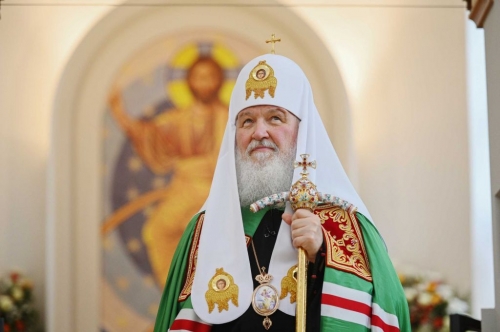
Ecclésiologie russe: les étapes de l'historicisme orthodoxe russe
Alexandre Douguine
Source: https://www.geopolitika.ru/en/article/russian-ecclesiology-stages-russian-orthodox-historicism
L'adoption de l'orthodoxie par le grand-duc de Kiev Vladimir a été le point de départ de l'historicité chrétienne en Russie, qui couvre presque toute l'histoire de ce pays - à l'exception de la période soviétique et de l'ère des réformes libérales. Cette historicité était elle-même un processus complexe et multidimensionnel, qu'il serait erroné de décrire comme une pénétration progressive et unidirectionnelle de la culture orthodoxe byzantine dans l'environnement populaire, parallèlement au remplacement des idées préchrétiennes ("païennes"). Il s'agit plutôt de différentes phases de la synthèse temporelle entre le byzantinisme et la civilisation démétriaque slave orientale, phases déterminées par la corrélation différente des structures principales - l'idéologie byzantine au niveau de l'élite et la réception du christianisme par le peuple en tant que tel.
Nous pouvons distinguer les phases suivantes, déterminées par les différentes configurations de cette relation.
- Début de la synthèse et de la formation du noyau principal de la perception russo-chrétienne (10ème-12ème siècles - centralisme kiévien) ;
- Différenciation primaire dans la formation de la tradition orthodoxe russe en fonction des pôles de la fracture du monde russe (plusieurs siècles) ;
- Formation de deux pôles de la tradition orthodoxe à l'époque mongole - la Russie de Vladimir (Moscou) et le Grand-Duché de Lituanie (durée: plusieurs siècles) ;
- Formation de l'orthodoxie moscovite (Moscou la troisième Rome) - plusieurs siècles ;
- Tentative de "purification" de l'orthodoxie de tout ce qui est "païen" (cercle de Bogolyubtsy), modernisation et schisme (un siècle) ;
- Orthodoxie moderniste, influence de la Russie occidentale et formation parallèle de vieux croyants dans l'Empire russe au 18ème siècle ;
- Slavophilie et conservatisme orthodoxe (aînés, renouveau du byzantinisme) - fin du 19ème siècle ;
- Sophistique, recherche religieuse des personnages de l'âge d'argent et projets d'unification - fin du 20ème siècle ;
- Persécution et marginalisation de l'Église pendant la période soviétique (1917-1991) ;
- L'abolition de l'idéologie athée normative et le retour partiel à l'orthodoxie pendant les réformes libérales et les premières décennies du troisième millénaire.
Chacune de ces périodes historiques avait sa propre sémantique et sa place dans la structure générale de l'histoire russe. Dans le même temps, la relation entre la foi populaire et l'idéologie officielle a également changé, ce qui a créé une configuration particulière des proportions de l'orthodoxie russe dans chacune des phases.
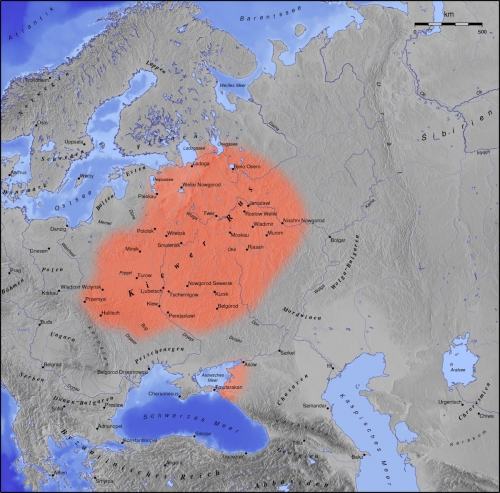

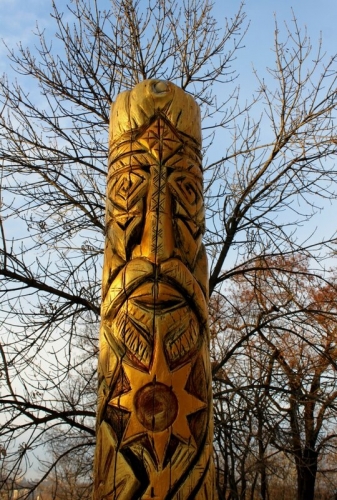
La première phase se caractérise par une corrélation assez lâche entre les éléments chrétiens et pré-chrétiens, lorsque les élites - y compris la prêtrise orthodoxe, dirigée par l'épiscopat byzantin et, plus largement, les maîtres grecs - étaient généralement tolérantes à l'égard des croyances populaires et ne recouraient à la répression que lorsque les païens remettaient directement en question la nouvelle religion, appelant à la rébellion contre elle et à un retour au polythéisme. Cette tolérance initiale a permis au noyau originel de l'orthodoxie russe d'émerger, de construire des structures profondes de correspondances et d'homologies sémantiques entre la tradition indo-européenne (mais surtout paysanne !) des anciens Slaves et la religion chrétienne sous sa forme byzantine.
Au cours de la deuxième phase, cette vision du monde, qui s'était développée dans ses grandes lignes et était commune à toutes les parties de la Rus' kiévienne, a commencé à se diviser partiellement, répétant au niveau culturel la géographie politique de la fragmentation. Cependant, l'homologie religieuse et politique était partielle et relative, et la communauté religieuse et culturelle en général l'emportait sur l'éloignement progressif de la Rus' occidentale (Galicie-Volhynie et Polotsk) de la puissance croissante de la Rus' orientale (Rostov-Suzdal, plus tard Vladimir), ainsi que sur un certain isolement de la Rus' septentrionale (Novgorod et Pskov). Cependant, dès cette époque, une division stylistique entre les deux pôles de l'orthodoxie russe - l'occidental et l'oriental - se dessine de manière très grossière et presque imperceptible. Sur l'orthodoxie occidentale, les nations catholiques voisines (principalement les Polonais et les Hongrois, ainsi que Rome elle-même) ont exercé une influence beaucoup plus grande que sur la Russie de Vladimir, qui est restée plus étroitement liée non seulement à Byzance, mais aussi au noyau de l'orthodoxie russe formé au cours de la première phase. On pourrait dire que le centre même de la tradition orthodoxe russe a déjà commencé à se déplacer vers l'est à ce stade.
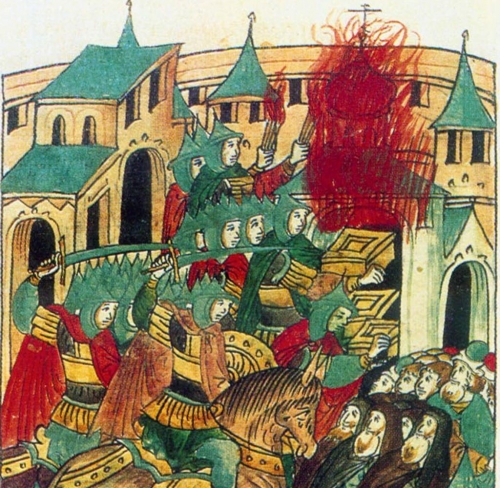
À l'époque mongole, cette division, apparue au cours de la deuxième phase de l'historicité orthodoxe, est devenue encore plus prononcée, car la Russie orientale et la Russie occidentale se sont retrouvées dans le contexte de deux polarités différentes: la Horde d'Or et le Grand-Duché de Lituanie, qui a rejoint la Pologne catholique après l'Union de Krewo/Kreva. Alors que les Mongols, dont les souverains se sont convertis à l'islam après Khan Uzbek (vers 1283 - 1341), étaient tolérants ou du moins indifférents à l'orthodoxie de leurs sujets russes, la Pologne catholique, au contraire, cherchait activement à influencer la population russe et ses idées religieuses. Cela a exacerbé les différences, mais n'a pas conduit à une perte de l'unité de base. Parallèlement, en Russie occidentale, l'idéologie officielle des élites s'est rapprochée du catholicisme, tandis que la masse du peuple - les paysans - est restée fermement attachée à la tradition orthodoxe, ce qui a entraîné une tension particulière entre l'idéologie officielle et la vision du monde des gens du peuple dans cette partie du monde russe. En Russie orientale, pendant la période mongole, cette stratification ne s'est pas produite, ce qui s'est pleinement manifesté au cours de la phase suivante.
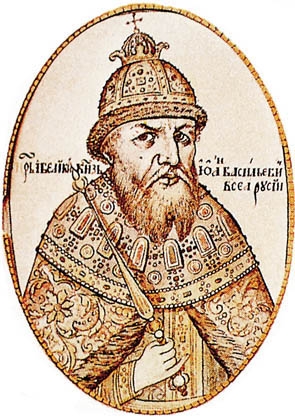
La quatrième phase s'est manifestée de manière particulièrement frappante en Russie moscovite, où une nouvelle idéologie s'est formée après la fin de la domination de la Horde d'or: le catéchisme russe (Moscou - la troisième Rome), lorsque la chute de Byzance et la disparition presque simultanée de la Horde d'or ont entraîné le transfert de la mission de l'orthodoxie universelle à l'État et au peuple russes. Dans ce cas, la spécificité de l'orthodoxie russe (dans sa forme fondamentale, déjà kyivane et préservée en Russie orientale) a été réalisée comme preuve de l'élection eschatologique. Nous trouvons quelque chose de similaire un peu plus tôt chez les Bulgares (au cours du Premier et du Second Empire) et dans la puissance serbe, en particulier à l'époque de Dusan le Fort (1308 - 1355) [1], et dans une certaine mesure également dans la Valachie de Vlad III (1431 - 1476) et la Moldavie de Stefan cel Mare [2] (1429 - 1504). Au cours de cette phase, et en particulier à l'époque d'Ivan IV (1530-1584), on assiste à une harmonisation du christianisme populaire et officiel, dans un nouveau tournant qui propose à nouveau la synthèse entre l'élite et le peuple du début de la période kiévienne. Ici, non seulement la conscience chrétienne atteint les plus hautes profondeurs de la culture populaire, mais l'esprit populaire s'élève également jusqu'aux plus hauts sommets du pouvoir d'État, influençant la personnalité du souverain lui-même, qui devient le premier tsar russe de l'histoire (auparavant, le souverain suprême de l'État russe était le grand-duc).
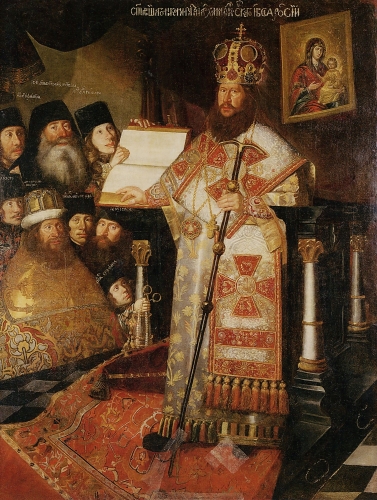
Au cours de la phase suivante, qui comprend la période des troubles et les premiers Romanov, la synthèse moscovite de l'ère du Terrible commence à s'affaiblir progressivement. Le cercle bogolien, au sein duquel les figures de proue du schisme à venir, le patriarche Nikon (1605 - 1681) (tableau, ci-dessus) et le protopope Avvakum (1620 - 1682), se créent autour d'Alexis Michailovitch (1629 - 1676), se donne pour tâche une nouvelle purification du christianisme, visant à l'expurger des résidus de la tradition populaire, tâche de purification qui reçoit cependant une interprétation différente de la part des partisans de la révision des livres et des réformes ecclésiastiques de Nikon et des Vieux-Croyants qui se rangent du côté d'Avvakum. Les premiers sont favorables à une certaine modernisation de la tradition dans l'esprit de l'approche russo-occidentale (à des fins pragmatiques pour faciliter la conquête des terres russo-occidentales par la Pologne), tandis que les seconds, au contraire, tiennent fermement à l'orthodoxie moscovite et à ses fondements, car ils y voient la garantie de l'accomplissement du choix et de la mission katekonique de la Russie. Tout cela aboutit à une scission, dans laquelle l'orthodoxie officielle, qui a remporté la victoire au sein de l'élite, poursuit la ligne de la modernisation bien plus que Nikon lui-même, qui avait initié les réformes, ne l'avait prévu, et l'ancienne croyance se répand largement parmi le peuple, bien qu'elle ne prenne pas un avantage décisif (en grande partie en raison de la répression des vieux croyants par l'État). Ainsi, la "nouvelle croyance" adopte une position de plus en plus hostile à l'égard de l'"orthodoxie populaire", tandis que la vieille croyance tente de fixer artificiellement le style moscovite, transformant la tradition en une idéologie conservatrice. Dans le même temps, les vieux croyants commencent par associer l'"apostasie" de Nikon et de ses partisans à l'influence de la Russie occidentale, donnant ainsi aux conflits religieux une dimension géopolitique, que l'on remarque déjà à l'époque de la fragmentation (deuxième phase).
Au cours de la sixième phase, les transformations de l'orthodoxie russe se sont poursuivies selon les trajectoires tracées par le schisme. Au niveau de l'élite, après Pierre, la reconstruction de la tradition orthodoxe se poursuit dans une tonalité moderniste, et pas tant dans une tonalité russe occidentale, comme au début des réformes de Nikon, et en partie grecque (compte tenu du rôle des patriarches grecs dans le concile de 1666-1667), mais directement ouest-européenne (ici, les motifs catholiques et protestants augmentent fortement). Ce processus s'accompagne d'une sécularisation et d'une séparation nette entre l'aristocratie dirigeante et le cœur du peuple. Le paysan devient un objet et une marchandise, il n'est plus reconnu. En réponse à cela, le vétéro-fidéisme se répand parmi le peuple et de nombreuses nouvelles sectes apocalyptiques et extatiques apparaissent, remettant directement ou indirectement en question l'orthodoxie officielle. Dans ces courants, de nombreux motifs préchrétiens de la civilisation paysanne, soigneusement conservés par les Vieux-Croyants sous leur forme christianisée et qui éclatent sous de nouvelles formes grotesques dans les sectes russes, se font à nouveau sentir. En même temps, l'orthodoxie russe occidentale apparaît à un moment donné plus "conservatrice" que les tendances modernistes et séculières de la période post-pétrinienne (18ème siècle), ce qui complique encore l'ensemble du tableau.
À partir de la fin du 18ème siècle, le processus inverse se développe progressivement: l'orthodoxie russe (dans sa dimension populaire, byzantino-moscovite) retrouve progressivement sa place dans la société russe dans son ensemble. Ce processus est lié à la renaissance des Anciens et de l'Hésychasme athonite (parallèlement en Moldavie et en Russie) et, plus tard, au mouvement slavophile, qui critique la modernisation et l'européanisation de l'ère pétrinienne et appelle à un retour aux idéaux de la Russie moscovite et à une vision du monde correspondante unissant les deux parties de la société russe: l'élite occidentalisée (mais toujours monarchique et nominalement orthodoxe) et le peuple russe (paysannat). Ainsi, pour la troisième fois - cette fois en tant que projet et compréhension du destin historique et religieux du peuple russe - une synthèse religieuse est tentée entre l'élite dirigeante et les gens du peuple. Le slavophilisme devient progressivement l'idéologie officielle du régime tsariste et inspire la culture de l'âge d'or russe. Symboliquement, la foi unitarienne, qui vise à unir l'ancien rite et la hiérarchie de l'église officielle, a été établie exactement en 1800, marquant un jalon dans l'historicité religieuse.
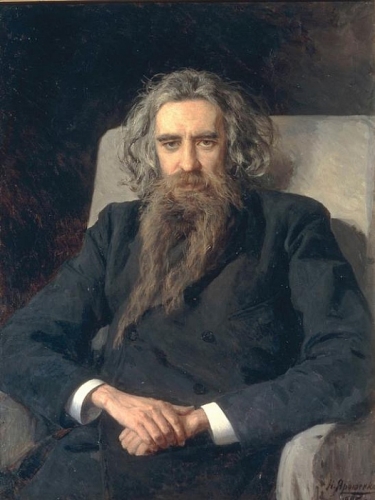
Après les slavophiles, le problème de la religiosité populaire, de ses relations avec l'orthodoxie officielle et l'État, a été placé au centre de l'attention pendant l'âge d'argent de la culture russe. Chez Vladimir Soloviev, le fondateur de la philosophie religieuse russe, la tentative de comprendre la spécificité de l'orthodoxie russe et sa relation avec l'État russe, le christianisme universel et l'histoire des sociétés européennes a abouti à la thèse la plus importante de l'unité et de la gestalt de la Sainte-Sophie comme clé de compréhension de l'identité et de la mission russes dans l'histoire du monde. En même temps, les figures de l'âge d'argent russe et les principaux représentants de la sophiologie - V. Rozanov, P. Florensky, S. Bulgakov, N. Berdiaev (1874 - 1948), D. Merejkovsky (1865 - 1941), A. Blok (1880 - 1921), A. Biély (1880 - 1934), Vyach Ivanov (1866 - 1949), etc. - ont également été la clé de la compréhension de l'identité et de la mission russes dans l'histoire du monde.
Dans cette huitième phase, l'orthodoxie elle-même est problématisée dans ses rapports avec le christianisme occidental (K. Leontiev (1831 -- 1891), V. Soloviev, D. M. Mukhtarov, D. M. Kuznetsov, etc. ), sont alors étudiées les particularités de la tradition orthodoxe russe (P. Florensky, S. Bulgakov, V. Rozanov, N. Berdiaev, etc.) et les différences - voire les oppositions - entre les fondements de la vision du monde du peuple russe et de l'État russe (plus amplement développées dans l'œuvre de Léon Tolstoï (1828-1910), ainsi que dans l'œuvre des Narodniki et, plus tard, des révolutionnaires sociaux). Le peuple lui-même, avec l'augmentation du nombre de dissidents et la diffusion de l'éducation populaire, s'est progressivement impliqué dans ce dialogue, aux côtés de l'aristocratie, créant une nouvelle situation - unique dans l'histoire de la Russie - où nous avions désormais l'implication des représentants du peuple dans la prise de décision consciente sur des questions de perspective mondiale. Les poètes russes Nikolai Kliouïev (1884 - 1937), Sergei Essenine (1895 - 1925), Velimir Khlebnikov (1885 - 1922) et, dans une certaine mesure, Vladimir Maïakovsky (1893 - 1930) sont les exemples les plus frappants de cette implication.
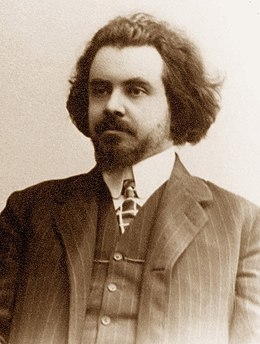
L'implication croissante du peuple russe dans la recherche de sa propre identité, y compris celle relative au facteur religieux, a pris des formes radicales au fur et à mesure que l'État tsariste s'affaiblissait, culminant avec la prise du pouvoir par les bolcheviks qui, conformément à leur idéologie, ont aboli le christianisme, cherchant à détruire à la fois l'orthodoxie et toute forme de religion. Cependant, comme le soulignent à juste titre Berdiaev [3], les Eurasistes [4] et les nationaux-bolcheviks [5], dans le bolchevisme russe, sous couvert d'athéisme formel, de matérialisme et de marxisme, on peut discerner les motifs eschatologiques propre au sectarisme russe, qui reflètent précisément les profondeurs les plus archaïques de l'identité russe. C'est là que se réveillent les couches les plus profondes - non seulement pré-chrétiennes, mais parfois paléo-européennes, matriarcales - de l'identité russe, enracinées dans le Logos de Cybèle et la civilisation de Cucuteni-Tripolje.
Au cours de la dixième phase, l'orthodoxie russe (à la fois les nouveaux et les vieux croyants, ainsi que le sectarisme pur et simple) a été victime d'une répression ciblée et, lorsqu'elle s'est calmée (à partir des premières années de la Grande Guerre patriotique), elle a existé à la périphérie de la société, n'ayant que peu ou pas d'influence sur la vision du monde communiste dominante, partagée par la majorité de la population soviétique. Bien qu'étonnamment, même à ce stade, le noyau de base de la tradition orthodoxe ait été préservé (du moins tel qu'il existait à la veille de la révolution bolchevique), l'introduction intensive de la vision matérialiste ("scientifique") du monde soviétique ne passe pas inaperçue, et même dans le milieu orthodoxe, le matérialisme scientifique et naturel, ainsi que les idées de progrès, de développement, etc. ne passent pas inaperçus.
Lorsque l'URSS s'est effondrée et que les dogmes de l'athéisme ont été dépouillés de leur statut normatif, l'orthodoxie a commencé à retrouver sa place en Russie. L'anticommunisme des réformateurs libéraux des années 1990 a d'abord été assez agressif à l'égard de l'Église orthodoxe, qu'ils considéraient comme "une institution réactionnaire qui entravait le progrès social, la modernisation et l'occidentalisation de la société russe", mais comme le principal adversaire était le communisme, il n'a pas conduit à une répression méthodique de l'orthodoxie. L'Église orthodoxe en a profité pour renforcer son influence dans la société, ce qui s'est particulièrement manifesté au début des années 2000.

Mais cette fois, l'orthodoxie ne reflète ni l'idéologie de l'élite dirigeante, ni la vision naturelle du monde des masses, fondamentalement influencées par l'éducation soviétique. D'où l'incertitude et le flottement de l'orthodoxie russe contemporaine quant à la phase à prendre comme modèle pour un renouveau de l'Église. Les neuf moments précédents de l'historicité religieuse avaient tous des structures et des orientations différentes. Par conséquent, la question reste ouverte à ce jour, et la dixième phase elle-même - la phase actuelle - est une solution prolongée dans le temps à cette question fondamentale.
Pratiquement toutes les positions sont représentées d'une manière ou d'une autre dans la société russe contemporaine, en particulier si l'on considère les processus religieux qui se déroulent dans la partie occidentale du monde russe - en Ukraine et au Belarus. Ainsi, dans l'orthodoxie moderne, on trouve des modernistes, des partisans du progrès, des matérialistes orientés vers les sciences naturelles, des évolutionnistes, des fondamentalistes de la période moscovite (qui proclament parfois la nécessité de canoniser Ivan le Terrible) et des idéologues héritiers des vieux croyants, et les revivalistes de l'Unificationnisme, les Sophiologues, les Eurasistes, les Bolcheviks nationaux (qui justifient Staline et sont favorables à la position du Patriarche Sergius), les anticommunistes extrêmes (à la fois monarchistes et libéraux), et ceux qui sont enclins au gnosticisme et au sectarisme, les uniates (particulièrement caractéristiques de la Russie occidentale), les œcuménistes (qui prônent l'unification de l'orthodoxie avec les confessions chrétiennes occidentales), les nationalistes étroits, les panslavistes et les traditionalistes (qui recherchent une plate-forme commune avec les croyants d'autres religions en opposition à la modernisation, à la sécularisation et au post-modernisme), les conformistes (prêts à accepter n'importe quelle idéologie), les puristes (qui insistent sur la "pureté de l'orthodoxie"), et les sectaires les plus divers. En même temps, aucune de ces versions ne domine clairement, et la structure générale de la dixième phase dans laquelle vit aujourd'hui la société russe ne peut être définie sans ambiguïté. Mais pour comprendre cette dixième phase, il est nécessaire de démanteler et de comprendre correctement toutes les précédentes, car elle en est le résultat, et elle est encore incertaine et n'a pas apporté les éléments de l'historicité chrétienne, qui sont pourtant manifestement présents dans la société russe contemporaine, à une structure unifiée et définie. C'est pourquoi la plupart des théologiens russes du 20ème siècle s'accordent à dire que le problème principal et toujours non résolu de la théologie orthodoxe russe moderne est le problème de l'ecclésiologie, c'est-à-dire la compréhension des chemins historiques de l'Église terrestre - dans le cas des Russes, cela va sans dire, en particulier le destin de l'Église russe.
Notes:
[1] Douguine A.G. Noomakhia. L'Europe de l'Est. Logos slaves : Balkan Nav et style sarmate.
[2] Douguine A.G.Noomakhia. Les horizons non slaves de l'Europe de l'Est : Le chant de la goule et la voix de l'abîme.
[3] Berdyaev N.A. Origines et signification du communisme russe. M. : Nauka, 1990.
[4] Les fondements de l'eurasisme.
[5] Ustryalov N. National-bolchevisme. M. : Eksmo, 2003.
15:54 Publié dans Actualité, Affaires européennes | Lien permanent | Commentaires (0) | Tags : religion, orthodoxie, histoire, orthodoxie russe, troisième rome, alexandre douguine, russie |  |
|  del.icio.us |
del.icio.us |  |
|  Digg |
Digg | ![]() Facebook
Facebook
jeudi, 28 septembre 2023
Trois méditations sur Charles de Foucauld
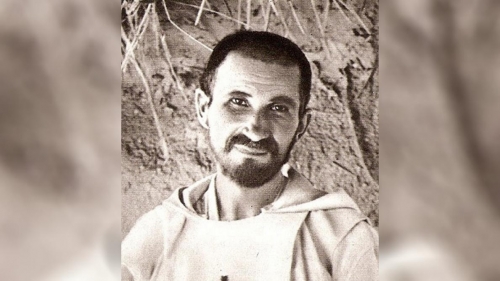
Trois méditations sur Charles de Foucauld
par André Murawski
Il est des hommes dont la vie édifie leurs contemporains et jusqu’aux générations suivantes. La vie et les gestes de ces hommes peuvent être légendaires. Ils peuvent être exemplaires. Ils sont toujours héroïques, suivant toutes les déclinaisons de l’héroïsme. On songe à Plutarque écrivant les Vies parallèles. On songe aux nombreux recueils intitulés DE VIRIS ILLUSTRIBUS, ces vies des hommes illustres où se sont essayés tant d’auteurs, de l’Antiquité au XIXe siècle, de Cornelius Nepos à Victor Espitallier, de Suétone à l’abbé Lhomond, de Jérôme de Stridon à Isidore de Séville. Il est des hommes dont la vie appelle la méditation.
Charles de Foucauld est un de ces hommes-là. Né le 15 septembre 1858, il mourut assassiné le 1er décembre 1916, à l’âge de 58 ans. 58 années pendant lesquelles on peut affirmer qu’il vécut plusieurs vies. Sur le plan professionnel d’abord où il fut tour à tour officier de cavalerie, explorateur, puis religieux catholique. Sur le plan intellectuel ensuite où il fit œuvre de géographe avant de devenir linguiste. Sur le plan spirituel enfin où, croyant fervent dans l’enfance, il s’éloigna de la religion et devint agnostique, avant de suivre son chemin de Damas, se convertir à la foi catholique, devenir prêtre, puis ermite et mourir en martyr en terre d’islam.
Cette vie extraordinaire suggère de nombreuses méditations. L’une d’elles pourrait porter sur la manifestation de la Grâce qui permit à cet homme égaré de revenir progressivement à Dieu. Une autre pourrait considérer les différences entre la doctrine sociale de l’Eglise et le volontarisme colonialiste en France sous la IIIe République. Une autre encore nous inviterait à réfléchir à la réalité du choc des civilisations, permanente et impitoyable.
---§---
PREMIERE MEDITATION : Touché par la Grâce, Charles de Foucauld donna une nouvelle dimension à sa vie.
La famille de Foucauld était issue de vieille noblesse française, et pouvait s’enorgueillir de plusieurs ancêtres ayant participé aux Croisades, ainsi que d’un arrière-grand-oncle de Charles qui avait été parmi les victimes des massacres de septembre pendant la Révolution. A l’âge de 5 ans 1/2, l’enfant perdit sa mère, puis son père et, bientôt, sa grand-mère paternelle, et ce sont ses grands-parents maternels, ainsi que sa tante et des cousines qui prirent soin de sa sœur et de lui.
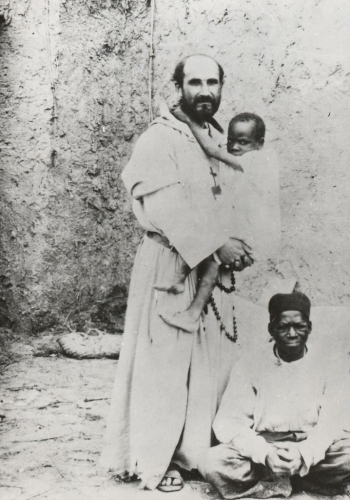
Cet orphelinat précoce pesa-t-il sur la santé physique et psychologique de Charles ? Bon élève, il commença à s’éloigner de la foi vers 15 ans, en 1873, et cette période dura près de 12 ans. Il s’en ouvrit à un ancien compagnon d’armes, Henry de Castries, dans une lettre du 14 août 1901 : « Je demeurais douze ans sans rien nier et sans rien croire, désespérant de la vérité et ne croyant même pas en Dieu. (…) Je vivais comme on peut vivre quand la dernière étincelle de foi est éteinte[1]. » Au cours de cette période, il mena une vie dissipée et, même, dissolue, bien qu’il réussît le concours de Saint-Cyr et devint officier de cavalerie. Cependant, Charles de Foucauld ayant multiplié les frasques, l’armée finit par le placer temporairement en position « hors cadre ».
En ce temps-là, l’Eglise catholique définissait la Grâce comme « un don surnaturel que Dieu nous accorde, à cause des mérites de Jésus Christ, pour nous aider à faire notre salut[2]. » On distinguait la Grâce actuelle, secours passager envoyé par Dieu à l’âme pour l’aider à éviter le mal et à faire le bien, et la Grâce habituelle qui « demeure en notre âme et la rend juste et sainte aux yeux de Dieu[3]. »
De multiples Grâces successives furent-elle envoyées à Charles de Foucauld ? Un premier changement intervint dans sa vie quand il apprit que son régiment avait été engagé pour réprimer une insurrection dans le Sud-Oranais. Réintégré à sa demande, il fit campagne pendant 6 mois au cours desquels il se révéla un bon officier, soucieux de ses hommes.
Ayant ressenti l’appel du désert, il démissionna de l’armée pour explorer le Maroc, pays alors fort mal connu des chrétiens qui ne pouvaient s’y rendre sous peine de mort. Se faisant passer pour juif, Charles de Foucauld commença le 10 juin 1883 un périple qui dura onze mois à l’issue desquels il reçut la médaille d’or de la société de géographie de Paris pour la qualité de ses travaux. Il explora ensuite le Sahara en Algérie entre septembre 1885 et février 1886. Oscar Mac Carthy, conservateur de la bibliothèque d’Alger, fit l’éloge de ce travail dans une lettre au secrétaire de la Société de Géographie de Paris : « Faites à M. de Foucauld les honneurs de la Société de Géographie de Paris ; il les mérite sous tous les rapports ; on a rarement, bien rarement, aussi longtemps et aussi bien travaillé[4] ».
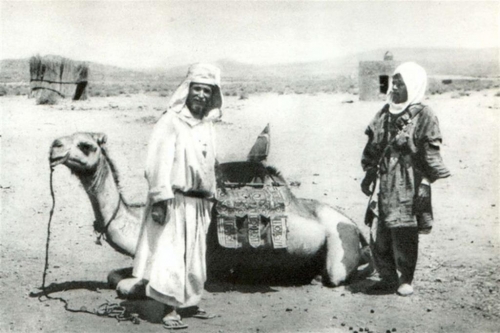
Rentré en France, il subit l’influence de sa cousine, Marie de Bondy, et rencontra l’abbé Huvelin, célèbre confesseur qui allait œuvrer à sa conversion. Charles de Foucauld entama alors un long chemin fait de mortifications et de recherche de perfection chrétienne. Lisant les Pères du désert, méditant les Evangiles et l’exemple du Christ, visitant les Ordres religieux et la Terre Sainte, il confessa à Henry de Castries, dans une lettre du 14 août 1901 : « Je me suis dit… Que peut-être cette religion n’était pas absurde ; en même temps, une grâce intérieure extrêmement forte me poussait ; je me mis à aller à l’église, sans croire, ne me trouvant bien que là et y passant de longues heures à répéter cette étrange prière : Mon dieu, si Vous existez, faîtes que je Vous connaisse[5]. »
Ordonné prêtre le 9 juin 1901, il retourna en Algérie afin d’y mener finalement une vie érémitique à Tamanrasset à partir de 1905. Il s’en était expliqué auprès de son confesseur et directeur de conscience, l’abbé Huvelin, dans une lettre du 7 mai 1900 : « Je vous ai écrit d’Akbès ce que j’entrevoyais pour moi : mener avec quelques compagnons la vie de la Sainte Vierge dans les mystères de la Visitation : c’est-à-dire sanctifier les peuples infidèles des pays de mission en portant au milieu d’eux, en silence, sans prêcher, Jésus dans le Saint-Sacrement et la pratique des vertus évangéliques[6] ». Mais les conceptions du Père de Foucauld, qui étaient aussi celles de l’Eglise catholiques, allaient se heurter à la conception républicaine de la colonisation.
DEUXIEME MEDITATION : Le progressisme républicain triomphant face à l’Eglise une, sainte, catholique et apostolique.
Les gouvernements de l'époque du mercantilisme jusqu’à la Révolution française avaient ajouté à l’apostolat les besoins du commerce pour justifier le colonialisme du point de vue moral. Mais dans la France de la IIIe République, de nouvelles doctrines de nature impérialiste étaient apparues. Certains adaptèrent les théories de Darwin à l’expansionnisme qui devint alors un fait « naturel » : « il en est des nations comme des espèces et des individus ; l’élimination des peuples arriérés par les peuples évolués et à leur profit est en dernière analyse bénéfique à l’ensemble de l’humanité[7] ».
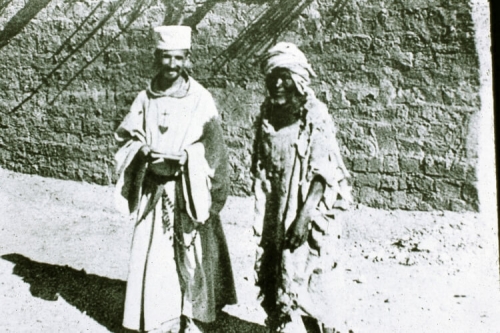
Une philosophie de la colonisation fut associée à des théories économiques. Par exemple, l’économiste Paul Leroy-Beaulieu écrivait que « les capitalistes courent (…) de moindres risques dans les colonies qui sont des prolongements de la métropole[8] ». Sur le plan politique, la plupart des républicains français cultivaient à l’égard des populations indigènes des sentiments tranchés. On sait l’engagement très fort de Jules Ferry en faveur de la colonisation, là où les conservateurs français, mais aussi la gauche de Clémenceau, y étaient hostiles. La considération dans laquelle Jules Ferry tenait les peuples colonisés était peu fraternelle, si l’on en juge par le célèbre discours qu’il prononça le 28 juillet 1885 devant la Chambre des députés, dont le compte rendu des débats indique notamment : « Monsieur Jules Ferry : Il faut dire ouvertement qu’en effet, les races supérieures ont un droit vis-à-vis des races inférieures. » Et plus loin : « Monsieur Jules Ferry : Je répète qu’il y a pour les races supérieures un droit, parce qu’il y a un devoir pour elles. Elles ont le devoir de civiliser les races inférieures… (Marques d’approbation sur les mêmes bancs à gauche – Nouvelles interruptions à l’extrême-gauche et à droite). »
Sur le plan religieux, l’évangélisation des indigènes qui s’est faite parallèlement à la colonisation a pu donner l’impression d’une collusion entre les missionnaires et les colonisateurs. C’est oublier qu’en France, la IIIe République a été fort peu favorable à l’Eglise catholique, et que les administrateurs coloniaux étaient le plus souvent francs-maçons[9]. Depuis l'avènement de la République en 1871, l’administration française était opposée à la conversion des musulmans, et Monseigneur Lavigerie, ardent partisan de la conquête des âmes, était regardé avec suspicion[10]. Dans une lettre du 22 novembre 1907 à l’abbé Hugelin, le Père de Foucauld déplorait la situation issue de cette politique : « Ce que voient les indigènes, de nous, chrétiens, professant une religion d’amour, ce qu’ils voient des Français incroyants criant sur les toits fraternité, c’est négligence, ou ambition, ou cupidité – et chez presque tous, hélas, indifférence, aversion et dureté[11] ».

Loin des considérations d’ordre économique, stratégique ou humanitaire, le Père de Foucauld défendait un point de vue catholique et fort différent : « Pour les musulmans, c’est affaire de longue haleine. Il faut faire d’eux intellectuellement et moralement nos égaux, ce qui est notre devoir[12]. » Il expliqua ses conceptions à sa cousine, Marie de Bondy, dans une lettre du 7 janvier 1902 : « Je veux habituer tous les habitants, chrétiens, musulmans, juifs et idolâtres, à me regarder comme leur frère universel. Ils commencent à appeler la maison « la fraternité » (la Khaoua, en arabe) et cela m’est doux[13] ».
Ouverture chrétienne du cœur contre intérêts bien pensés. Toute la différence entre la doctrine sociale de l’Eglise et le colonialisme de la IIIe République apparaît quand on confronte les deux discours. Mais la doctrine sociale de l’Eglise pouvait-elle rencontrer un écho au sein de la civilisation de l’islam ? Peut-être le Père de Foucauld en doutait-il quand il exposa ses conceptions dans sa « Règle » de juin 1896 : « 1° Reproduire aussi fidèlement que possible la vie de Notre Seigneur Jésus Christ à Nazareth. 2° Mener cette vie en pays infidèles, musulmans ou autres, par amour pour Notre-Seigneur, dans l’espoir de donner notre sang pour son nom[14] ».
TROISIEME MEDITATION : Le choc des civilisations ne distingue pas entre les individus.
Le concept de choc des civilisations s’est imposé peu à peu après la parution, en 1996, de l’ouvrage éponyme de Samuel Huntington, professeur à l’université d’Harvard et expert auprès du Conseil national américain de sécurité sous l’administration Carter. Dans ce livre, Samuel Huntington considère que le monde bipolaire issu de la guerre froide et de l’affrontement Est-Ouest est devenu multipolaire, et que les oppositions idéologiques se sont effacées pour céder la place à des oppositions culturelles, c’est-à-dire principalement religieuses et, en partie, ethniques.
Selon Huntington, au XIXe siècle, « les Européens ont déployé beaucoup d’énergie intellectuelle, diplomatique et politique à concevoir des critères servant à évaluer si les sociétés non occidentales étaient assez « civilisées » pour être acceptées comme membres du système international dominé par l’Europe[15] ». Huntington précise que « civilisation et culture se réfèrent à la manière de vivre en général[16] », et que « une civilisation représente l’entité culturelle la plus large[17] ». Mais qu’en est-il des chocs ? Evoquant la bataille de Lépante, Fernand Braudel les a décrits d’une façon imagée en notant « ces chocs sourds, violents, répétés, que se portent les bêtes puissantes que sont les civilisations[18] ». Et ce sont en effet des « chocs » que se sont portés dans l'histoire l’islam et la chrétienté, de la première conquête arabe à la bataille de Poitiers, des Croisades à la chute de Constantinople, de la Reconquista à l’occupation turque de la Hongrie, de la libération de Vienne par Jean III Sobieski à la colonisation de l’Algérie.
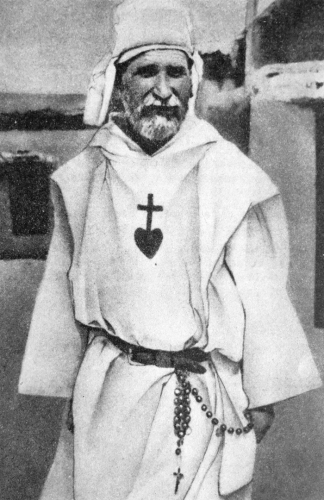
Le choc des civilisations se manifesta en Algérie dès le début de l’administration française. Une politique d’assimilation impliquait que les indigènes soient soumis au code civil français. Or, l’islam donnait aux musulmans « un statut personnel relavant des lois coraniques : pour devenir des citoyens français, il aurait fallu qu’ils consentissent à y renoncer[19] ». Bien peu se souviennent que la France de Napoléon III avait offert la nationalité française aux Algériens, dans un sénatus-consulte de 1865 dont l’article 1er était ainsi rédigé : « L’indigène musulman est Français ; néanmoins, il continuera d’être régi par la loi musulmane. Il peut être appelé à des fonctions et emplois en Algérie. Il peut sur sa demande être admis à jouir des droits de citoyen Français, en étant régi par les lois civiles et politiques de la France[20] ».
« Mais les musulmans tinrent à rester eux-mêmes. En cinq ans il y eut seulement 250 demandes d’accession à la citoyenneté française ! Et, entre 1865 et 1899, il n’y eut que 1131 naturalisations, les demandes d’accession à la citoyenneté française émanant essentiellement de militaires de carrière[21] ». A titre de comparaison, quand, « en 1870, le décret Crémieux accorda la citoyenneté française aux Israélites, ceux-ci se conformant au code civil français, il y eut 37000 bénéficiaires[22] ». Et c’est parce que les musulmans choisirent de rester eux-mêmes que la généreuse initiative du Père de Foucault échoua finalement devant le choc des civilisations, entraînant la mort du bâtisseur de la Khaoua, de la Fraternité.
 Le Père de Foucauld était lucide. Il connaissait la force de l’islam, comme il le narra à Henry de Castries le 8 juillet 1901 : « L’islam a produit en moi un profond bouleversement. La vue de cette foi, de ces hommes vivant dans la continuelle présence de Dieu, m’a fait entrevoir quelque chose de plus grand et de plus vrai que les occupations mondaines… Je me suis mis à étudier l’Islam, puis la Bible[23] ». Il pria sans doute souvent, ainsi qu’il l’écrivit dans son « Diaire », le 17 mai 1904 : « Je vous recommande de toute mon âme la conversion des Touaregs ; je vous offre ma vie pour eux, la conversion du Maroc, des peuples du Sahara, de tous les infidèles[24] ». Pourtant, il était sans illusions et le fit savoir à Marie de Bondy, le 7 septembre 1915 : « Il y aura demain dix ans que je dis la messe à Tamanrasset, et pas un seul converti ![25] »
Le Père de Foucauld était lucide. Il connaissait la force de l’islam, comme il le narra à Henry de Castries le 8 juillet 1901 : « L’islam a produit en moi un profond bouleversement. La vue de cette foi, de ces hommes vivant dans la continuelle présence de Dieu, m’a fait entrevoir quelque chose de plus grand et de plus vrai que les occupations mondaines… Je me suis mis à étudier l’Islam, puis la Bible[23] ». Il pria sans doute souvent, ainsi qu’il l’écrivit dans son « Diaire », le 17 mai 1904 : « Je vous recommande de toute mon âme la conversion des Touaregs ; je vous offre ma vie pour eux, la conversion du Maroc, des peuples du Sahara, de tous les infidèles[24] ». Pourtant, il était sans illusions et le fit savoir à Marie de Bondy, le 7 septembre 1915 : « Il y aura demain dix ans que je dis la messe à Tamanrasset, et pas un seul converti ![25] »
Peut-on rendre l’homme différent de ce que sa nature fait de lui ? Tout au long de son ermitage, le Père de Foucauld avait entretenu des relations de respect mutuel avec les populations locales, allant jusqu’à faire œuvre de linguiste notamment dans ses études sur la langue des Touaregs, et il jouissait de l’estime et de la considération des autochtones. Mais en juin 1916, une grande partie de la population du Sahara et du Sahel se souleva contre les Français. Le 1er décembre 1916, un Touareg connu du Père de Foucault trahit sa confiance et permit à des Senoussistes d’investir le fortin où il était réfugié. C’est pendant le pillage que le Père de Foucauld fut tué d’une balle dans la tête, sans que les circonstances de sa mort n’aient jamais été clairement établies. Le capitaine de la Roche laissa le récit de ce qu’il trouva à son arrivée à l’ermitage, le 21 décembre 1916 : « Les assassins avaient emporté tout ce qui avait pour eux quelque valeur. Par terre gisait dans un désordre indescriptible ce qu’ils avaient dédaigné – quelques livres, un chemin de croix fait de planchettes, le chapelet du Père et un petit ostensoir qui semblait encore contenir l’hostie[26]. »
---§---
Quand le choc des civilisations se réalise, les ennemis ne témoignent d’aucun respect ni pour les hommes, ni pour leur culture, ni pour les symboles de leur foi. Après la mort du Père de Foucault, ses amis Touaregs entrèrent en dissidence contre l’armée française. On peut être édifié par la vie de Charles de Foucault. On doit aussi tirer une leçon de sa mort.
Notes:
[1] Jean-François Six, Charles de Foucauld aujourd’hui, Editions du Seuil, 1966
[2] Auguste Boulenger, La doctrine catholique, Clovis, 2021
[3] Ibid
[4] Jean-François Six, Charles de Foucauld aujourd’hui, Editions du Seuil, 1966
[5] Ibid
[6] Jean-François Six, Charles de Foucauld aujourd’hui, Editions du Seuil, 1966
[7] Encyclopaedia universalis, Colonialisme et anticolonialisme, Editions Encyclopaedia Universalis, 1980
[8] Ibid
[9] https://fr.wikipedia.org/wiki/Missions_catholiques_aux_XIXe_et_XXe_si%C3%A8cles#Le_fait_colonial
[10] https://fr.wikipedia.org/wiki/Missions_catholiques_aux_XIXe_et_XXe_si%C3%A8cles#Le_cardinal_Lavigerie_et_les_P%C3%A8res_blancs
[11] Jean-François Six, Charles de Foucauld aujourd’hui, Editions du Seuil, 1966
[12] André Castelot, L’Almanach de l’histoire, Perrin, 1962.
[13] Jean-François Six, Charles de Foucauld aujourd’hui, Editions du Seuil, 1966
[14] Ibid
15] Samuel P. Huntington, Le choc des civilisations, Odile Jacob, 1997
[16] Ibid
[17] Ibid
[18] Renaissance catholique, Le choc des civilisations, Contretemps, 2009
[19] Claude Sicard, Le face-à-face islam-chrétienté, François-Xavier de Guibert, 2008
[20] Ibid
[21] Ibid
[22] Idid
[23] Jean-François Six, Charles de Foucauld aujourd’hui, Editions du Seuil, 1966
[24] Ibid
[25] Ibid
[26] Ibid.
11:26 Publié dans Traditions | Lien permanent | Commentaires (0) | Tags : religion, spiritualité, spiritualité du désert, catholicisme, charles de foucauld |  |
|  del.icio.us |
del.icio.us |  |
|  Digg |
Digg | ![]() Facebook
Facebook
jeudi, 13 juillet 2023
Le mal français: il ne peut y avoir de véritable communauté politique sans un ethos religieux partagé

Le mal français: il ne peut y avoir de véritable communauté politique sans un ethos religieux partagé
Par Juan Manuel de Prada
Source: https://noticiasholisticas.com.ar/el-mal-frances-no-puede-existir-autentica-comunidad-politica-sin-un-ethos-religioso-compartido-por-juan-manuel-de-prada/
Si demain on nous découvrait un cancer du pancréas en phase terminale et que le médecin nous suggérait de renoncer au chocolat ou aux petits pois pour le combattre, nous le prendrions pour un imbécile de taille cosmique. C'est ce que vient de faire le gérontophile Macron qui, face aux graves troubles qui frappent la France, a proposé de restreindre l'accès des jeunes aux jeux vidéo et aux réseaux sociaux. Mais l'Occident a écouté sans broncher cette colossale sottise, preuve indubitable qu'il n'a plus le courage de regarder la vérité en face.
Avec moins de légèreté, mais avec le même manque de recul, des analystes ont poussé comme des champignons pour tenter de trouver des causes matérielles à ces émeutes, qui se résument à "l'inadaptation" d'une jeunesse d'origine généralement africaine et de religion mahométane qui, alors que sa famille vit dans l'ancienne métropole depuis plusieurs générations, découvre que sa vie manque d'horizons et que l'anathème du racisme pèse sur elle. C'est une version complètement exagérée ; et si les hooligans eux-mêmes l'ont assimilée, c'est parce qu'ils savent que l'agitation victimaire trouve un écho, qui est le propre des sociétés malades.
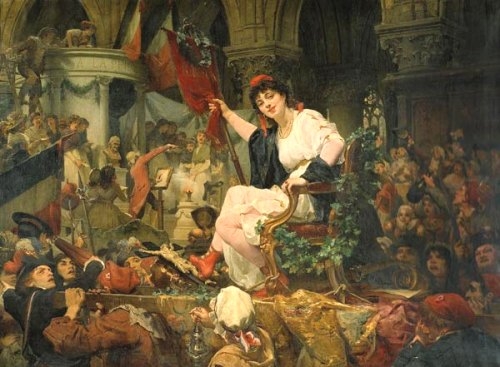
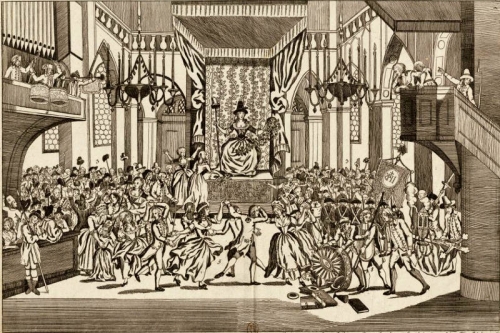
Culte de la "déesse raison" en France, à la fin du 18ème siècle.
Les grands bouleversements sociaux de ce type ont toujours des raisons spirituelles sous-jacentes. La France, dans son délire rationaliste, a cru pouvoir refonder la communauté politique sur le vide religieux ou, plus exactement, sur la création d'un substitut à la religion qui établirait le culte idolâtre de diverses abstractions. Et, une fois le culte idolâtre de ces abstractions assuré, il pensait que l'éthique religieuse du peuple pouvait être remplacée par un "no man's land" où chacun pouvait créer sa propre moralité, tant qu'elle n'interférait pas avec le culte idolâtre de l'abstraction politique existante. Mais lorsqu'un "no man's land" moral est établi, deux choses finissent par se produire : les personnes enclines à l'immoralité peuvent plus facilement imposer les aberrations les plus néfastes et les plus infâmes ; et les personnes morales développent une aversion croissante contre la nation qui les oblige à vivre au milieu de la saleté. Ainsi, paradoxalement, l'avidité des immoraux, qui fomentent le chaos pour assouvir les pulsions satanistes les plus basses, et le dégoût des moraux, qui en viennent à abhorrer la porcherie dans laquelle ils vivent, se rejoignent dans le désir de destruction.
Il ne peut y avoir de véritable communauté politique sans une éthique religieuse partagée ; ou il ne peut y en avoir que lorsqu'il y a des dirigeants qui, dans l'intérêt de la coexistence, sont soucieux de garder un noyau moral partagé. Or, curieusement, les pays où cette coexistence a été possible, bien que précaire, ont été rasés ou sont hostiles à l'Occident, qui cherche à fonder la coexistence sur le culte idolâtre des abstractions et sur un vide moral propice aux aberrations. Le mal français ne fera que s'étendre à l'Occident, qui a de plus en plus besoin d'un feu purificateur.
20:40 Publié dans Actualité, Affaires européennes | Lien permanent | Commentaires (0) | Tags : france, actualité, europe, affaires européennes, religion |  |
|  del.icio.us |
del.icio.us |  |
|  Digg |
Digg | ![]() Facebook
Facebook
mercredi, 15 février 2023
Guerre de religion en Ukraine

Guerre de religion en Ukraine
Alexandre Markovics
La persécution des chrétiens au cœur de l'Europe: ce que l'on ne connaît habituellement qu'au Moyen-Orient se produit désormais en Ukraine, sous les yeux fermés de l'opinion publique occidentale. Depuis le coup d'État de l'OTAN en 2014, le régime ukrainien tente désespérément de se débarrasser de toutes ses racines culturelles communes avec la Russie et, en fin de compte, aussi de sa foi commune avec la Russie, en agissant de manière de plus en plus extrême. Actuellement, il s'en prend principalement à un élément de son identité: l'église orthodoxe.
Avec l'intensification du conflit depuis le 24 février 2022, les forces ukrainiennes ont attaqué de plus en plus souvent les prêtres russophones, les humiliant publiquement devant l'assemblée de leurs ouailles et les forçant à quitter le lieu de culte sous la menace des armes. Les messes sont de plus en plus souvent prises d'assaut par des hommes armés et les fidèles sont contraints d'entonner l'hymne national ukrainien. Cela semble d'autant plus absurde que c'est précisément au départ de Kiev, la capitale de la Rus' de Kiev, qu'est partie l'évangélisation des Slaves de l'Est.
Par la suite, il était indiscutable que Kiev relevait de la sphère d'influence de l'Église orthodoxe russe et non de l'Église grecque de Constantinople. Cependant, dans le cadre de la guerre culturelle actuelle entre l'OTAN et la Russie, non seulement les églises russes brûlent dans le Donbass, comme l'église de la Toussaint de Sviatohirsk qui a été "accidentellement" bombardée par l'artillerie ukrainienne le 4 juin 2022, mais Constantinople a soudainement commencé à contester l'autorité de l'Église russe sur l'Ukraine. En Ukraine se reproduisait ainsi un modus operandi déjà observé 30 ans plus tôt en Yougoslavie avec l'exemple de l'Eglise monténégrine: une église nationale fut alors mise en place de toutes pièces afin de créer de force une identité nationale. Mais en Ukraine, la persécution a continué: peu avant la fin de l'année, des agents des services secrets ukrainiens ont pris d'assaut le célèbre monastère troglodyte de Kiev, l'un des principaux sanctuaires de l'Église orthodoxe ukrainienne. Le plus absurde est que l'Église orthodoxe ukrainienne avait déjà renoncé à Moscou en mai 2022, car elle avait condamné l'attaque contre l'Ukraine.
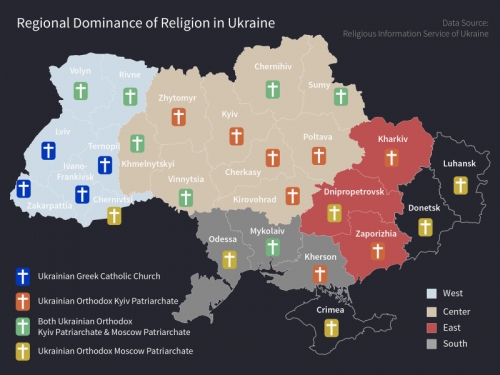
Mais cela n'a pas suffi au gouvernement de Kiev: une chanson patriotique russe chantée dans une église du monastère a suffi pour déclencher l'assaut. Officiellement, ils prétendaient rechercher des armes et des groupes de saboteurs cachés dans le monastère. Bien qu'aucune arme n'ait été trouvée, l'église s'est vue interdire de continuer à utiliser le monastère, de nombreux livres ont été confisqués et les droits d'utilisation ont été transférés à la fin de l'année à l'Église orthodoxe d'Ukraine, qui porte le même nom et qui a été fondée en 2019, et qui brille non seulement par sa ligne pro-LGBT, mais aussi par sa loyauté inconditionnelle envers Kiev.
Alors qu'avant la guerre, il était indifférent de savoir si l'on parlait russe ou ukrainien dans une église, cette question est désormais érigée en guerre de religion, qui fera sans aucun doute encore de nombreuses victimes. On peut espérer que l'héritage culturel de l'Ukraine n'en souffrira pas davantage.
20:49 Publié dans Actualité, Affaires européennes | Lien permanent | Commentaires (0) | Tags : ukraine, religion, orthodoxie, europe, affaires européennes, actualité, politique internationale |  |
|  del.icio.us |
del.icio.us |  |
|  Digg |
Digg | ![]() Facebook
Facebook
mercredi, 11 janvier 2023
La déstabilisation américaine du monde orthodoxe
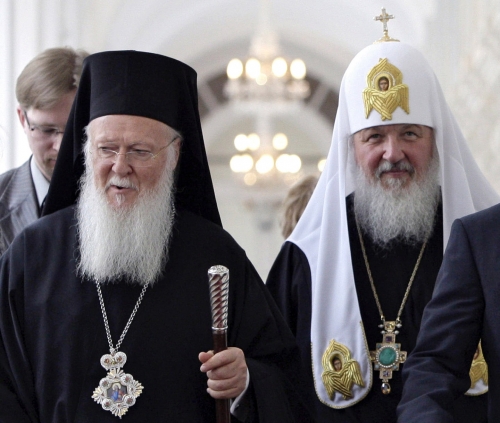
La déstabilisation américaine du monde orthodoxe
par Antonio Catalano
Source : Antonio Catalano & https://www.ariannaeditrice.it/articoli/la-destabilizzazione-americana-del-mondo-ortodosso
Ceux qui ont voulu le comprendre l'ont compris : le 24 février ne marque pas le début de la guerre russo-ukrainienne. Les autres, ceux qui sont de bonne foi, seront convaincus par les faits matériels lorsque ceux-ci leur crieront la réalité des choses haut et fort dans les tympans. Pendant ce temps, ceux qui sont à la solde de la propagande de l'OTAN continueront à répéter les paroles véhiculées par Washington, du moins tant que les scénarios actuels le permettront, ensuite nous verrons... et, comme dans la vieille série, soyons tous antifascistes quand le fascisme cesse d'exister.
Ceux qui comprennent comment les choses se sont passées savent donc que l'intervention russe découle de la stratégie américaine, vieille de plusieurs décennies, qui consiste à avancer vers l'Est, notamment avec des manœuvres visant à utiliser l'Ukraine dans une fonction anti-russe, en particulier depuis le coup d'État perpétré à Kiev en 2014. Un processus qui s'est traduit par l'installation d'avant-postes de l'OTAN dans les pays de l'ancien camp soviétique, par des exercices à grande échelle aux frontières occidentales de la Russie, par l'imposition de sanctions commerciales aux assujettis européens contre leurs propres intérêts (objectif principal : briser l'axe Berlin-Moscou) et, depuis un an, par le financement de l'armement et de l'entraînement du collaborationniste Zelensky.
Mais la guerre contre la Russie s'est jouée non seulement sur les plans commercial, économique, politique, diplomatique, militaire et culturel, mais aussi sur le plan religieux. Négliger ou même nier ce dernier plan est le signe d'une myopie qui empêche de voir la force que le facteur religieux libère dans le mouvement réel, surtout dans une région où la religiosité est un élément fort de l'identité et se combine avec un appel profond aux valeurs de la tradition.
C'est pourquoi les États-Unis, avec leur Département d'État, s'efforcent depuis quelque temps de favoriser la rupture entre les différentes Églises orthodoxes nationales (autocéphales, c'est-à-dire autonomes) et le patriarcat de Moscou. Ce processus a abouti à l'imposition en Ukraine de la célébration de Noël le 25 décembre au lieu du 7 janvier, comme le veut la tradition du monde orthodoxe orienté vers Moscou, qui suit le calendrier julien.
L'Occident collectif (comme on définit l'Occident en Russie depuis un an), avec son transhumanisme, son vision fluide du sexe, son néo-malthusianisme, son effacement de l'histoire et ses autres dystopies qui s'attaquent à la hiérarchie naturelle des valeurs humaines, est vécu en Russie comme une menace à laquelle opposer un système de valeurs fondé sur la tradition de la civilisation chrétienne dont elle se sent dépositaire.
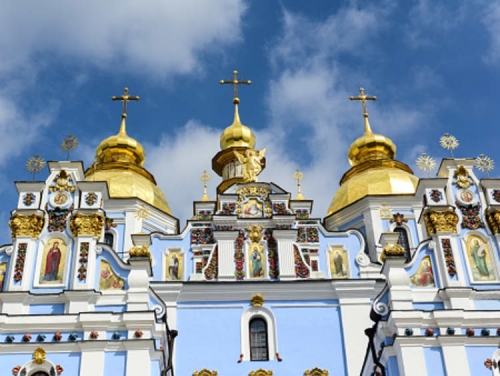
Pour mieux comprendre la distance culturelle et anthropologique qui sépare l'âme russe de celle de l'Occident, lisez, par exemple, les récents mots durs du secrétaire du Conseil de sécurité de la Russie, Nikolai Patrušev.
"L'Occident promeut des valeurs néolibérales contraires à la nature humaine. Les sociétés transnationales influencent les politiques de divers pays, comme les expériences sur les agents pathogènes et les virus dangereux menées dans les laboratoires biologiques militaires gérés par le Pentagone. Après avoir lavé le cerveau des gens avec une propagande de masse, l'Occident cherche maintenant à utiliser des armes cognitives en ciblant chaque personne par le biais des technologies de l'information et des moyens neuropsychologiques, tandis que l'agenda LGBT vise à réduire progressivement le nombre de personnes supplémentaires qui ne font pas partie du tristement célèbre milliard d'or [expression indiquant la population totale des pays développés]. Ceux qui ont fait la promotion des OGM sont les mêmes qui exhortent maintenant les femmes à ne pas avoir d'enfants pour lutter contre le changement climatique. Les chercheurs d'outre-mer mesurent et calculent les êtres humains comme le faisaient les scientifiques nazis, afin d'établir des critères permettant de distinguer les "races supérieures et inférieures".
Bref, s'exprimer en langage religieux, une Russie qui vit comme une sorte de Katechon (un concept biblique qui signifie "celui qui retient") contre l'Antéchrist représenté par l'Occident dissolu et satanique, presque comme si nous avions finalement atteint l'inversion de la prophétie de la "Troisième Rome" de Moscou par le moine Philothée. Qui, en 1520, a prédit que la capitale russe assumerait le rôle d'unique bastion de la foi, après la chute des deux capitales précédentes, Rome et Constantinople. La tradition veut que le moine Philothée, s'adressant au grand duc Vassili III, lui ait dit : "Souvenez-vous que les deux Romes sont tombées, que la troisième, Moscou, est debout et qu'il n'y en aura pas de quatrième".
Les agences de renseignement occidentales se sont déchaînées dans les Balkans pour diviser les Églises orthodoxes et favoriser la rupture avec l'Église orthodoxe russe. Malheureusement, elles ont réussi à tirer profit de la création de l'"Église orthodoxe d'Ukraine" et de sa reconnaissance par les autres Églises orthodoxes.
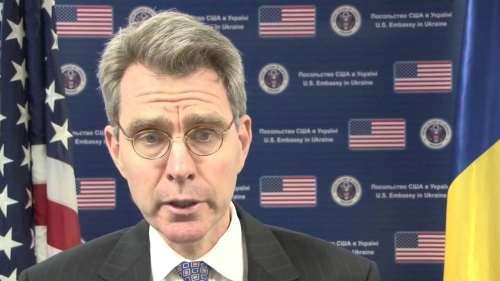
Le grand architecte de cela était Geoffrey Pyatt, qui, avec Victoria Nuland (celle qui en 2014 à Kiev distribuait des biscuits à Maidan et incitait à un coup d'État contre le gouvernement ukrainien légitime), a géré la situation au moment des événements violents de 2014 à Kiev. Pyatt, après avoir fait ses devoirs en Ukraine, a été transféré par le département américain en Grèce, où il s'est consacré à "conditionner" (certains disent à corrompre) le patriarche "primus inter pares" (dans le monde orthodoxe, il n'y a pas de pape) Bartholomée de Constantinople, jusqu'à ce que ce dernier cède. Et voilà qu'en septembre 2018, le département d'État américain déclare péremptoirement que les États-Unis soutiennent l'autocéphalie en Ukraine et considèrent le patriarche Bartholomée comme la voix de la tolérance dans le monde. Comment le patriarche Bartholomée, flatté par cette attribution, peut-il décevoir ses amis américains? Ainsi, en janvier 2019, il accorde le Tomos (document) d'autocéphalie à " l'Église orthodoxe d'Ukraine ". Bon travail, Geoffrey !
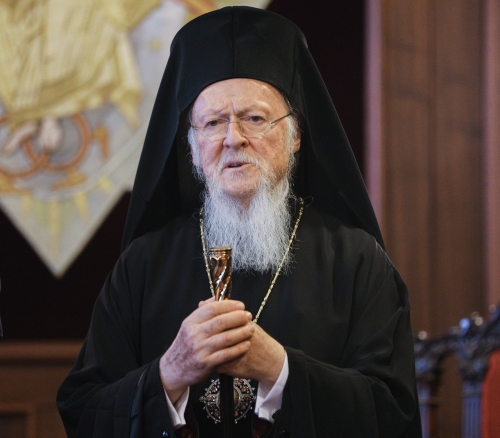
La relation de collaboration entre Bartholomée (photo) et ses nouveaux parrains et marraines a culminé lors du voyage de douze jours aux États-Unis à l'automne dernier (23 octobre - 3 novembre 2022). Douze jours remplis de réunions et de réceptions, au cours desquels le patriarche "œcuménique" (comme les mondialistes aiment les patriarches et les papes "œcuméniques" !) a parlé de la liberté religieuse, d'une plus grande justice environnementale, de l'accès universel au vaccin contre le cov id, de la situation au Moyen-Orient et en Afrique du Nord. Dans un excès de transport, Bartholomée va jusqu'à appeler Biden "un homme de foi et de vision, qui offrira à ce merveilleux pays et au monde les meilleurs conseils et la meilleure direction". Et puis, en tant que "bâtisseur de ponts": "Le chemin vers l'unité des chrétiens n'a été ni pacifique ni indolore. L'unité est une tâche qui reste difficile à réaliser. Mais les liens d'amitié entre les Églises divisées et les ponts par lesquels nous pouvons surmonter nos divisions sont indispensables, maintenant plus que jamais". À cet égard, Bartholomée cite en exemple l'appel à la protection de l'environnement lancé "pour la première fois dans l'histoire du christianisme" avec le pape François et l'archevêque de Canterbury.
Juste en passant, et j'en arrive à la conclusion, une référence à l'attitude différente des Américains envers le pape Benoît XVI, dont la "ferme volonté de parvenir à une réconciliation historique avec le patriarcat de Moscou" a été combattue de toutes les manières - comme l'écrit Germano Dottori dans Limes en mai 2017, qui aurait été dans ses intentions [du pape] le véritable couronnement religieux d'un projet géopolitique d'intégration euro-russe soutenu avec conviction par l'Allemagne et aussi par l'Italie de Silvio Berlusconi - mais pas par celle, plus pro-américaine, qui s'est reconnue en Giorgio Napolitano.
La façon dont cela s'est terminé, conclut l'article de Dottori, est connue de tous. Le gouvernement italien et la papauté auraient été simultanément attaqués par une campagne scandaleuse et coordonnée d'une violence rare et sans précédent, à laquelle seraient également associées des manœuvres plus ou moins opaques dans le domaine financier, avec pour effet final de précipiter en novembre 2011 la destitution de Berlusconi et en février 2013 l'abdication de Ratzinger".
Les faits brièvement exposés ci-dessus nous permettent de mieux cerner la position manifestement pro-ukrainienne du Pape Bergoglio, malgré les "aboiements de l'OTAN aux portes de Moscou", position prononcée en juin dernier, contrebalancée par le récent "dérapage" d'une interview dans la revue jésuite America dans laquelle il a qualifié les Tchétchènes et les Bouriates (deux peuples de Russie) de "soldats les plus cruels parmi les militaires russes". Cela a suscité l'ire de la porte-parole du ministère des Affaires étrangères, Maria Zakharova, qui a répondu: "Les propos du pape sur la cruauté des Tchétchènes et des Bouriates ne sont plus une preuve de russophobie, mais une perversion de la vérité". Incident clos après les excuses du Vatican. Mais Zakharova a clairement indiqué que cet "incident" a mis fin à toute possibilité pour le Vatican de s'asseoir à une future table de négociation en tant que partie médiatrice.
Ces manœuvres visant à diviser le monde de l'orthodoxie ne pourraient qu'entraîner l'Ukraine dans une spirale de véritable chasse aux sorcières et de répression, inspirée par le gouvernement banderiste de Zelensky. Avec l'identification de "traîtres" parmi le clergé, les agressions physiques (voir le coup de couteau encaissé par l'archiprêtre Kovtonyuk devant l'autel de son église), les raids sur les lieux de culte (voir le monastère de la grotte de Kiev), les arrestations d'ecclésiastiques et de religieuses, les menaces contre les simples croyants de l'observance de Moscou et la fermeture des églises de rite russe. Jusqu'à la proclamation, le 2 décembre 2022, du décret interdisant l'Église ukrainienne pro-russe.
19:58 Publié dans Actualité, Affaires européennes | Lien permanent | Commentaires (1) | Tags : orthodoxie, patriarchat de moscou, patriarchat de kiev, religion, europe, affaires européennes, politique internationale |  |
|  del.icio.us |
del.icio.us |  |
|  Digg |
Digg | ![]() Facebook
Facebook
samedi, 07 janvier 2023
Note sur le décès du Pape émérite Benoît XVI
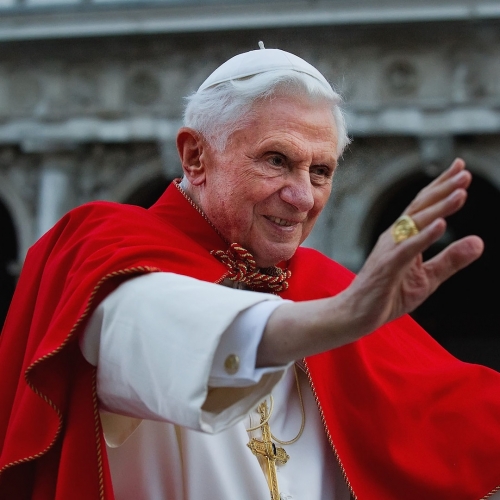
Note sur le décès du Pape émérite Benoît XVI
par Andrea Zhok
Source : Sfero & https://www.ariannaeditrice.it/articoli/nota-a-margine-alla-morte-del-papa-emerito-benedetto-xvi
Bien que l'auteur n'ait aucun titre pour parler d'une institution millénaire, dont il n'est même pas membre, l'histoire de la dyarchie entre Benoît et François, manifestement et ouvertement liée à des conflits de pouvoir au sein de l'Église catholique, signale un changement culturellement remarquable - et en tant que changement culturel, il nous concerne tous, catholiques et non-catholiques.
Dès le choix des noms, les orientations de Ratzinger et de Bergoglio étaient évidentes, et manifestement divergentes.
Se référer à Benoît de Norcia, fondateur de l'ordre monastique bénédictin, signifiait se référer à cette colonne vertébrale de la culture chrétienne et européenne qu'étaient les monastères en tant que lieux de prière et de travail ('ora et labora'). Ces monastères préservaient la culture des anciens et constituaient un modèle de communauté encore exemplaire aujourd'hui. L'étude, la contemplation, le travail, la spiritualité, la conservation et la communauté sont ici les références fondamentales.
Se référer à François d'Assise signifie plutôt se référer à un modèle d'Église anti-institutionnel, paupériste et révolutionnaire. Ce n'est pas un hasard si le choix de Bergoglio est isolé : c'est la première fois qu'un pape décide de prendre ce nom, car saint François était à l'origine un saint excentrique, à la limite de l'hérésie, mais finalement ramené dans le courant de la tradition et de l'Église. Se référer à François signifiait aller idéalement dans une direction innovante, se libérer des incrustations du passé, s'afficher "démocratique".
Bien sûr, les deux personnages historiques, Benoît de Norcia et François d'Assise, sont de grands exemples de vertu et de vision, et sont donc tous deux extraordinairement dignes d'un renouveau et d'une re-proposition de leur profond message. Nous ne sommes donc certainement pas ici pour organiser un "concours de beauté" entre les saints afin de déterminer qui est le "meilleur".
Cependant, cette dyarchie, qui a été une question éminemment politique, avec la démission de Benoît et l'avènement de François présente un aspect culturellement intéressant si nous la plaçons, comme nous devons le faire, dans le processus historique général actuel d'imposition de la raison libérale en Occident.
Le théologien Benoît représente d'une certaine manière le visage classique du rôle de l'Église: l'Église comme une ancre, un rocher auquel s'accrocher, comme une institution très ancienne enracinée dans l'histoire, capable d'intégrer diversement des instances et des cultures plurielles, mais sans jamais perdre de vue son propre sens de la continuité.
L'accusation de l'institution ecclésiastique d'être un "frein conservateur au progrès" est en quelque sorte un topos, une figure de l'esprit, et une thèse qui n'est pas sans raison: il ne fait aucun doute que l'Église n'a jamais été animée par un quelconque élan révolutionnaire (ayant une révolution spirituelle à ses origines) et, au contraire, qu'elle a toujours fait place avec effort, prudence et précaution à chaque innovation, de la doctrine sociale de l'Église, au modernisme, au Concile Vatican II.
Mais, comme toujours, le rôle d'une vision ou d'une institution change fondamentalement en fonction du contexte dans lequel elle opère.
Et quel est le contexte d'aujourd'hui, dans lequel l'Église du 21ème siècle opère?
Il s'agit, du moins en Occident, d'un contexte d'accélération technologique, technocratique, subjectiviste, scientiste frénétique, un processus de dissolution systématique des liens, de déracinement, d'effacement du passé, de dissolution de l'identité. Cette tendance est étroitement liée à ce processus séculaire qu'a été l'évolution du capitalisme anglo-américain, qui, au cours du dernier demi-siècle, a acquis une connotation d'impérialisme culturel dans tout l'Occident (et dans les parties occidentalisées du reste du monde, comme le Japon urbain).
En soi, le fait de s'inspirer autant de la tradition de François que de celle de Benoît XVI aurait pu, en principe, constituer un éloignement des tendances contemporaines. Après tout, François est le saint "anticapitaliste" par excellence, par son message et son exemple, et de plus, le Bergoglio sud-américain aurait pu bénéficier des leçons de l'Amérique latine, où la perception populaire de l'Empire américain comme une menace persistante est une caractéristique fondamentale.
Le pape, il ne faut jamais l'oublier, est certes un souverain absolu, mais il n'est ni omniscient ni omnipotent: comme tout souverain, il doit agir en s'appuyant sur une structure de conseillers et d'informateurs. Ce qui est devenu de plus en plus clair avec le temps, c'est que l'entourage du Vatican qui avait mis Ratzinger en grande difficulté était maintenant en mesure d'orienter de plus en plus les positions et les déclarations du nouveau pape, qui, en tant que disposition et formation "progressiste", était prêt à écouter les orientations "actuelles". Des dérapages dignes de la Repubblica, comme la stigmatisation de la "cruauté des Tchétchènes et des Bouriates" parmi les troupes russes, sont le signe que l'entourage papal ne s'appuie plus sur des sources autonomes, mais est manifestement à l'écoute de la publicité des agences de presse dominantes (les américaines Associated Press et United Press International et la britannique Reuters).
L'apparente perte d'autonomie culturelle de l'Église, le fait qu'elle soit de plus en plus entraînée par l'opinionnisme à la mode, qu'elle cherche à plaire aux mœurs changeantes, que son agenda culturel soit dicté par la soi-disant "communauté internationale" est un signe des temps, un signe inquiétant.
En ces temps de déménagement, de dissolution et d'effacement généralisé, le caractère conservateur de l'institution ecclésiastique aurait un grand rôle à jouer. Ce rôle ne dépend pas, soyons clairs, de la question de savoir si la tradition thomiste et les élaborations ultérieures du Vatican sont "toujours justes", ou si elles ont toujours une réponse adéquate aux défis actuels. L'intérêt réside dans le fait qu'une institution millénaire, profondément enracinée, capable de maintenir en vie un patchwork de traditions, serait en soi, de par son existence même, un bastion fondamental d'opposition à une tendance historique actuelle qui se caractérise par une accélération effrénée et un "progressisme" chaotique.
La perte de cette autonomie fondamentale, de cette extranéité aux exigences de la modernité, est un grave dommage culturel, non seulement pour les catholiques, mais pour l'ensemble du monde occidental.
20:42 Publié dans Actualité, Affaires européennes | Lien permanent | Commentaires (1) | Tags : benoit xvi, église catholique, catholicisme, vatican, papauté, religion |  |
|  del.icio.us |
del.icio.us |  |
|  Digg |
Digg | ![]() Facebook
Facebook
lundi, 26 septembre 2022
Une tentative de dialogue entre les civilisations

Une tentative de dialogue entre les civilisations
par le comité de rédaction de Katehon
Source: https://www.ideeazione.com/un-tentativo-di-dialogo-tra-civilta/
Le dialogue spirituel et social de l'humanité dans la période post-pandémique
Plus de cent délégations de 50 pays participent à ce dialogue spirituel et social. Parmi les chefs religieux participant à la conférence figurent des représentants de l'Église orthodoxe russe (le métropolite Antoine de Volokolamsk, président du département des relations ecclésiastiques extérieures du Patriarcat de Moscou ; le métropolite Alexandre d'Astana et du Kazakhstan ; le secrétaire du département des relations ecclésiastiques extérieures pour les relations interreligieuses, le secrétaire exécutif du Conseil interreligieux de Russie le prêtre Dimitri Safonov), des dirigeants de communautés et d'organisations musulmanes, comme l'imam suprême d'Al-Azhar le cheikh Muhammad Ahmad At-Tayeb. Était également présent pour les Églises orthodoxes, Theophilos III, très saint et bienheureux patriarche de la ville sainte de Jérusalem, de toute la Palestine, de l'Arabie, de la Syrie, des deux rives du Jourdain, de Sainte-Sion et de Cana de Galilée.
Malgré le nom du forum, on peut trouver dans la liste des participants des sectes comme les Mormons (nom complet et politiquement correct - "Church of Jesus Christ of Latter-day Saints", bien que, bien sûr, ils n'aient rien à voir avec l'Église ou le Christ), ainsi que des organisations non gouvernementales occidentales avec des connotations politiques évidentes. Parmi les intervenants figurent plusieurs représentants d'organisations juives. Il y a aussi des bouddhistes et des païens (hindous).
À cet égard, on peut se demander si les religions traditionnelles et mondiales constituent réellement le principal critère de sélection des participants. Il existe des définitions reconnues de la religion mondiale, et les sectes protestantes et autres ne sont souvent même pas considérées comme du christianisme, pour une bonne raison. De même, dans l'Islam, certains mouvements modernistes ne sont pas reconnus. Bien sûr, les cultes syncrétistes ne sont pas des religions mondiales et traditionnelles. Néanmoins, un représentant d'un tel mouvement (le bahaïsme) s'est exprimé lors de la convention du 14 septembre
La référence au format du Forum de Davos dans le programme de l'événement est également surprenante. L'esprit du Forum de Davos est clairement en totale opposition avec les religions traditionnelles. La signification de ce format n'est pas claire : un pool de représentants de diverses institutions, organisations et branches du gouvernement ? Ou l'unification en un seul thème ? Mais un tel protocole se retrouve dans divers événements internationaux sans autre référence à Davos, initiative séculière.
Il est intéressant de noter que, malgré la nature turque du pays hôte, il n'y a aucun représentant de la Turquie parmi les principaux participants. Ils étaient probablement gênés par la présence de traditionalistes musulmans. Le différend entre Al-Azhar au Caire et la version turque de l'islam est bien connu. Il a conduit à la décision des religieux turcs de créer leur propre université islamique internationale en 2014.
Il convient de noter que l'organisation d'une telle conférence contribue à l'image politique du Kazakhstan en tant qu'État à la culture tolérante. Le président kazakh Kassym-Jomart Tokayev (photo), lors de sa rencontre avec le pape François et des représentants de la société civile et du corps diplomatique à Nur-Sultan, a souligné que la république avait construit son modèle d'harmonie interethnique et interreligieuse au fil des années d'indépendance.

Le président du Kazakhstan a noté dans son discours : "Nous pouvons observer comment la société se fragmente et se polarise sous l'influence des technologies numériques. Pour beaucoup, le monde virtuel remplace déjà le monde réel. Par conséquent, dans la nouvelle réalité numérique, il est nécessaire de soulever la question de la culture des valeurs spirituelles et des directives morales d'une nouvelle manière. Le culte de la connaissance et de l'éducation sans un système éducatif approprié pour la jeune génération ne conduira pas l'humanité vers le progrès et le bien-être universel. Les religions ont toujours rempli cette fonction fondamentale d'éducation. Le Coran, la Bible, la Torah et d'autres écritures saintes sont imprégnés d'idées d'humanisme, de compassion et de miséricorde. Ils rejettent l'agression, le radicalisme, condamnent la violence et prêchent la tolérance et la modération. À l'époque moderne, la haute mission des chefs religieux est d'apporter ces vérités fondamentales au peuple".
L'accent mis sur l'humanisme pose également une question: de quel type d'humanisme s'agit-il ? S'agit-il d'un appel à l'héritage ancien, de la culture des vertus (qui peut également être comprise de différentes manières, par exemple l'individualisme est considéré comme une vertu en Occident) ou d'une sorte de religion séculière ? Dans les déclarations pathétiques des politiciens, ce sujet n'est pas révélé et, comme les "droits de l'homme", il fait l'objet de diverses interprétations et spéculations.
Les réunions des organes de travail ont débuté deux jours plus tôt, les 12 et 13 septembre. Le 12 septembre, il y a eu une réunion du groupe de travail du Congrès des leaders des religions mondiales et traditionnelles présidée par B. Sarsenbayev, commissaire pour la promotion des objectifs du Congrès des chefs religieux mondiaux et traditionnels, président du Centre pour le développement du dialogue interreligieux et intercivil N. Nazarbayev.
Le 13 septembre, les représentants des religions du monde et des organisations internationales ont assisté à la réunion du Secrétariat du Congrès, présidée par M.S. Ashimbayev, dans le Palais de la Paix et de l'Harmonie : Sheikh-ul-Islam Allahshukur Pashazade, chef du Bureau de l'Islam du Conseil pontifical pour le dialogue interreligieux, Monseigneur Khaled Akashe, le représentant de l'ordre bouddhiste sud-coréen "Chogye" en Asie centrale, le Moine Jo Joo, le représentant du ministre des Awqaf de la République arabe d'Égypte, Mohammed al-Shahhat al-Jindi, le représentant de l'Église anglicane, l'évêque Joe Bailey Wells, Muhammad Zia ul Haq, directeur général de l'Institut d'études islamiques de l'Université islamique internationale d'Islamabad, le Dr. ssa Zahra Rashidbeighi, représentante du président du Centre pour le dialogue entre les religions et les cultures de l'Organisation de la culture islamique et des relations islamiques de la République islamique d'Iran, Muhammad bin Abdulwahed Al-Arifi, vice-ministre des affaires islamiques, de la conscription et de l'orientation du Royaume d'Arabie saoudite, et d'autres.
À la suite de la réunion du Secrétariat, le projet de document final - Déclaration du septième Congrès des dirigeants des religions mondiales et traditionnelles - a été approuvé et le lieu et la date du huitième Congrès ainsi que la 21e réunion du Secrétariat du Congrès ont été fixés, qui se tiendront respectivement en 2025 et en septembre 2023.
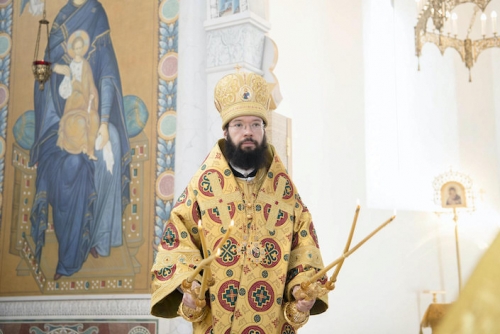
Le président du département des relations extérieures de l'Église du Patriarcat de Moscou, le métropolite Antoine de Volokolamsk (photo), s'exprimant lors de l'ouverture du 7e congrès des leaders des religions mondiales et traditionnelles, a déclaré que "le but du forum interreligieux est de surmonter les divisions interreligieuses et de pouvoir agir ensemble en surmontant les barrières qui divisent nos religions traditionnelles. Il ne s'agit pas de notre doctrine ou de notre dogme, mais de notre rôle dans la société. Les affrontements politiques, économiques et sociaux touchent de plus en plus la quasi-totalité du monde. Nous sommes appelés à construire un monde dans lequel il n'y aura pas de personnes de première et de seconde classe, pas d'hégémons et de satellites, mais un monde construit sur les plus hautes valeurs morales accordées par le Tout-Puissant".
Ces mots peuvent être interprétés comme une sorte de multipolarité religieuse. Puisque l'hégémonie mondiale repose toujours sur les États-Unis (bien qu'en déclin rapide), il est évident à qui ces mots étaient adressés.
Le métropolite a également appelé au renforcement des valeurs traditionnelles dans la situation actuelle. "La communauté mondiale traverse actuellement une période très difficile. La polarisation entre les pays individuels et les centres de pouvoir mondiaux est plus forte que jamais. La menace de famine massive, la menace d'un conflit mondial et même la menace d'une catastrophe nucléaire sont devenues très claires. Aujourd'hui, la responsabilité du sort des gens, de leur statut moral, nous incombe à nous, les chefs religieux. Historiquement, c'est la foi qui est la seule barrière séparant l'humanité du chaos et de l'anarchie. Dans les moments les plus difficiles de l'histoire de l'humanité, les gens se sont tournés vers Dieu pour obtenir de l'aide parce qu'ils n'avaient aucun autre espoir. Notre tâche en tant que responsables religieux est d'éduquer, de donner de l'espoir, de réconforter et de réconcilier les gens avec Dieu et entre eux".
"Le paradigme de la culture de masse qui nous a été proposé ces derniers temps par les défenseurs de la conscience laïque et même athée est clairement en train d'échouer. Dans ce système de valeurs, tout est construit sur le culte de l'homme comme être suprême. Cela implique le culte de ses désirs, de ses passions et de ses vices. Le culte de l'égocentrisme entraîne l'érosion des valeurs du mariage, de la famille, du respect des anciens. Elle implique l'exaltation des vices et des déviations humaines au détriment des valeurs d'une société humaine saine, inspirées par le Créateur et préservées depuis des milliers d'années", a-t-il déclaré.
Le patriarche Kirill s'en est fait l'écho dans un message adressé aux participants du congrès. Il a souligné que "l'humanité traverse aujourd'hui l'une des périodes les plus difficiles de l'histoire moderne". Les défis posés par la pandémie de coronavirus ont été aggravés par les problèmes alimentaires, énergétiques et économiques causés par les tentatives de construire un monde sans référence aux valeurs morales. Ces tentatives au cours des deux dernières décennies ont conduit non seulement à la perte de la notion de justice dans les relations internationales, mais aussi à de violents affrontements, à des conflits militaires et à la propagation du terrorisme et de l'extrémisme dans diverses parties du monde".
"Aujourd'hui, plus que jamais, les gens ont du mal à naviguer dans le flux d'informations, à résister à l'endoctrinement idéologique et à conserver un esprit sobre et une tranquillité d'esprit. Nous avons assisté à une déformation sans précédent des faits historiques et à une manipulation de la conscience de masse. N'est-ce pas la raison pour laquelle il y a de moins en moins d'amour, de miséricorde et de compassion dans la société ? De plus en plus souvent, nous entendons et lisons dans l'espace public des propos haineux à l'encontre de peuples, de cultures et de religions entières. La voie de la dictature, de la rivalité et de la confrontation choisie par certains dirigeants de ce monde conduit l'humanité à la ruine. Et dans ces circonstances, c'est la foi qui peut faire réfléchir les gens, les ramener sur la voie du dialogue et de la coopération, car dans les religions traditionnelles, les principes moraux fondamentaux de l'existence humaine restent inchangés".
Bien que le véritable dialogue des civilisations soit encore loin et que l'avertissement de Samuel Huntington concernant le conflit des civilisations se réalise, cette plate-forme, moyennant quelques ajustements, peut servir de canal de communication. Ceci est particulièrement important du point de vue de l'information des délégués étrangers sur les objectifs et les différents aspects de l'Opération militaire spéciale en Ukraine. Les médias mondiaux occidentaux déforment les faits et mènent délibérément une guerre de l'information contre la Russie, en essayant de perturber la coopération de Moscou avec ses partenaires et alliés.
13:59 Publié dans Actualité | Lien permanent | Commentaires (0) | Tags : religion, dialogue des civilisations |  |
|  del.icio.us |
del.icio.us |  |
|  Digg |
Digg | ![]() Facebook
Facebook
vendredi, 15 avril 2022
L'Europe est depuis longtemps un continent sans Dieu

L'Europe est depuis longtemps un continent sans Dieu
Andreas Mölzer
Source: https://andreasmoelzer.wordpress.com/2022/04/13/vom-ende-des-christentums/
Les églises d'Europe sont vides. Certes, les cathédrales, les cathédrales impériales romanes et défensives du Rhin, les phares gothiques de Reims et Chartres, Ulm et Saint-Étienne à Vienne, sont toujours des témoins présents de la puissance du christianisme. Mais ils ne sont que les témoins d'une spiritualité oubliée, tout comme les palais de Versailles, de l'Escorial, de Schönbrunn parlent de la splendeur passée des anciens monarques, tout comme ces mêmes cathédrales parlent de l'importance passée du christianisme.
Mais aujourd'hui, Jésus semble avoir quitté l'Europe, l'ancien Occident chrétien. Il est possible qu'il soit encore présent en Pologne et en Croatie, mais sinon, ce christianisme est encore un facteur qui détermine en quelque sorte le cours de l'année et de la vie des gens en tant que socle culturel. La doctrine chrétienne dans son ensemble, l'Église catholique et ses dogmes, n'est plus qu'un souvenir refoulé. La Trinité avec Dieu le Père, le Fils et le Saint-Esprit, la résurrection, le dernier jour, le paradis, les anges et enfin Satan et l'enfer, le purgatoire, sont autant de postulats religieux auxquels presque plus personne en Europe ne parvient à croire.
Il est vrai qu'avec l'orthodoxie, il existe encore à l'Est, dans le monde slave et chrétien, un développement particulier qui a pu déployer une nouvelle fois son efficacité dans les États postcommunistes. Le luthéranisme, le protestantisme, s'est depuis longtemps transformé en une organisation politiquement correcte de simple "aide à la vie". L'Eglise romaine titube d'un scandale d'abus à l'autre, et le pape émérite bavarois a depuis longtemps disparu, tandis que son successeur argentin ne fait que suivre l'esprit du temps par des signaux plats de prétendue modestie.
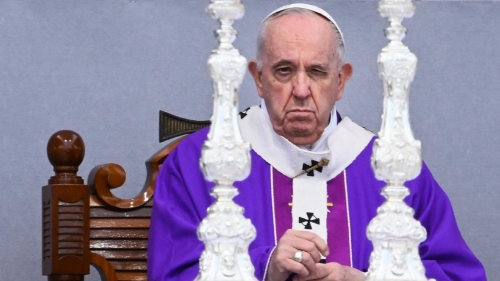
Ainsi, le christianisme, en particulier le catholicisme romain, a depuis longtemps cédé la place à une religion civile politiquement correcte, dans laquelle la cancel culture et la wokeness sont plus importantes que les dix commandements. Et les partis politiques qui se disaient chrétiens ont depuis longtemps supprimé le "grand C" de leur nom et sacrifié la doctrine sociale chrétienne sur l'autel d'un esprit propre à la gauche tardive.
Qu'était autrefois ce christianisme ? A l'origine, il s'agissait d'une secte juive qui suivait un messie légendaire et dont Paul, le citoyen romain, a fait une Eglise qui se voulait accessible à tous. Ce christianisme, dans la continuité du judaïsme, était bien sûr une religion monothéiste. Mais une religion qui, au cours des premiers siècles de son existence, avec des divisions, des querelles de foi, des schismes et de multiples conflits, est devenue une religion avec la Trinité, avec des anges, avec d'innombrables saints, avec des objets, des images, des reliques et autres objets vénérés de manière cultuelle. Une religion dont les racines juives ont été enrichies par les mécanismes de la religion d'État romaine et, après les migrations germaniques, par les conceptions spirituelles propres à ces peuples du Nord, une religion qui est ainsi devenue le facteur intellectuel et spirituel central pour les mondes roman, germanique et slave d'Europe.
Et c'est au nom de cette religion que des millions de personnes ont été massacrées, que des fleuves de sang ont été versés, que des guerres de religion ont été menées, que des sorcières ont été brûlées et que des hérétiques ont été persécutés. La christianisation de l'Europe ancienne a peut-être été un processus de conversion, mais elle s'est accompagnée de nombreux bains de sang. Les croisades du haut Moyen Âge ont peut-être été menées dans le but de libérer le tombeau du Christ, mais elles ont également été des guerres de conquête meurtrières. Les guerres de religion des XVIe et XVIIe siècles, jusqu'à la guerre de Trente Ans, ont décimé la population européenne dans des proportions similaires à celles de la peste.
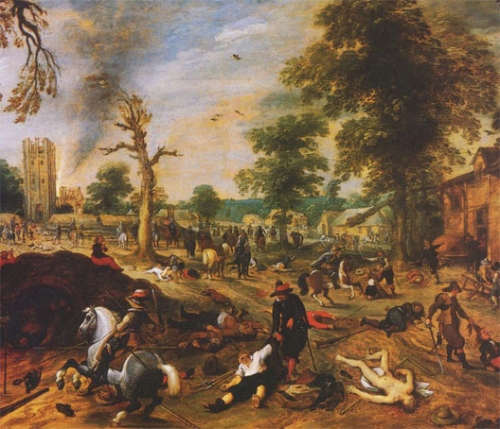
Néanmoins, le christianisme, en tant que religion monothéiste dont le commandement central est l'amour du prochain, a sans doute été le facteur déterminant d'un développement que l'on peut définir comme une évolution culturelle, une incitation pour l'humanité marquée par le christianisme à renoncer à la violence. Et aujourd'hui, alors que les droits de l'homme universels sont théoriquement au cœur de la nouvelle religion civile, il faut bien dire que même celle-ci, sans la prétention du christianisme selon laquelle tous les hommes naissent avec la même dignité, empereur, roi, noble, citoyen, paysan, mendiant, esclave, en constitue la base.
Or, il semble que ce christianisme soit sur le point de disparaître dans la vieille Europe. Certes, de nos jours, on célèbre aussi la fête de Pâques, avec toutes sortes d'actes de consécration folkloriques, depuis l'Osterhasen, les œufs de Pâques, jusqu'à la consécration de la viande en Carinthie, et pourtant, il faut se demander qui pense encore à la résurrection du Christ, à l'Ascension et au Jugement dernier qui attend l'individu en question. Le pape argentin à Rome peut laver les pieds de n'importe quel sans-abri, et sa bénédiction Urbi et orbi peut être vue par des millions de personnes à l'écran, mais tout cela ne signifie pas grand-chose.
Le christianisme est peut-être devenu depuis longtemps une religion du tiers-monde, qui joue un rôle en Afrique noire, en Amérique latine et peut-être même dans certaines parties de l'Asie du Sud-Est. Le fait que le pape soit un latino-américain en tient compte. Il serait toutefois logique de transférer le siège du chef de l'Église en Afrique noire ou en Amérique latine et de faire du Vatican un musée unique.
En tout cas, le fait est que les Européens ont oublié le christianisme, voire l'ont supprimé. Certes, ils font baptiser leurs enfants, font appel à un prêtre pour les mariages et les enterrements, célèbrent Noël et, comme nous l'avons déjà dit, Pâques. Mais la signification spirituelle de tout cela a depuis longtemps été reléguée au second plan. Au lieu de cela, les cercles contemporains ont adopté la nouvelle religion civile du politiquement correct, avec tous ses corollaires, comme l'antifascisme obligatoire, le féminisme radical, le genderisme et, plus récemment, la Wokeness, la Cancel Culture, Black Lives Matter et d'autres folies similaires.
Les personnes ordinaires qui ne sont pas touchées par ces modes ne sont plus chrétiennes au sens propre du terme, mais font partie d'une culture absolument matérialiste qui vit d'une part le fétichisme de la croissance économique et d'autre part l'hédonisme et l'épanouissement personnel très superficiel.
Au lieu de la béatitude éternelle dans l'au-delà, on cherche à maximiser son propre bien-être ici-bas, et le postulat de l'amour chrétien du prochain est remplacé par un amour universel et lointain diffus, politiquement correct, qui se contente généralement de belles paroles et de bons sentiments. La prétention de mener une vie chrétienne et d'être un bon chrétien est considérée comme ridicule et archaïque, et les gens n'associent presque plus rien à la notion de péché ou même au pardon des péchés par la confession et l'absolution. En tenant compte de toutes ces évolutions, il faut donc en conclure que le christianisme en Europe est probablement sur le point de disparaître.
18:13 Publié dans Actualité | Lien permanent | Commentaires (0) | Tags : actualité, religion, christianisme, déchristianisation, andreas mölzer |  |
|  del.icio.us |
del.icio.us |  |
|  Digg |
Digg | ![]() Facebook
Facebook



